Speakers
Discover our international faculty!
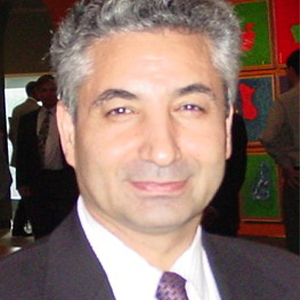
Khosrow Adeli
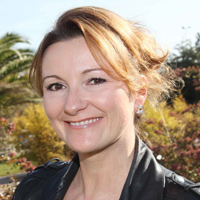
Catherine Alix-Panabières
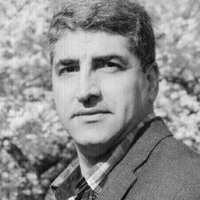
Behrooz Z. Alizadeh
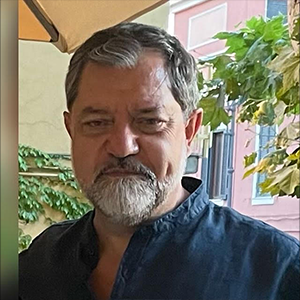
Sergio Bernardini
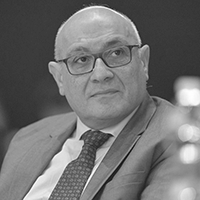
George Dagher
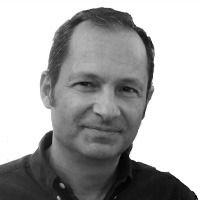
Georges Dedoussis
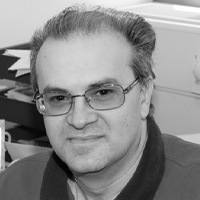
Panagiotis Deloukas
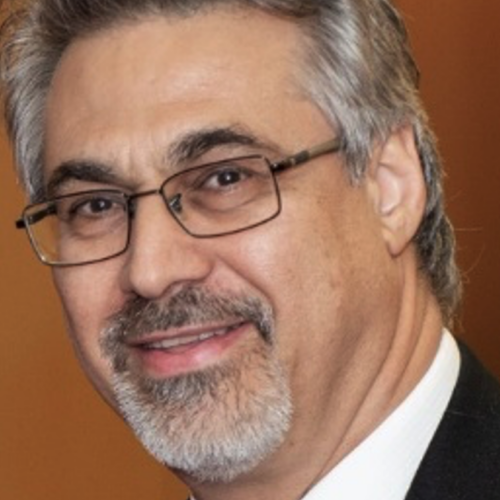
Constantinos Deltas

Ljubica Dimitrijevic
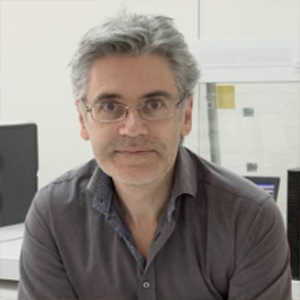
Aristides G. Eliopoulos
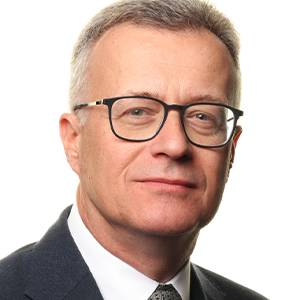
Perry Elliott

Philippe Froguel
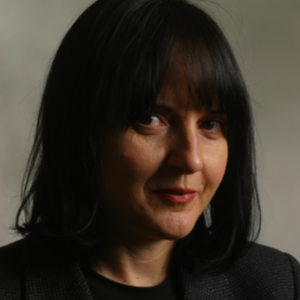
Andrea Griesmacher

Alexander Haliassos

Reem Hamad
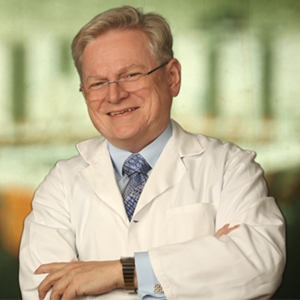
Alexander Haushofer
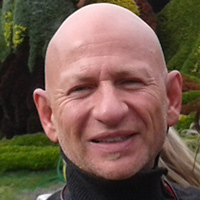
Candan Hizel
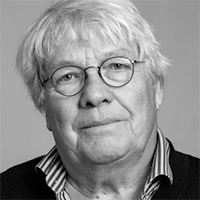
Magnus Ingelman-Sundberg
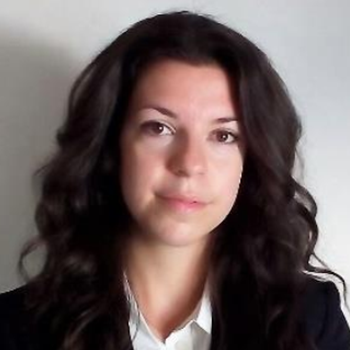
Maria Kafyra

Stravoula Kanoni
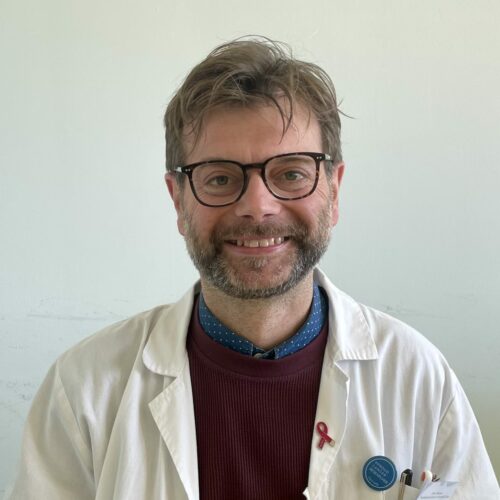
Enrico Iaccino
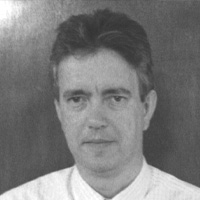
John Lamont
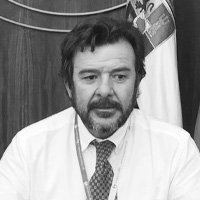
Adrián LLerena

Federica Marelli-Berg
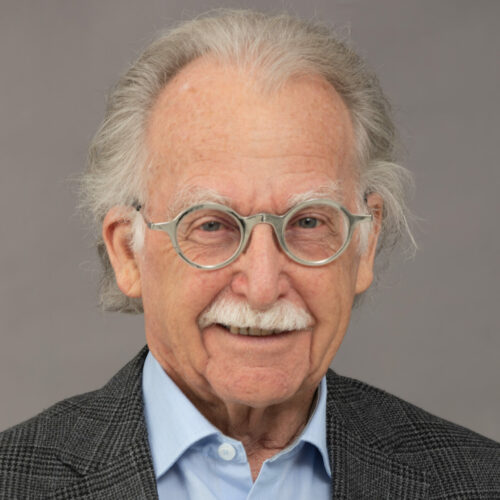
Urs Albert Meyer

Helena Murray

Charity Nofziger
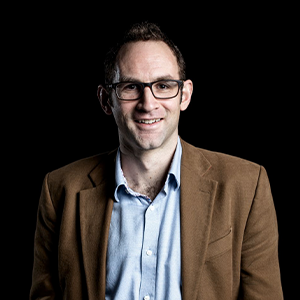
Richard Oram
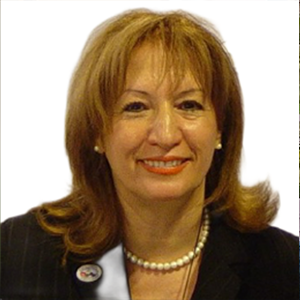
Tomris Ozben
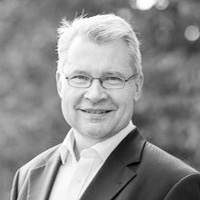
Klaus Pantel
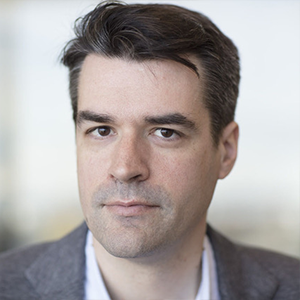
Guillaume Pare
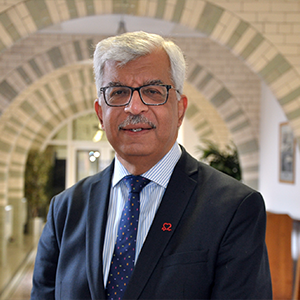
Munir Pirmohamed

Dante Preciado
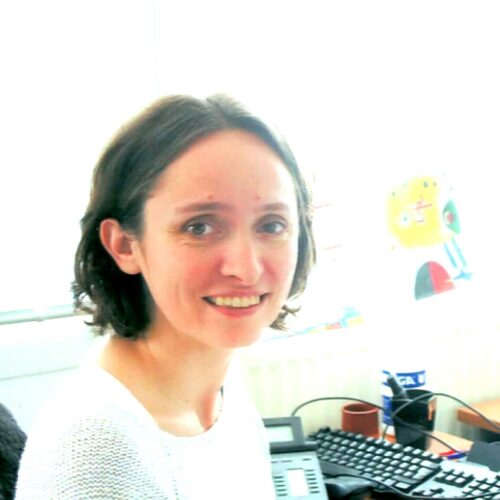
Estelle Pujos-Guillot
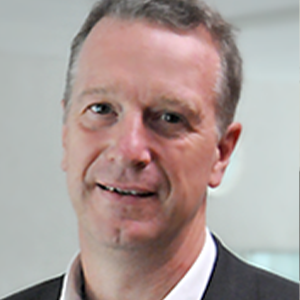
Eric Quemeneur
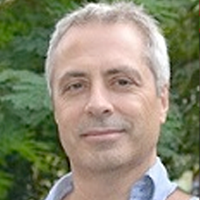
Marc Ruddock

Ron van Schaik
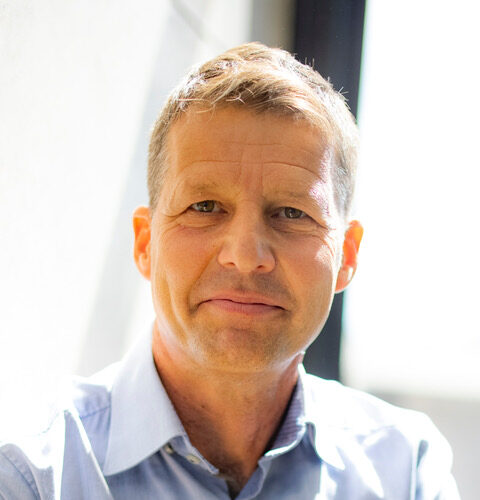
Wolfgang Schnitzel

Sofia Siest

Vesna Dimitrijevic-Sreckovic

Sanja Stankovic
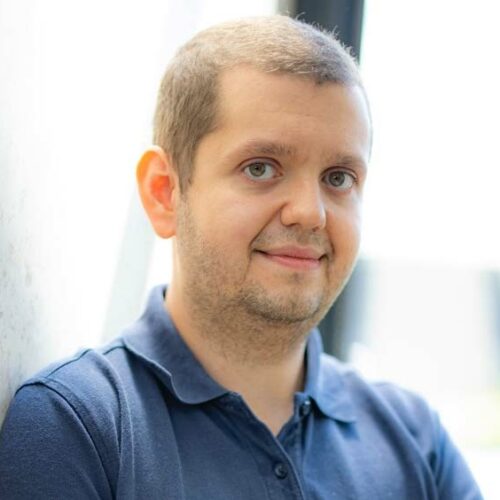
Simone VANONI
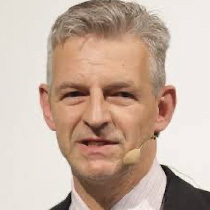
Thomas Wilckens
No Results Found
Khosrow Adeli
ACADEMIC PROFILE
A senior scientist and academic clinical biochemist with over 30 years of experience in clinical chemistry service, education, and research. Numerous leadership positions in the field of clinical biochemistry and laboratory medicine over the past three decades. Established track record in both basic and clinically oriented research in the fields of metabolic health & disease as well as clinical biochemistry and pediatric laboratory medicine. Published over 600 articles and abstracts with an h-index of 78 and >33,900 citations. Academic achievements have been recognized nationally and internationally through several prestigious research awards. Elected as the new president of IFCC (International Federation of Clinical Chemistry and Laboratory Medicine) (2020-2023), a worldwide organization with 96 member countries and >50,000 laboratory physicians and scientists around the world.
LEADERSHIP POSITIONS
Division Head
Clinical Biochemistry, Department of Paediatric Laboratory Medicine, the Hospital for Sick Children
1998 – present
Full Professor
Laboratory Medicine and Pathobiology, University of Toronto | 2001 –present Biochemistry, University of Toronto | 2004 – present
Physiology, University of Toronto | 2017 – present
Senior Scientist
Molecular Medicine, Research Institute, the Hospital for Sick Children 2002 – present
President
International Federation of Clinical Chemistry and Laboratory Medicine (IFCC) 2020 – present
Director
Point of Care Testing Program, the Hospital for Sick Children 2001 – present
Vice Chair
Quality, Dept. of Laboratory Medicine and Pathobiology, University of Toronto 2017 – present
Editor-in-Chief
Critical Reviews in Clinical Laboratory Sciences 2013 – present
ACADEMIC AWARDS
University of Ottawa Lifetime Achievement Award | 2021
Richard G. Hegele Award for Excellence in Research and Innovation | 2020
American Association of Clinical Chemistry Academy Outstanding Research Award | 2019
Canadian Lipoprotein Conference Senior Investigator Award |2016
Canadian Society of Clinical Chemists Innovation Award|2015
Ontario Society of Clinical Chemists Lifetime Achievement Award |2015
Canadian Scociety of Clinical Chemistry National Award for Outstanding Contributions to Clinical Chemistry | 2006
Email:khosrow.adeli@sickkids.ca
Email:k.adeli@utoronto.ca
Email:president@ifcc.org
Telephone:Office: (416) 813-8682
Telephone:Cell: (416) 399-6764
Telephone:Fax: (416) 813-6257
Catherine Alix-Panabières
Professor Catherine Alix-Panabières started her carrier, in 1999, in Montpellier where she did a postdoctoral research at the University Medical Centre. Since 2022, she is also Visiting Professor at the University of Hamburg in Germany. She has optimized new techniques of enrichment, detection and characterization of viable circulating tumor cells (CTCs) in patients with solid tumors. Profs Catherine Alix-Panabières & Pantel coined for the first time the term ‘Liquid Biopsy’ in 2010 (Trends Mol Med). She (co)organized many international meetings on liquid biopsy (4 ISMRC), several major Symposium on liquid biopsy at the AACR, ESMO. She has authored >135 scientific publications in this field during the last years (h index: 58; 16,022 citations) and 15 book chapters, she is the inventor of 3 patents in the liquid biopsy field and she is part of French national projects as well as in many European ones. She has many collaborations in Europe, America & Asia. More importantly, she demonstrated for the first time the clinical utility of CTCs in breast cancer in the French METABREAST group. Finally, she is the expert in the establishment of many permanent CTC lines, in colon and breast cancer.
Behrooz Z. Alizadeh
Dr. Behrooz Z. Alizadeh is an MD, and specialist in genetic epidemiology who obtained his MD from TUMS Tehran (1997), graduated in MSc (2001) and DSc (2002) degree from NIHES, Rotterdam, his Ph.D. from EMC-EU, Rotterdam (2005), and completed his postdoctoral fellowship in functional ImmunoGenomics at UMC Utrecht (2007). Since 2009, he is a staff member of the department of epidemiology acting as the head of the Unit of personalized medicine (2016) and is a member of the board of several research and/or educational programs and committees at UMCG Groningen, at METC UMCG (2012), and scientific international institutions. He holds visiting professor positions at several universities and is leading several (inter)national research projects (eg. MinldLines, GROUP, RadioGenomics, ARAS, CHARGE). During the 17 years of his professional scientific career, he published >200 publications of which the majority are in the top 10% of high-impact peer-reviewed journals. He is the principal investigator of educational institutes (eg. GUIDE, SHARE, GSMS, CPE) in the Netherlands. He has (co)supervised 25 PhDs fellows and postdocs.
His current research is focused on the devising, modeling, but also clinical, and societal implementation of personalized medicine in cancer and psychosis. To this end, his research group utilizes a systematic approach that integrates heterogeneous cohorts and real-world multi-dimensional data from various diseases. His approach contains advanced methodologies, data analytics, and genetic epidemiological techniques, including multi-dimensional reduction, growth curve trajectory modeling, mixed model analyses, and recently comparative machine learning techniques, to analyze and infer multi-level genetic, clinical (treatment), and societal data, aiming to predict patients’ long-term outcomes and response to therapies and interventions efficiently and accurately. In his view, personalized medicine is a health care process or even a societal program, rather than a research outcome!
Sergio Bernardini
Full Professor in Clinical Biochemistry and Clinical Molecular Biology-Head Physician of the Laboratory Medicine Unit- University of Tor Vergata Hospital, Viale Oxford 81, 00133 Rome-Italy
Education
1986: Doctor of Medicine, University of Rome “La Sapienza”
1990: Postgraduate specialization in Pediatrics, University of Tor Vergata, Rome
1990-1991: Internship at the Department of Endocrinology, Karolinska Sjukhuset, Stockholm
1995: PhD in Paediatrics, University of Tor Vergata, Rome
1998: Postgraduate Specialization in Clinical Biochemistry, University of Camerino
2021: 2° level Master in Health Economy and Management, University of Tor Vergata, Rome
Work Experience
1997-2010: Research consultant in Clinical Biochemistry and Clinical Molecular Biochemistry, Bambino Gesù Children Hospital, Rome.
1998-2001: Researcher in Clinical Biochemistry at the Department of Internal Medicine, University of Rome Tor Vergata.
2000-2018: Member of the Professors’ Committee for the PhD programme in Biochemical Sciences, University of Rome Tor Vergata.
2018-present: Member of the Professors’ Committee for the PhD programme in Industrial Engineering, University of Rome Tor Vergata.
2002-2012: President of undergraduate course in “Diagnostic laboratory techniques in the medical field”.
2002-2006: Associate Professor in Clinical Biochemistry and Clinical Molecular Biochemistry at the Department of Internal Medicine, University of Rome Tor Vergata.
2007-present: Full Professor in Clinical Biochemistry and Clinical Molecular Biochemistry at the Department of Experimental Medicine, University of Rome Tor Vergata.
2008-2010: Visiting scientist at the Medical Research Council-Toxicology Unit, Leicester, U.K
2012-2018: Director of the Postgraduate Specialization in Clinical Pathology and Clinical Biochemistry University of Rome Tor Vergata.
2012-2016: Director of the Postgraduate Master in “Ethical regulatory and methodological aspects of clinical trials” University of Rome Tor Vergata.
2013-2016: President of Degree course in Pharmacy, University of Rome Tor Vergata.
2016-2021: Director of the InterDipartimental Center for Culture and Science of Sport, University of Tor Vergata.
2016-present: Director of the Inter University Center for Social Sport, University of Tor Vergata/Roma Tre.
2016-2019: Dean of Degree in Sport and Exercise Sciences, University of Tor Vergata.
Current Teaching Responsibilities
Clinical Biochemistry and Clinical Molecular Biology in the following Courses at the University of Tor Vergata, Rome:
- Bachelor course in Diagnostic laboratory techniques in the medical field;
- Degree courses in Medicine, Medical Biotechnologies;
- School of Sport and Exercise Sciences;
- Postgraduate courses in Clinical Biochemistry, Gastroenterology, Neurology, Medical Genetics, Allergology and Immunology, Paediatrics, Surgery
- PhD Course in Industrial Engineering Committee Member
Hospital Work
1994 to 1997: assistant to the Clinical Biochemistry Laboratory of Bambino Gesù Children Hospital of Rome.
2000 to 2006: chief of the Allergology and Autoimmunity sections at the Tor Vergata University Hospital of Rome.
2007-2012: Head physician of the Clinical Molecular Biology Unit- Tor Vergata University Hospital
2012-2019: Head physician of the Laboratory Medicine Unit- Tor Vergata University Hospital
2019-present: Chief of the Laboratory Medicine Functional Integratd Area (Clinical Biochemistry, Microbiology, Virology and Pathology)- Tor Vergata University Hospital.
Member of :
2018-2019: President of the Italian Society of Clinical Biochemistry and Clinical Molecular Biology (SIBioC)
2012-2017: Secretary of the International Federation Clinical Chemistry and Laboratory Medicine (IFCC)
2018-present: Chair of the Emerging Technologies Division of IFCC
2016-present: member of the Editorial Board of Clinica Chimica Acta
2019-present: member of the Editorial Board of Critical Review in Clinical Laboratory Sciences
Member of the NY Rotary Club N. 6
International Conference Scientific Meeting Membership:
EuroMedLab 2019 Barcelona (Spain)
AACC Conference 2020 Chicago (US)
WorldLab/EuroMedLab 2023 Rome, President of the Congress
Publication list
- Perrone MA, Aimo A, Bernardini S, Clerico A. Inflammageing and Cardiovascular System: Focus on Cardiokines and Cardiac-Specific Biomarkers. Int J Mol Sci. 2023 Jan 3;24(1):844. doi: 10.3390/ijms24010844. PMID: 36614282.
- Guerrieri M, Francavilla B, Fiorelli D, Nuccetelli M, Passali FM, Coppeta L, Somma G, Bernardini S, Magrini A, Di Girolamo S. Nasal and Salivary Mucosal Humoral Immune Response Elicited by mRNA BNT162b2 COVID-19 Vaccine Compared to SARS-CoV-2 Natural Infection. Vaccines (Basel). 2021 Dec 18;9(12):1499. doi: 10.3390/vaccines9121499. PMID: 34960244. 2022
- Iannetta M, Landi D, Cola G, Campogiani L, Malagnino V, Teti E, Coppola L, Di Lorenzo A, Fraboni D, Buccisano F, Grelli S, Mozzani M, Zingaropoli MA, Ciardi MR, Nisini R, Bernardini S, Andreoni M, Marfia GA, Sarmati L. B- and T-Cell Responses After SARS-CoV-2 Vaccination in Patients With Multiple Sclerosis Receiving Disease Modifying Therapies: Immunological Patterns and Clinical Implications. Front Immunol. 2022 Jan 17;12:796482. doi: 10.3389/fimmu.2021.796482. PMID: 35111162; PMCID: PMC8801814.
- Pieri M, Infantino M, Manfredi M, Nuccetelli M, Grossi V, Lari B, Tomassetti F, Sarubbi S, Russo E, Amedei A, Benucci M, Casprini P, Stacchini L, Castilletti C, Bernardini S. Performance evaluation of four surrogate Virus Neutralization Tests (sVNTs) in comparison to the in vivo gold standard test. Front Biosci (Landmark Ed). 2022 Feb 21;27(2):74. doi: 10.31083/j.fbl2702074. PMID: 35227017.
- Prezioso C, Brazzini G, Passerini S, Di Fabio C, Cosio T, Bernardini S, Campione E, Moens U, Pietropaolo V, Ciotti M. Prevalence of MCPyV, HPyV6, HPyV7 and TSPyV in Actinic Keratosis Biopsy Specimens. Viruses. 2022 Feb 18;14(2):427. doi: 10.3390/v14020427. PMID: 35216020; PMCID: PMC8876850.
- Caporali S, De Stefano A, Calabrese C, Giovannelli A, Pieri M, Savini I, Tesauro M, Bernardini S, Minieri M, Terrinoni A. Anti-Inflammatory and Active Biological Properties of the Plant-Derived Bioactive Compounds Luteolin and Luteolin 7-Glucoside. Nutrients. 2022 Mar 9;14(6):1155. doi: 10.3390/nu14061155. PMID: 35334812.
- Pieri M, Nicolai E, Nuccetelli M, Sarubbi S, Tomassetti F, Pelagalli M, Minieri M, Terrinoni A, Bernardini S. Validation of a quantitative lateral flow immunoassay (LFIA)-based point-of-care (POC) rapid test for SARS-CoV-2 neutralizing antibodies. Arch Virol. 2022 Apr 2. doi: 10.1007/s00705-022-05422-w. Epub ahead of print. PMID: 35377034.
- Tommaso Schirinzi, Henri Zenuni, Piergiorgio Grillo, Roberta Bovenzi, Gisella Guerrera, Francesca Gargano, Massimo Pieri, Bernardini S, Nicola Biagio Mercuri, Luca Battistini, Giulia Maria Sancesario (2022). Tau and Amyloid-β Peptides in Serum of Patients With Parkinson’s Disease: Correlations With CSF Levels and Clinical Parameters. FRONTIERS IN NEUROLOGY, ISSN: 1664- 2295, doi: 0.3389/fneur.2022.748599
- Fernandes M, Chiaravalloti A, Manfredi N, Placidi F, Nuccetelli M, Izzi F, Camedda R, Bernardini S, Schillaci O, Mercuri NB, Liguori C. Nocturnal Hypoxia and Sleep Fragmentation May Drive Neurodegenerative Processes: The Compared Effects of Obstructive Sleep Apnea Syndrome and Periodic Limb Movement Disorder on Alzheimer’s Disease Biomarkers. J Alzheimers Dis. 2022 May 9. doi: 10.3233/JAD-215734. Epub ahead of print. PMID: 35570484.
- Perrone MA, Aimo A, Bernardini S, Clerico A. Natriuretic Peptides and Troponins to PredictCardiovascular Events in Patients Undergoing Major Non-Cardiac Surgery. Int J Environ Res Public Health. 2022 Apr 24;19(9):5182. doi: 10.3390/ijerph19095182. PMID: 35564577; PMCID: PMC9103429.
- Mossa M, Neri B, Montesano L, Salvatori S, Marafini I, Scucchi L, Lolli E, Massoud R, Petruzziello C, Bernardini S, Calabrese E, Monteleone G, Biancone L. SARS-CoV-2 Igg seroprevalence in IBD patients treated with biologics: first vs. second pandemic wave in a prospective study. Eur Rev Med Pharmacol Sci. 2022 May;26(10):3787-3796. doi: 10.26355/eurrev_202205_28875. PMID: 35647861.
- Schipani MC, Tomassetti F, Polidori I, Ricci P, Frassanito ML, Seraceni S, Morello M, Nicolai E, Aquaro S, Bernardini S, Pieri M, Calugi G. Evaluation of Natural and Vaccine-Induced Anti-SARSCoV- 2 Immunity: A Comparative Study between Different Groups of Volunteers. Diseases. 2022 Apr 27;10(2):25. doi: 10.3390/diseases10020025. PMID: 35645246.
- Fernandes M, Mari L, Chiaravalloti A, Paoli B, Nuccetelli M, Izzi F, Giambrone MP, Camedda R, Bernardini S, Schillaci O, Mercuri NB, Placidi F, Liguori C. 18F-FDG PET, cognitive functioning, and CSF biomarkers in patients with obstructive sleep apnoea before and after continuous positive airway pressure treatment. J Neurol. 2022 May 24. doi: 10.1007/s00415-022-11182-z. Epub aheadof print. PMID: 35608659.
- Basilicata M, Zarone F, Leone R, Guerriero C, Di Lauro M, Franco R, Bernardini S, Noce A, Bollero P, Sorrentino R. Impact of SARS-CoV-2 on dentistry: a review of literature. Eur Rev Med Pharmacol Sci. 2022 May;26(9):3386-3398. doi: 10.26355/eurrev_202205_28760. PMID: 35587093.
- Angeletti S, Legramante JM, Lia MS, D’Amico L, Fogolari M, Cella E, De Cesaris M, De Angelis F, Pieri M, Terrinoni A, Bernardini S, Minieri M. Assessment of the Stability of Midregional Proadrenomedullin in Different Biological Matrices. Lab Med. 2022 Jun 17:lmac066. doi: 10.1093/labmed/lmac066. Epub ahead of print. PMID: 35713618.
- Polidori I, Marullo L, Ialongo C, Tomassetti F, Colombo R, di Gaudio F, Calugi G, Marrone G, Noce A, Bernardini S, Broccolo F, Pieri M. Characterization of Gut Microbiota Composition in Type 2 Diabetes Patients: A Population-Based Study. Int J Environ Res Public Health. 2022 Nov 29;19(23):15913. doi: 10.3390/ijerph192315913. PMID: 36497987; PMCID: PMC9740005.
- Dabla PK, Upreti K, Singh D, Singh A, Sharma J, Dabas A, Gruson D, Gouget B, Bernardini S, Homsak E, Stankovic S. Target association rule mining to explore novel paediatric illness patterns in emergency settings. Scand J Clin Lab Invest. 2022 Nov-Dec;82(7-8):595-600. doi: 10.1080/00365513.2022.2148121. Epub 2022 Nov 18. PMID: 36399102.
- Ciotti M, Nuccetelli M, Pieri M, Petrangeli CM, Giovannelli A, Cosio T, Rosa L, Valenti P, Leonardis F, Legramante JM, Bernardini S, Campione E, Minieri M. Evaluation of Hepcidin Level in COVID-19 Patients Admitted to the Intensive Care Unit. Diagnostics (Basel). 2022 Nov 2;12(11):2665. doi: 10.3390/diagnostics12112665. PMID: 36359509; PMCID: PMC9689230.
- Zedan HT, Yassine HM, Al-Sadeq DW, Liu N, Qotba H, Nicolai E, Pieri M, Bernardini S, Abu-Raddad LJ, Nasrallah GK. Evaluation of commercially available fully automated and ELISA-based assays for detecting anti-SARS-CoV-2 neutralizing antibodies. Sci Rep. 2022 Nov 8;12(1):19020. doi: 10.1038/s41598-022-21317-x. PMID: 36347859; PMCID: PMC9643483.
- Carobene A, Cabitza F, Bernardini S, Gopalan R, Lennerz JK, Weir C, Cadamuro J. Where is laboratory medicine headed in the next decade? Partnership model for efficient integration and adoption of artificial intelligence into medical laboratories. Clin Chem Lab Med. 2022 Nov 3. doi: 10.1515/cclm-2022-1030. Epub ahead of print. PMID: 36327445.
- Greaves RF, Kricka L, Gruson D, Martin H, Ferrari M, Bernardini S. Emerging technology: a definition for laboratory medicine. Clin Chem Lab Med. 2022 Oct 31;61(1):33-36. doi: 10.1515/cclm-2022-0929. PMID: 36302376.
- Minieri M, Di Lecce VN, Lia MS, Maurici M, Leonardis F, Longo S, Colangeli L, Paganelli C, Levantesi S, Terrinoni A, Malagnino V, Brunetti DJ, Giovannelli A, Pieri M, Ciotti M, D’Agostini C, Gabriele M, Bernardini S, Legramante JM. Predictive Value of MR-proADM in the Risk Stratification and in the Adequate Care Setting of COVID-19 Patients Assessed at the Triage of the Emergency Department. Diagnostics (Basel). 2022 Aug 15;12(8):1971. doi: 10.3390/diagnostics12081971. PMID: 36010321; PMCID: PMC9406922.
- Seraceni S, Zocca E, Cervone TE, Tomassetti F, Polidori I, Valisi M, Broccolo F, Calugi G, Bernardini S, Pieri M. T-Cell Assay after COVID-19 Vaccination Could Be a Useful Tool? A Pilot Study on Interferon-Gamma Release Assay in Healthcare Workers. Diseases. 2022 Jul 31;10(3):49. doi: 10.3390/diseases10030049. PMID: 35997354; PMCID: PMC9396988.
- Costanza G, Paba P, Ciotti M, Ombres D, Di Carlo S, Marcuccilli F, Bertoli A, Di Traglia L, Mozzani M, Piredda L, Petrone V, Fanelli M, Paganelli C, Cortese B, Balestrieri E, Bernardini S, Andreoni M, Matteucci C, Minutolo A, Grelli S. Infection Rate of Respiratory Viruses in the Pandemic SARS-CoV-2 Period Considering Symptomatic Patients: Two Years of Ongoing Observations. Biomolecules. 2022 Jul 15;12(7):987. doi: 10.3390/biom12070987. PMID: 35883543; PMCID: PMC9313449.
- Di Giacomo C, Pucillo L, Sevilla C, Fucci G, Massoud R, Bernardini S, Fraziano M, Gentile G. 25-Hydroxyvitamin D Plasma Levels in Natural Populations of Pigmented and Partially Pigmented Land Iguanas from Galápagos (Conolophus). Biomed Res Int. 2022 Jul 14;2022:7741397. doi: 10.1155/2022/7741397. PMID: 35872852; PMCID: PMC9303120
- Clerico A, Zaninotto M, Aimo A, Musetti V, Perrone M, Padoan A, Dittadi R, Sandri MT, Bernardini S, Sciacovelli L, Trenti T, Malloggi L, Moretti M, Burgio MA, Manno ML, Migliardi M, Fortunato A, Plebani M. Evaluation of the cardiovascular risk in patients undergoing major non-cardiac surgery: role of cardiac-specific biomarkers. Clin Chem Lab Med. 2022 Jul 20;60(10):1525-1542. doi: 10.1515/cclm-2022-0481. PMID:
- Gruson D, Dabla P, Stankovic S, Homsak E, Gouget B, Bernardini S, Macq B. Artificial intelligence and thyroid disease management: considerations for thyroid function tests. Biochem Med (Zagreb). 2022 Jun 15; 32(2):020601. doi: 10.11613/BM.2022.020601. PMID: 35799984; PMCID: PMC9195598.
- Cristiano A, Pieri M, Sarubbi S, Pelagalli M, Calugi G, Tomassetti F, Bernardini S, Nuccetelli M. Evaluation of serological anti-SARS-CoV-2 chemiluminescent immunoassays correlated to live virus neutralization test, for the detection of anti-RBD antibodies as a relevant alternative in COVID-19 large-scale neutralizing activity monitoring. Clin Immunol. 2022 Jan;234:108918. doi: 10.1016/j.clim.2021.108918. Epub 2021 Dec 29. PMID: 34971839; PMCID: PMC8714258.
- Minieri M, Di Lecce VN, Lia MS, Maurici M, Bernardini S, Legramante JM. Role of MR-proADM in the risk stratification of COVID-19 patients assessed at the triage of the Emergency Department. Crit Care. 2021 Nov 26;25(1):407. doi: 10.1186/s13054-021-03834-9. PMID: 34836547.
- Rapanotti MC, Cugini E, Nuccetelli M, Terrinoni A, Di Raimondo C, Lombardo P, Costanza G, Cosio T, Rossi P, Orlandi A, Campione E, Bernardini S, Blot-Chabaud M, Bianchi L. MCAM/MUC18/CD146 as a Multifaceted Warning Marker of Melanoma Progression in Liquid Biopsy. Int J Mol Sci. 2021 Nov 17;22(22):12416. doi: 10.3390/ijms222212416. PMID: 34830300.
- Kolesova O, Tomassetti F, Cerini P, Finucci D, Turchetti G, Capogreco F, Bernardini S, Calugi G, Pieri M. Evaluation of ECLIA antigen detection tests as screening methods for COVID-19 in comparison with molecular analysis. Ir J Med Sci. 2021 Nov 30. doi: 10.1007/s11845-021-02863-1. Epub ahead of print. PMID: 34850319.
- Pieri M, Nicolai E, Ciotti M, Nuccetelli M, Sarubbi S, Pelagalli M, Bernardini S. Antibody response to COVID-19 vaccine: A point of view that can help to optimize dose distribution. Int Immunopharmacol. 2021 Nov 27:108406. doi: 10.1016/j.intimp.2021.108406. Epub ahead of print. PMID: 34862126; PMCID: PMC8626226.
- Clerico A, Zaninotto M, Aimo A, Dittadi R, Cosseddu D, Perrone M, Padoan A, Masotti S, Belloni L, Migliardi M, Fortunato A, Trenti T, Malloggi L, Cappelletti P, Galli GA, Bernardini S, Sciacovelli L, Plebani M. Use of high-sensitivity cardiac troponins in the emergency department for the early rule-in and rule-out of acute myocardial infarction without persistent ST-segment elevation (NSTEMI) in Italy. Clin Chem Lab Med. 2021 Dec 20. doi: 10.1515/cclm-2021-1085. Epub ahead of print. PMID: 34927403.
- Nicolai E, Nuccetelli M, Sarubbi S, Basile V, Perrone MA, Terrinoni A, Minieri M, Pieri M, Bernardini S. Performance evaluation of the new Chemiluminescence Immunoassay CL-1200i Thyroid Panel. J Immunoassay Immunochem. 2021 Dec 18:1-13. doi: 10.1080/15321819.2021.2017301. Epub ahead of print. PMID: 34927566.
- Alessandro De Stefano, Sabrina Caporali, Nicola Di Daniele, Valentina Rovella, Carmine Cardillo, Francesca Schinzari, Marilena Minieri, Massimo Pieri, Eleonora Candi, Bernardini S, Manfredi Tesauro, Alessandro Terrinoni (2021). Anti-Inflammatory and Proliferative Properties of Luteolin-7- O-Glucoside. INTERNATIONAL JOURNAL OF MOLECULAR SCIENCES, ISSN: 1661-6596, doi:10.3390/ijms22031321
- Massimo Pieri, Stefano Pignalosa, Marco Alfonso Perrone, Carmelo Russo, Gianluca Noce, Andrea Perrone, Alessandro Terrinoni, Renato Massoud, Bernardini S (2021). Evaluation of the Diesse Cube 30 touch erythrocyte sedimentation method in comparison with Alifax test 1 and the manual Westergren gold standard method. SCANDINAVIAN JOURNAL OF CLINICAL & LABORATORY INVESTIGATION, ISSN: 0036-5513, doi: 10.1080/00365513.2021.188199
- Aldo Clerico, Martina Zaninotto, Claudio Passino, Nadia Aspromonte, Massimo Francesco Piepoli, Marco Migliardi, Marco Perrone, Antonio Fortunato, Andrea Padoan, Angelo Testa, Franco Dellarole, Tommaso Trenti, Bernardini S, Laura Sciacovelli, Furio Colivicchi, Domenico Gabrielli, Mario Plebani (2021). Evidence on clinical relevance of cardiovascular risk evaluation in the general population using cardio-specific biomarkers. CLINICAL CHEMISTRY AND LABORATORY MEDICINE, vol. 59, p. 79-90, ISSN: 1434-6621, doi: 10.1515/cclm-2020-0310
- Campione E, Lanna C, Cosio T, Rosa L, Conte MP, Iacovelli F, Romeo A, Falconi M, Del Vecchio C, Franchin E, Lia MS, Minieri M, Chiaramonte C, Ciotti M, Nuccetelli M, Terrinoni A, Iannuzzi I, Coppeta L, Magrini A, Bernardini S, Sabatini S, Rosapepe F, Bartoletti PL, Moricca N, Di Lorenzo A, Andreoni M, Sarmati L, Miani A, Piscitelli P, Squillaci E, Valenti P, Bianchi L. Lactoferrin as Antiviral Treatment in COVID-19 Management: Preliminary Evidence. Int J Environ Res Public Health. 2021 Oct 19;18(20):10985. doi: 10.3390/ijerph182010985.
- Nicolai E, Pieri M, Gratton E, Motolese G, Bernardini S. Bacterial Infection Diagnosis and Antibiotic Prescription in 3 h as an Answer to Antibiotic Resistance: The Case of Urinary Tract Infections. Antibiotics (Basel). 2021 Sep 26;10(10):1168. doi: 10.3390/antibiotics10101168.
- Cristiano A, Nuccetelli M, Pieri M, Sarubbi S, Pelagalli M, Calugi G, Tomassetti F, Bernardini S. Serological anti-SARS-CoV-2 neutralizing antibodies association to live virus neutralizing test titers in COVID-19 paucisymptomatic/symptomatic patients and vaccinated subjects. Int Immunopharmacol. 2021 Oct 4;101(Pt B):108215. doi: 10.1016/j.intimp.2021.108215.
- Infantino M, Pieri M, Nuccetelli M, Grossi V, Lari B, Tomassetti F, Calugi G, Pancani S, Benucci M, Casprini P, Manfredi M, Bernardini S. The WHO International Standard for COVID-19 serological tests: towards harmonization of anti-spike assays. Int Immunopharmacol. 2021 Aug 30;100:108095. doi: 10.1016/j.intimp.2021.108095.
- Ciotti M, Ciccozzi M, Pieri M, Bernardini S. The COVID-19 pandemic: viral variants and vaccine efficacy. Crit Rev Clin Lab Sci. 2021 Oct 1:1-10. doi: 10.1080/10408363.2021.1979462.
- Caporali S, Calabrese C, Minieri M, Pieri M, Tarantino U, Marini M, D’Ottavio S, Angeletti S, Mauriello A, Cortese C, Bernardini S, Terrinoni A. The miR-133a, TPM4 and TAp63γ Role in Myocyte Differentiation Microfilament Remodelling and Colon Cancer Progression. Int J Mol Sci. 2021 Sep 10;22(18):9818. doi: 10.3390/ijms22189818.
- Aiello F, Ciotti M, Gallo Afflitto G, Rapanotti MC, Caggiano B, Treglia M, Grelli S, Bernardini S, Mauriello S, Nucci C, Marsella LT, Mancino R. Post-Mortem RT-PCR Assay for SARS-CoV-2 RNA in COVID-19 Patients’ Corneal Epithelium, Conjunctival and Nasopharyngeal Swabs. J Clin Med. 2021 Sep 20;10(18):4256. doi: 10.3390/jcm10184256.
- Dabla PK, Gruson D, Gouget B, Bernardini S, Homsak E. Lessons Learned from the COVID-19 Pandemic: Emphasizing the Emerging Role and Perspectives from Artificial Intelligence, Mobile Health, and Digital Laboratory Medicine. 2021 Jun 29;32(2):224-243.
- Bernardini S, Pieri M, Ciotti M. How Could POCT be a Useful Tool for Migrant and Refugee Health? 2021 Jun 29;32(2):200-208.
- Bernardini S. Foreword: Introducing the eJIFCC Special Issue on “POCT – Making the Point”. 2021 Jun 29;32(2):116-117.
- Sancesario GM, Di Lazzaro G, Grillo P, Biticchi B, Giannella E, Alwardat M, Pieri M, Bernardini S, Mercuri NB, Pisani A, Schirinzi T. Biofluids profile of α-Klotho in patients with Parkinson’s disease. Parkinsonism Relat Disord. 2021 Sep;90:62-64. doi: 10.1016/j.parkreldis.2021.08.004.
- Martino FG, Vitillo M, Pieri M, Marrone G, Gangeri F, Ansali F, Dessì M, Bernardini S, Di Daniele N, Noce A. Biomarkers of Glyco-Metabolic Control in Hemodialysis Patients: Glycated Hemoglobin vs. Glycated Albumin. Medicina (Kaunas). 2021 Jul 14;57(7):712. doi: 10.3390/medicina57070712.
- Della-Morte D, Pacifici F, Ricordi C, Massoud R, Rovella V, Proietti S, Iozzo M, Lauro D, Bernardini S, Bonassi S, Di Daniele N. Low level of plasminogen increases risk for mortality in COVID-19 patients. Cell Death Dis. 2021 Aug 5;12(8):773. doi: 10.1038/s41419-021-04070-3.
- Tomassetti F, Nuccetelli M, Sarubbi S, Gisone F, Ciotti M, Spinazzola F, Ricotta C, Cagnoli M, Borgatti M, Iannetta M, Andreoni M, Calugi G, Pieri M, Bernardini S. Evaluation of S-RBD and high specificity ACE-2-binding antibodies on SARS-CoV-2 patients after six months from infection. Int Immunopharmacol. 2021 Oct;99:108013. doi: 10.1016/j.intimp.2021.108013.
- Mougang YK, Di Zazzo L, Minieri M, Capuano R, Catini A, Legramante JM, Paolesse R, Bernardini S, Di Natale C. Sensor array and gas chromatographic detection of the blood serum volatolomic signature of COVID-19. 2021 Aug 20;24(8):102851. doi: 10.1016/j.isci.2021.102851.
- Campione E, Lanna C, Cosio T, Rosa L, Conte MP, Iacovelli F, Romeo A, Falconi M, Del Vecchio C, Franchin E, Lia MS, Minieri M, Chiaramonte C, Ciotti M, Nuccetelli M, Terrinoni A, Iannuzzi I, Coppeda L, Magrini A, Bernardini S, Sabatini S, Rosapepe F, Bartoletti PL, Moricca N, Di Lorenzo A, Andreoni M, Sarmati L, Miani A, Piscitelli P, Valenti P, Bianchi L. Lactoferrin Against SARS-CoV-2: In Vitroand In Silico Front Pharmacol. 2021 Jun 17;12:666600. doi: 10.3389/fphar.2021.666600.
- Mastandrea P, Mengozzi S, Bernardini S. Systematic review and cumulative meta-analysis of the diagnostic accuracy of glial fibrillary acidic protein vs. S100 calcium binding protein B as blood biomarkers in observational studies of patients with mild or moderate acute traumatic brain injury. Diagnosis (Berl). 2021 Jul 1. doi: 10.1515/dx-2021-0006.
- Caporali S, Didona B, Paradisi M, Mauriello A, Campione E, Falconi M, Iacovelli F, Minieri M, Pieri M, Bernardini S, Terrinoni A. Post Zygotic, Somatic, Deletion in KERATIN 1 V1 Domain Generates Structural Alteration of the K1/K10 Dimer, Producing a Monolateral Palmar Epidermolytic Nevus. Int J Mol Sci. 2021 Jun 27;22(13):6901. doi: 10.3390/ijms22136901.
- Minieri M, Leoni BD, Bellincampi L, Bajo D, Agnoli A, De Angelis AM, Pieri M, Equitani F, Rossi V, Valente F, Pignalosa S, Terrinoni A, Bernardini S. Serum iPTH range in a reference population: From an integrated approach to vitamin D prevalence impact evaluation. Clin Chim Acta. 2021 Oct;521:1-8. doi: 10.1016/j.cca.2021.06.004.
- Cherubini F, Cristiano A, Valentini A, Bernardini S, Nuccetelli M. Circulating calprotectin as a supporting inflammatory marker in discriminating SARS-CoV-2 infection: an observational study. Inflamm Res. 2021 Jun;70(6):687-694. doi: 10.1007/s00011-021-01465-y.
- Servadei F, Mauriello S, Scimeca M, Caggiano B, Ciotti M, Anemona L, Montanaro M, Giacobbi E, Treglia M, Bernardini S, Marsella LT, Urbano N, Schillaci O, Mauriello A. Persistence of SARS-CoV-2 Viral RNA in Nasopharyngeal Swabs after Death: An Observational Study. 2021 Apr 10;9(4):800. doi: 10.3390/microorganisms9040800.
- Balestrieri E, Minutolo A, Petrone V, Fanelli M, Iannetta M, Malagnino V, Zordan M, Vitale P, Charvet B, Horvat B, Bernardini S, Garaci E, di Francesco P, Sinibaldi Vallebona P, Sarmati L, Grelli S, Andreoni M, Perron H, Matteucci C. Evidence of the pathogenic HERV-W envelope expression in T lymphocytes in association with the respiratory outcome of COVID-19 patients. 2021 Apr;66:103341. doi: 10.1016/j.ebiom.2021.103341.
- Orlacchio A, Gasparrini F, Roma S, Ravà MS, Salvatori E, Morosetti D, Cossu E, Legramante JM, Paganelli C, Bernardini S, Minieri M. Correlations between chest-CT and laboratory parameters in SARS-CoV-2 pneumonia: A single-center study from Italy. Medicine (Baltimore). 2021 Apr 9;100(14):e25310. doi: 10.1097/MD.0000000000025310.
- Scucchi L, Neri B, Sarmati L, Mossa M, Sena G, Massoud R, Petruzziello C, Musumeci M, Marafini I, Calabrese E, Lolli E, Bernardini S, Andreoni M, Monteleone G, Biancone L. Low prevalence of SARS-CoV-2 infection in inflammatory bowel disease. Eur Rev Med Pharmacol Sci. 2021 Mar;25(5):2418-2424. doi: 10.26355/eurrev_202103_25283.
- Ciotti M, Benedetti F, Zella D, Angeletti S, Ciccozzi M, Bernardini S. SARS-CoV-2 Infection and the COVID-19 Pandemic Emergency: The Importance of Diagnostic Methods. 2021;66(1-2):17-23. doi: 10.1159/000515343. Epub 2021 Mar 19.
- Pieri M, Ciotti M, Nuccetelli M, Perrone MA, Caliò MT, Lia MS, Minieri M, Bernardini S. Serum Amyloid A Protein as a useful biomarker to predict COVID-19 patients severity and prognosis. Int Immunopharmacol. 2021 Jun;95:107512. doi: 10.1016/j.intimp.2021.107512.
- Ciotti M, Nicolai E, Marcuccilli F, Bernardini S. Use of a rapid point-of-care molecular test in the triage of suspected COVID-19 cases. J Med Virol. 2021 Jul;93(7):4088-4089. doi: 10.1002/jmv.26944.
- Zenuni H, Grillo P, Sancesario GM, Bernardini S, Mercuri NB, Schirinzi T. How Comorbidity Reflects on Cerebrospinal Fluid Biomarkers of Neurodegeneration in Aging. J Alzheimers Dis Rep. 2021 Jan 29;5(1):87-92. doi: 10.3233/ADR-200280.
- Scimeca M, Mauriello S, Servadei F, Caggiano B, Ciotti M, Anemona L, Montanaro M, Giacobbi E, Treglia M, Bernardini S, Marsella LT, Schillaci O, Mauriello A. Persistence of SARS-CoV-2 viral RNA in nasopharyngeal swabs after death. J Infect. 2021 May;82(5):e3-e5. doi: 10.1016/j.jinf.2021.02.016.
- Infante M, Buoso A, Pieri M, Lupisella S, Nuccetelli M, Bernardini S, Fabbri A, Iannetta M, Andreoni M, Colizzi V, Morello M. Low Vitamin D Status at Admission as a Risk Factor for Poor Survival in Hospitalized Patients With COVID-19: An Italian Retrospective Study. .J Am Coll Nutr. 2021 Feb 18:1-16. doi: 10.1080/07315724.2021.1877580.
- Infante M, Pieri M, Lupisella S, D’Amore L, Bernardini S, Fabbri A, Iannetta M, Andreoni M, Morello M. Low testosterone levels and high estradiol to testosterone ratio are associated with hyperinflammatory state and mortality in hospitalized men with COVID-19. Eur Rev Med Pharmacol Sci. 2021 Oct;25(19):5889-5903. doi: 10.26355/eurrev_202110_26865.
- Pieri M, Pignalosa S, Perrone MA, Russo C, Noce G, Perrone A, Terrinoni A, Massoud R, Bernardini S. Evaluation of the Diesse Cube 30 touch erythrocyte sedimentation method in comparison with Alifax test 1 and the manual Westergren gold standard method. Scand J Clin Lab Invest. 2021 May;81(3):181-186. doi: 10.1080/00365513.2021.1881996.
- Favresse J, Bayart JL, Gruson D, Bernardini S, Clerico A, Perrone M. The underestimated issue of non-reproducible cardiac troponin I and T results: case series and systematic review of the literature. Clin Chem Lab Med. 2021 Jan 12;59(7):1201-1211. doi: 10.1515/cclm-2020-1564.
- Matteucci C, Minutolo A, Balestrieri E, Petrone V, Fanelli M, Malagnino V, Ianetta M, Giovinazzo A, Barreca F, Di Cesare S, De Marco P, Miele MT, Toschi N, Mastino A, Sinibaldi Vallebona P, Bernardini S, Rogliani P, Sarmati L, Andreoni M, Grelli S, Garaci E. Thymosin Alpha 1 Mitigates Cytokine Storm in Blood Cells From Coronavirus Disease 2019 Patients. Open Forum Infect Dis. 2020 Dec 5;8(1):ofaa588. doi: 10.1093/ofid/ofaa588.
- Ciotti M, Maurici M, Pieri M, Andreoni M, Bernardini S. Performance of a rapid antigen test in the diagnosis of SARS-CoV-2 infection. J Med Virol. 2021 May;93(5):2988-2991. doi: 10.1002/jmv.26830.
- De Stefano A, Caporali S, Di Daniele N, Rovella V, Cardillo C, Schinzari F, Minieri M, Pieri M, Candi E, Bernardini S, Tesauro M, Terrinoni A. Anti-Inflammatory and Proliferative Properties of Luteolin-7-O-Glucoside. Int J Mol Sci. 2021 Jan 28;22(3):1321. doi: 10.3390/ijms22031321.
- Perrone MA, Spolaore F, Ammirabile M, Romeo F, Caciagli P, Ceriotti F, Bernardini S. The assessment of high sensitivity cardiac troponin in patients with COVID-19: A multicenter study. Int J Cardiol Heart Vasc. 2021 Feb;32:100715. doi: 10.1016/j.ijcha.2021.100715.
- Cristiano A, Fortunati V, Cherubini F, Bernardini S, Nuccetelli M. Anti-phospholipids antibodies and immune complexes in COVID-19 patients: a putative role in disease course for anti-annexin-V antibodies. Clin Rheumatol. 2021 Jul;40(7):2939-2945. doi: 10.1007/s10067-021-05580-3.
- Pieri M, Nuccetelli M, Nicolai E, Sarubbi S, Grelli S, Bernardini S. Clinical validation of a second generation anti-SARS-CoV-2 IgG and IgM automated chemiluminescent immunoassay. J Med Virol. 2021 Apr;93(4):2523-2528. doi: 10.1002/jmv.26809.
- Nuccetelli M, Pieri M, Gisone F, Sarubbi S, Ciotti M, Andreoni M, Bernardini S. Evaluation of a new simultaneous anti-SARS-CoV-2 IgA, IgM and IgG screening automated assay based on native inactivated virus. Int Immunopharmacol. 2021 Mar;92:107330. doi: 10.1016/j.intimp.2020.107330.
- Schirinzi T, Maftei D, Pieri M, Bernardini S, Mercuri NB, Lattanzi R, Severini C. Increase of Prokineticin-2 in Serum of Patients with Parkinson’s Disease. Mov Disord. 2021 Apr;36(4):1031-1033. doi: 10.1002/mds.28458.
- Perrone MA, Storti S, Salvadori S, Pecori A, Bernardini S, Romeo F, Guccione P, Clerico A. Cardiac troponins: are there any differences between T and I? J Cardiovasc Med (Hagerstown). 2021 Nov 1;22(11):797-805. doi: 10.2459/JCM.0000000000001155.
- Diluvio L, Caporali S, Lozzi F, Campione E, Mazzilli S, Lanna C, Bianchi L, Bernardini S, Minieri M, Mauriello A, Ferlosio A, Candi E, Terrinoni A. Birt-Hogg-Dubé syndrome, from non-invasive dermatologic assessment to gene testing, molecular and ultrastructural histologic analysis. J Eur Acad Dermatol Venereol. 2020 Apr;34(4):e206-e209.
- Rapanotti MC, Viguria TMS, Spallone G, Terrinoni A, Rossi P, Costanza G, Campione E, Lombardo P, Pathirannehalage CD, Orlandi A, Bernardini S, Bianchi L. Minimal Residual Disease in Melanoma:molecular characterization of in transit cutaneous metastases and Circulating Melanoma Cells recognizes an expression panel potentially related to disease progression. Cancer Treat Res Commun. 2020;25:100262. doi: 10.1016/j.ctarc.2020.100262.
- Perrone MA, Zaninotto M, Masotti S, Musetti V, Padoan A, Prontera C, Plebani M, Passino C, Romeo F, Bernardini S, Clerico A. The combined measurement of high-sensitivity cardiac troponins and natriuretic peptides: a useful tool for clinicians? J Cardiovasc Med (Hagerstown). 2020 Dec;21(12):953-963. doi: 10.2459/JCM.0000000000001022.
- Coppola A, Castaman G, Santoro RC, Mancuso ME, Franchini M, Marino R, Rivolta GF, Santoro C, Zanon E, Sciacovelli L, Manca S, Lubrano R, Golato M, Tripodi A, Rocino A; ad hoc Working Group. Management of patients with severe haemophilia a without inhibitors on prophylaxis with emicizumab: AICE recommendations with focus on emergency in collaboration with SIBioC, SIMEU, SIMEUP, SIPMeL and SISET. 2020 Nov;26(6):937-945. doi: 10.1111/hae.14172.
- Pieri M, Ciotti M, Carlozzi N, Frassanito ML, Meloni A, Cistera A, Turchetti G, Niscola S, Labate G, Calugi G, Bernardini S. SARS-CoV-2 infection serology validation of different methods: Usefulness of IgA in the early phase of infection. Clin Chim Acta. 2020 Dec;511:28-32. doi: 10.1016/j.cca.2020.09.033.
- Nuccetelli M, Pieri M, Gisone F, Bernardini S. Combined anti-SARS-CoV-2 IgA, IgG, and IgM Detection as a Better Strategy to Prevent Second Infection Spreading Waves. Immunol Invest. 2020 Sep 18:1-13. doi: 10.1080/08820139.2020.1823407.
- Latini A, Agolini E, Novelli A, Borgiani P, Giannini R, Gravina P, Smarrazzo A, Dauri M, Andreoni M, Rogliani P, Bernardini S, Helmer-Citterich M, Biancolella M, Novelli G. COVID-19 and Genetic Variants of Protein Involved in the SARS-CoV-2 Entry into the Host Cells. Genes (Basel). 2020 Aug 27;11(9):1010. doi: 10.3390/genes11091010.
- Novelli A, Andreani M, Biancolella M, Liberatoscioli L, Passarelli C, Colona VL, Rogliani P, Leonardis F, Campana A, Carsetti R, Andreoni M, Bernardini S, Novelli G, Locatelli F. HLA allele frequencies and susceptibility to COVID-19 in a group of 99 Italian patients. 2020 Nov;96(5):610-614. doi: 10.1111/tan.14047.
- Perrone MA, Passino C, Vassalle C, Masotti S, Romeo F, Guccione P, Bernardini S, Clerico A. Early evaluation of myocardial injury by means of high-sensitivity methods for cardiac troponins after strenuous and prolonged exercise. J Sports Med Phys Fitness. 2020 Sep;60(9):1297-1305. doi: 10.23736/S0022-4707.20.11016-8.
- Clerico A, Zaninotto M, Passino C, Aspromonte N, Piepoli MF, Migliardi M, Perrone M, Fortunato A, Padoan A, Testa A, Dellarole F, Trenti T, Bernardini S, Sciacovelli L, Colivicchi F, Gabrielli D, Plebani M. Evidence on clinical relevance of cardiovascular risk evaluation in the general population using cardio-specific biomarkers. Clin Chem Lab Med. 2020 Jul 21;59(1):79-90. doi: 10.1515/cclm-2020-0310.
- Perrone MA, Macrini M, Maregnani A, Ammirabile M, Clerico A, Bernardini S, Romeo F. The effects of a 50 km ultramarathon race on high sensitivity cardiac troponin I and NT-proBNP in highly trained athletes. Minerva Cardioangiol. 2020 Aug;68(4):305-312. doi: 10.23736/S0026-4725.20.05281-0.
- Ciotti M, Ciccozzi M, Terrinoni A, Jiang WC, Wang CB, Bernardini S. The COVID-19 pandemic. Crit Rev Clin Lab Sci. 2020 Sep;57(6):365-388. doi: 10.1080/10408363.2020.1783198.
- Formica V, Minieri M, Bernardini S, Ciotti M, D’Agostini C, Roselli M, Andreoni M, Morelli C, Parisi G, Federici M, Paganelli C, Legramante JM. Complete blood count might help to identify subjects with high probability of testing positive to SARS-CoV-2. Clin Med (Lond). 2020 Jul;20(4):e114-e119. doi: 10.7861/clinmed.2020-0373.
- Cerroni R, Liguori C, Stefani A, Conti M, Garasto E, Pierantozzi M, Mercuri NB, Bernardini S, Fucci G, Massoud R. Increased Noradrenaline as an Additional Cerebrospinal Fluid Biomarker in PSP-Like Parkinsonism. Front Aging Neurosci. 2020 Jun 16;12:126. doi: 10.3389/fnagi.2020.00126.
- Sancesario GM, Di Lazzaro G, Alwardat M, Biticchi B, Basile V, Salimei C, Colona VL, Sinibaldi Salimei P, Bernardini S, Mercuri NB, Pisani A, Schirinzi T. Amyloid-β42/Neurogranin Ratio as a Potential Index for Cognitive Impairment in Parkinson’s Disease. J Alzheimers Dis. 2020;76(3):1171-1178. doi: 10.3233/JAD-200344.
- Kricka LJ, Polevikov S, Park JY, Fortina P, Bernardini S, Satchkov D, Kolesov V, Grishkov M. Artificial Intelligence-Powered Search Tools and Resources in the Fight Against COVID-19. 2020 Jun 2;31(2):106-116.
- Rapanotti MC, Campione E, Suarez Viguria TM, Spallone G, Costanza G, Rossi P, Orlandi A, Valenti P, Bernardini S, Bianchi L. Stem-Mesenchymal Signature Cell Genes Detected in Heterogeneous Circulating Melanoma Cells Correlate With Disease Stage in Melanoma Patients. Front Mol Biosci. 2020 May 29;7:92. doi: 10.3389/fmolb.2020.00092.
- Poggiali E, Zaino D, Immovilli P, Rovero L, Losi G, Dacrema A, Nuccetelli M, Vadacca GB, Guidetti D, Vercelli A, Magnacavallo A, Bernardini S, Terracciano C. Lactate dehydrogenase and C-reactive protein as predictors of respiratory failure in CoVID-19 patients. Clin Chim Acta. 2020 Oct;509:135-138. doi: 10.1016/j.cca.2020.06.012.
- Valentini A, Perrone MA, Cianfarani MA, Tarantino U, Massoud R, Merra G, Bernardini S, Morris HA, Bertoli A. Obesity, vitamin D status and physical activity: 1,25(OH)2D as a potential marker of vitamin D deficiency in obese subjects. Panminerva Med. 2020 Jun;62(2):83-92. doi: 10.23736/S0031-0808.20.03770-2.
- Gruson D, Bernardini S, Dabla PK, Gouget B, Stankovic S. Collaborative AI and Laboratory Medicine integration in precision cardiovascular medicine. Clin Chim Acta. 2020 Oct;509:67-71. doi: 10.1016/j.cca.2020.06.001. Epub 2020 Jun 4.
- Nuccetelli M, Pieri M, Grelli S, Ciotti M, Miano R, Andreoni M, Bernardini S. SARS-CoV-2 infection serology: a useful tool to overcome lockdown? Cell Death Discov. 2020 May 26;6:38. doi: 10.1038/s41420-020-0275-2.
- Spoto S, Legramante JM, Minieri M, Fogolari M, Terrinoni A, Valeriani E, Sebastiano C, Bernardini S, Ciccozzi M, Angeletti PS. How biomarkers can improve pneumonia diagnosis and prognosis: procalcitonin and mid-regional-pro-adrenomedullin. Biomark Med. 2020 May;14(7):549-562. doi: 10.2217/bmm-2019-0414.
- Clerico A, Cardinale DM, Zaninotto M, Aspromonte N, Sandri MT, Passino C, Migliardi M, Perrone M, Fortunato A, Padoan A, Trenti T, Bernardini S, Sciacovelli L, Colivicchi F, Gabrielli D, Plebani M. High-sensitivity cardiac troponin I and T methods for the early detection of myocardial injury in patients on chemotherapy. Clin Chem Lab Med. 2020 May 22;59(3):513-521. doi: 10.1515/cclm-2020-0362.
- Ciotti M, Angeletti S, Minieri M, Giovannetti M, Benvenuto D, Pascarella S, Sagnelli C, Bianchi M, Bernardini S, Ciccozzi M. COVID-19 Outbreak: An Overview. 2019;64(5-6):215-223. doi: 10.1159/000507423.
- Schirinzi T, Di Lazzaro G, Sancesario GM, Summa S, Petrucci S, Colona VL, Bernardini S, Pierantozzi M, Stefani A, Mercuri NB, Pisani A. Young-onset and late-onset Parkinson’s disease exhibit a different profile of fluid biomarkers and clinical features. Neurobiol Aging. 2020 Jun;90:119-124. doi: 10.1016/j.neurobiolaging.2020.02.012. Epub 2020 Feb 18.
- Romigi A, Bari M, Liguori C, Izzi F, Rapino C, Nuccetelli M, Battista N, Bernardini S, Centonze D, Mercuri NB, Placidi F, Maccarrone M. CSF Levels of the Endocannabinoid Anandamide are Reduced in Patients with Untreated Narcolepsy Type 1: A Pilot Study. CNS Neurol Disord Drug Targets. 2020;19(2):142-147. doi: 10.2174/1871527319666200309115602.
- Liguori C, Spanetta M, Izzi F, Franchini F, Nuccetelli M, Sancesario GM, Di Santo S, Bernardini S, Mercuri NB, Placidi F. Sleep-Wake Cycle in Alzheimer’s Disease Is Associated with Tau Pathology and Orexin Dysregulation. J Alzheimers Dis. 2020;74(2):501-508. doi: 10.3233/JAD-191124.
- Calugi G, De Cagna MR, Zocca E, Quarantelli MT, Iodice C, Frassanito ML, Valentini A, Pieri M, Bernardini S. Evaluation and analytical performance of the new Roche T411 and T511 coagulation analysers. Thromb Res. 2020 Mar;187:166-169. doi: 10.1016/j.thromres.2020.01.018.
- Terrinoni A, Palombo R, Pitolli C, Caporali S, De Berardinis R, Ciccarone S, Lanzillotta A, Mauramati S, Porta G, Minieri M, Melino G, Bernardini S, Bruno E. Role of the TAp63 Isoform in Recurrent Nasal Polyps. Folia Biol (Praha). 2019;65(4):170-180.
- Perrone MA, Viola FG, Minieri M, Caporali S, Copponi A, Sancesario G, Angeletti S, Massoud R, Romeo F, Bernardini S, Terrinoni A. The Von Willebrand Factor Antigen Plasma Concentration: a Monitoring Marker in the Treatment of Aortic and Mitral Valve Diseases. Folia Biol (Praha). 2020;66(4):133-141.
- Lattanzi R, Maftei D, Petrella C, Pieri M, Sancesario G, Schirinzi T, Bernardini S, Barbato C, Ralli M, Greco A, Possenti R, Sancesario G, Severini C. Involvement of the Chemokine Prokineticin-2 (PROK2) in Alzheimer’s Disease: From Animal Models to the Human Pathology. 2019 Nov 13;8(11):1430. doi: 10.3390/cells8111430.
- Castaman G, Santoro C, Coppola A, Mancuso ME, Santoro RC, Bernardini S, Pugliese FR, Lubrano R, Golato M, Tripodi A, Rocino A, Santagostino E; ad hoc Working Group, Biasoli C, Borchiellini A, Catalano A, Contino L, Coluccia A, Cultrera D, De Cristofaro R, Di Minno G, Fabbri A, Franchini M, Gamba G, Giuffrida AC, Gresele P, Giampaolo A, Hassan HJ, Luciani M, Marchesini E, Marino R, Mazzucconi MG, Molinari AC, Morfini M, Notarangelo LD, Peccarisi L, Peyvandi F, Pollio B, Rivolta GF, Ruggieri MP, Sargentini V, Schiavoni M, Sciacovelli L, Serino ML, Siragusa S, Tagliaferri A, Testa S, Tosetto A, Zampogna S, Zanon E. Emergency management in patients with haemophilia A and inhibitors on prophylaxis with emicizumab: AICE practical guidance in collaboration with SIBioC, SIMEU, SIMEUP, SIPMeL and SISET. Blood Transfus. 2020 Mar;18(2):143-151. doi: 10.2450/2019.0186-19.
- Bruno V, Nuccetelli M, Ticconi C, Bruno A, Martelli F, Capogna MV, Bernardini S, Piccione E, Pietropolli A. Amniotic fluid antiphospholipid antibodies: potential role in antiphospholipid syndrome-independent aberrant implantation process. Reprod Biol Endocrinol. 2019 Oct 15;17(1):79. doi: 10.1186/s12958-019-0527-2.
- Krashia P, Cordella A, Nobili A, La Barbera L, Federici M, Leuti A, Campanelli F, Natale G, Marino G, Calabrese V, Vedele F, Ghiglieri V, Picconi B, Di Lazzaro G, Schirinzi T, Sancesario G, Casadei N, Riess O, Bernardini S, Pisani A, Calabresi P, Viscomi MT, Serhan CN, Chiurchiù V, D’Amelio M, Mercuri NB. Author Correction: Blunting neuroinflammation with resolvin D1 prevents early pathology in a rat model of Parkinson’s disease. Nat Commun. 2019 Oct 14;10(1):4725. doi: 10.1038/s41467-019-12538-2.
- Perrone M, Donatucci B, Salvati A, Gualtieri P, De Lorenzo A, Romeo F, Bernardini S. Inflammation, oxidative stress and gene expression: the postprandial approach in professional soccer players to reduce the risk of muscle injuries and early atherosclerosis. Medicina dello Sport 2019 June;72(2):234-43 DOI: 10.23736/S0025-7826.19.03531-2
- Perrone MA, Gualtieri P, Gratteri S, Ali W, Sergi D, Muscoli S, Cammarano A, Bernardini S, Di Renzo L, Romeo F. Effects of postprandial hydroxytyrosol and derivates on oxidation of LDL, cardiometabolic state and gene expression: a nutrigenomic approach for cardiovascular prevention. J Cardiovasc Med (Hagerstown). 2019 Jul;20(7):419-426. doi: 10.2459/JCM.0000000000000816.
- Spoto S, Fogolari M, De Florio L, Minieri M, Vicino G, Legramante J, Lia MS, Terrinoni A, Caputo D, Costantino S, Bernardini S, Ciccozzi M, Angeletti S. Procalcitonin and MR-proAdrenomedullin combination in the etiological diagnosis and prognosis of sepsis and septic shock. Microb Pathog. 2019 Dec;137:103763. doi: 10.1016/j.micpath.2019.103763. Epub 2019 Sep 28.
- Plebani M, Banfi G, Bernardini S, Bondanini F, Conti L, Dorizzi R, Ferrara FE, Mancini R, Trenti T. Serum or plasma? An old question looking for new answers. Clin Chem Lab Med. 2020 Jan 28;58(2):178-187. doi: 10.1515/cclm-2019-0719.
- Krashia P, Cordella A, Nobili A, La Barbera L, Federici M, Leuti A, Campanelli F, Natale G, Marino G, Calabrese V, Vedele F, Ghiglieri V, Picconi B, Di Lazzaro G, Schirinzi T, Sancesario G, Casadei N, Riess O, Bernardini S, Pisani A, Calabresi P, Viscomi MT, Serhan CN, Chiurchiù V, D’Amelio M, Mercuri NB. Blunting neuroinflammation with resolvin D1 prevents early pathology in a rat model of Parkinson’s disease. Nat Commun. 2019 Sep 2;10(1):3945. doi: 10.1038/s41467-019-11928-w.
- Sancesario G, Bernardini S. AD biomarker discovery in CSF and in alternative matrices. Clin Biochem. 2019 Oct;72:52-57. doi: 10.1016/j.clinbiochem.2019.08.008.
- Di Renzo L, Cioccoloni G, Bernardini S, Abenavoli L, Aiello V, Marchetti M, Cammarano A, Alipourfard I, Ceravolo I, Gratteri S. A Hazelnut-Enriched Diet Modulates Oxidative Stress and Inflammation Gene Expression without Weight Gain. Oxid Med Cell Longev. 2019 Jul 4;2019:4683723. doi: 10.1155/2019/4683723.
- Saeed K, Wilson DC, Bloos F, Schuetz P, van der Does Y, Melander O, Hausfater P, Legramante JM, Claessens YE, Amin D, Rosenqvist M, White G, Mueller B, Limper M, Callejo CC, Brandi A, Macchi MA, Cortes N, Kutz A, Patka P, Yañez MC, Bernardini S, Beau N, Dryden M, van Gorp ECM, Minieri M, Chan L, Rood PPM, Del Castillo JG. Correction to: The early identification of disease progression in patients with suspected infection presenting to the emergency department: a multi-centre derivation and validation study. Crit Care. 2019 Jul 15;23(1):255. doi: 10.1186/s13054-019-2536-0.
- Perrone MA, Pieri M, Marchei M, Sergi D, Bernardini S, Romeo F. Serum free light chains in patients with ST elevation myocardial infarction (STEMI): A possible correlation with left ventricle dysfunction.Int J Cardiol. 2019 Oct 1;292:32-34. doi: 10.1016/j.ijcard.2019.06.016.
- Clerico A, Ripoli A, Zaninotto M, Masotti S, Musetti V, Ciaccio M, Aloe R, Rizzardi S, Dittadi R, Carrozza C, Fasano T, Perrone M, de Santis A, Prontera C, Riggio D, Guiotto C, Migliardi M, Bernardini S, Plebani M. Head-to-head comparison of plasma cTnI concentration values measured with three high-sensitivity methods in a large Italian population of healthy volunteers and patients admitted to emergency department with acute coronary syndrome: A multi-center study. Clin Chim Acta. 2019 Sep;496:25-34. doi: 10.1016/j.cca.2019.06.012.
- Fenouil T, Fourier A, Quadrio I, Streichenberger N, Bernardini S, Zima T, Perret-Liaudet A, Meyronet D. The standardization of cerebrospinal fluid markers and neuropathological diagnoses brings to light the frequent complexity of concomitant pathology in Alzheimer’s disease: The next challenge for biochemical markers? Clin Biochem. 2019 Oct;72:15-23. doi: 10.1016/j.clinbiochem.2019.06.004.
- Palombo R, Caporali S, Falconi M, Iacovelli F, Morozzo Della Rocca B, Lo Surdo A, Campione E, Candi E, Melino G, Bernardini S, Terrinoni A. Luteolin-7-O-β-d-Glucoside Inhibits Cellular Energy Production Interacting with HEK2 in Keratinocytes. Int J Mol Sci. 2019 May 31;20(11):2689. doi: 10.3390/ijms20112689.
- Greaves RF, Bernardini S, Ferrari M, Fortina P, Gouget B, Gruson D, Lang T, Loh TP, Morris HA, Park JY, Roessler M, Yin P, Kricka LJ. Key questions about the future of laboratory medicine in the next decade of the 21st century: A report from the IFCC-Emerging Technologies Division. Clin Chim Acta. 2019 Aug;495:570-589. doi: 10.1016/j.cca.2019.05.021.
- Bernardini S, Zima T. Alzheimer’s disease: Making the point. Clin Biochem. 2019 Oct;72:1-2. doi: 10.1016/j.clinbiochem.2019.05.007.
- Clerico A, Masotti S, Musetti V, Ripoli A, Aloe R, Di Pietro M, Rizzardi S, Dittadi R, Carrozza C, Belloni L, Perrone M, Fasano T, Canovi S, de Santis A, Prontera C, Guiotto C, Cosseddu D, Migliardi M, Bernardini S. Evaluation of 99th percentile and reference change values of the hs-cTnI method using ADVIA Centaur XPT platform: A multicenter study. Clin Chim Acta. 2019 Aug;495:161-166. doi: 10.1016/j.cca.2019.04.056.
- Ialongo C, Bernardini S. Total laboratory automation has the potential to be the field of application of artificial intelligence: the cyber-physical system and “Automation 4.0”. Clin Chem Lab Med. 2019 Oct 25;57(11):e279-e281. doi: 10.1515/cclm-2019-0226.
- Terrinoni A, Calabrese C, Basso D, Aita A, Caporali S, Plebani M, Bernardini S. The circulating miRNAs as diagnostic and prognostic markers. Clin Chem Lab Med. 2019 Jun 26;57(7):932-953. doi: 10.1515/cclm-2018-0838.
- Clerico A, Ripoli A, Masotti S, Musetti V, Aloe R, Dipalo M, Rizzardi S, Dittadi R, Carrozza C, Storti S, Belloni L, Perrone M, Fasano T, Canovi S, Correale M, Prontera C, Guiotto C, Cosseddu D, Migliardi M, Bernardini S. Evaluation of 99th percentile and reference change values of a high-sensitivity cTnI method: A multicenter study. Clin Chim Acta. 2019 Jun;493:156-161. doi: 10.1016/j.cca.2019.02.029.
- Liguori C, Mercuri NB, Nuccetelli M, Izzi F, Cordella A, Bernardini S, Placidi F. Obstructive sleep apnea may induce orexinergic system and cerebral β-amyloid metabolism dysregulation: is it a further proof for Alzheimer’s disease risk? Sleep Med. 2019 Apr;56:171-176. doi: 10.1016/j.sleep.2019.01.003.
- Tripodi A, Santoro RC, Testa S, Molinari AC, Bernardini S, Golato M, Lippi G, Ageno W, Santagostino E. Position paper on laboratory testing for patients with haemophilia. A consensus document from SISET, AICE, SIBioC and SIPMeL. Blood Transfus. 2019 May;17(3):229-236. doi: 10.2450/2019.0241-18.
- Alwardat M, Schirinzi T, Di Lazzaro G, Sancesario GM, Franco D, Imbriani P, Sinibaldi Salimei P, Bernardini S, Mercuri NB, Pisani A. Association between physical activity and dementia’s risk factors in patients with Parkinson’s disease. J Neural Transm (Vienna). 2019 Mar;126(3):319-325. doi: 10.1007/s00702-019-01979-0.
- Saeed K, Wilson DC, Bloos F, Schuetz P, van der Does Y, Melander O, Hausfater P, Legramante JM, Claessens YE, Amin D, Rosenqvist M, White G, Mueller B, Limper M, Callejo CC, Brandi A, Macchi MA, Cortes N, Kutz A, Patka P, Yañez MC, Bernardini S, Beau N, Dryden M, van Gorp ECM, Minieri M, Chan L, Rood PPM, Del Castillo JG. The early identification of disease progression in patients with suspected infection presenting to the emergency department: a multi-centre derivation and validation study. Crit Care. 2019 Feb 8;23(1):40. doi: 10.1186/s13054-019-2329-5.
- Perrone MA, Babu Dasari J, Intorcia A, Morgagni R, Sergi D, Battaini F, De Lorenzo A, Bernardini S, Merra G, Romeo F. Efficacy and safety of dronedarone in patients with amiodarone-induced hyperthyroidism: a clinical study. Eur Rev Med Pharmacol Sci. 2018 Dec;22(23):8502-8508. doi: 10.26355/eurrev_201812_16551.
- Liguori C, Mercuri NB, Nuccetelli M, Izzi F, Bernardini S, Placidi F. Cerebrospinal Fluid Orexin Levels and Nocturnal Sleep Disruption in Alzheimer’s Disease Patients Showing Neuropsychiatric Symptoms. J Alzheimers Dis. 2018;66(3):993-999. doi: 10.3233/JAD-180769.
- Schirinzi T, Sancesario GM, Di Lazzaro G, Biticchi B, Colona VL, Mercuri NB, Bernardini S, Pisani A. CSF α-synuclein inversely correlates with non-motor symptoms in a cohort of PD patients. Parkinsonism Relat Disord. 2019 Apr;61:203-206. doi: 10.1016/j.parkreldis.2018.10.018.
- Sancesario GM, Bernardini S. Diagnosis of neurodegenerative dementia: where do we stand, now? Ann Transl Med. 2018 Sep;6(17):340. doi: 10.21037/atm.2018.08.04.
- Mazzeo M, Di Raimondo C, Gurnari C, Rapanotti MC, Giunta A, Franceschini L, Rizzo M, Minieri M, Provenzano I, Bernardini S, Cantonetti M, Bianchi L. Early detection of IgH monoclonal rearrangement in follicular spicules of the nose preceding multiple myeloma diagnosis. G Ital Dermatol Venereol. 2020 Jun;155(3):364-366. doi: 10.23736/S0392-0488.18.06016-9.
- Pieri M, Zenobi R, Morello M, Storto M, Buttari F, Centonze D, Bernardini S, Dessi M. Multiple Sclerosis: kFLC index values related to gender. Mult Scler Relat Disord. 2018 Nov;26:58-60. doi: 10.1016/j.msard.2018.08.018.
- Mion MM, Bragato G, Zaninotto M, Alessandroni J, Bernardini S, Plebani M. Analytical performance evaluation of the new GEM®Premier™ 5000 analyzer in comparison to the GEM® Premier™ 4000 and the RapidPoint® 405 systems. Clin Chim Acta. 2018 Nov;486:313-319. doi: 10.1016/j.cca.2018.08.019.
- Khashoggi H, Pignalosa S, Russo C, Pieri M, Bernardini S. New HPLC instrument performance evaluation in HbA1cdetermination and comparison with capillary electrophoresis. Scand J Clin Lab Invest. 2018 Sep;78(5):393-397. doi: 10.1080/00365513.2018.1487072.
- Schirinzi T, Sancesario GM, Di Lazzaro G, Scalise S, Colona VL, Imbriani P, Mercuri NB, Bernardini S, Lang AE, Pisani A. Clinical value of CSF amyloid-beta-42 and tau proteins in Progressive Supranuclear Palsy. J Neural Transm (Vienna). 2018 Sep;125(9):1373-1379. doi: 10.1007/s00702-018-1893-1.
- Pieri M, Pignalosa S, Franceschini L, Rizzo M, Cantonetti M, Zenobi R, Bernardini S, Dessi M. Nephelometric assay of urine free light chains: an alternative and early clinical test for Bence-Jones protein quantification. Clin Chem Lab Med. 2018 Nov 27;56(12):e313-e315. doi: 10.1515/cclm-2018-0402.
- Sancesario GM, Bernardini S. Alzheimer’s disease in the omics era. Clin Biochem. 2018 Sep;59:9-16. doi: 10.1016/j.clinbiochem.2018.06.011.
- Ialongo C, Bernardini S. Long story short: an introduction to the short-term and longterm Six Sigma quality and its importance in laboratory medicine for the management of extra-analytical processes. Clin Chem Lab Med. 2018 Oct 25;56(11):1838-1845. doi: 10.1515/cclm-2018-0310.
- Terrinoni A, Didona B, Caporali S, Chillemi G, Lo Surdo A, Paradisi M, Annichiarico-Petruzzelli M, Candi E, Bernardini S, Melino G. Role of the keratin 1 and keratin 10 tails in the pathogenesis of ichthyosis hystrix of Curth Macklin. PLoS One. 2018 Apr 24;13(4):e0195792. doi: 10.1371/journal.pone.0195792.
- Terracciano C, Farina O, Esposito T, Lombardi L, Napolitano F, Blasiis P, Ciccone G, Todisco V, Tuccillo F, Bernardini S, Di Iorio G, Melone MAB, Sampaolo S. Successful long-term therapy with flecainide in a family with paramyotonia congenita. J Neurol Neurosurg Psychiatry. 2018 Nov;89(11):1232-1234. doi: 10.1136/jnnp-2017-317615.
- Innaurato S, Brierley GV, Grasso V, Massimi A, Gaudino R, Sileno S, Bernardini S, Semple R, Barbetti F. Severe insulin resistance in disguise: A familial case of reactive hypoglycemia associated with a novel heterozygous INSR mutation. Pediatr Diabetes. 2018 Jun;19(4):670-674. doi: 10.1111/pedi.12632.
- Sancesario GM, Nuccetelli M, Cerri A, Zegeer J, Severini C, Ciotti MT, Pieri M, Martorana A, Caltagirone C, Nistico R, Bernardini S. Bromelain Degrades Aβ1-42 Monomers and Soluble Aggregates: An In Vitro Study in Cerebrospinal Fluid of Alzheimer’s Disease Patients. Curr Alzheimer Res. 2018;15(7):628-636. doi: 10.2174/1567205015666180123124851.
- Pascarella A, Terracciano C, Farina O, Lombardi L, Esposito T, Napolitano F, Franzese G, Panella G, Tuccillo F, la Marca G, Bernardini S, Boffo S, Giordano A, Di Iorio G, Melone MAB, Sampaolo S. Vacuolated PAS-positive lymphocytes as an hallmark of Pompe disease and other myopathies related to impaired autophagy. J Cell Physiol. 2018 Aug;233(8):5829-5837. doi: 10.1002/jcp.26365.
- Legramante JM, Mastropasqua M, Susi B, Porzio O, Mazza M, Miranda Agrippino G, D Agostini C, Brandi A, Giovagnoli G, Di Lecce VN, Bernardini S, Minieri M. Prognostic performance of MR-pro-adrenomedullin in patients with community acquired pneumonia in the Emergency Department compared to clinical severity scores PSI and CURB. PLoS One. 2017 Nov 21;12(11):e0187702. doi: 10.1371/journal.pone.0187702.
- Liguori C, Chiaravalloti A, Izzi F, Nuccetelli M, Bernardini S, Schillaci O, Mercuri NB, Placidi F. Sleep apnoeas may represent a reversible risk factor for amyloid-β pathology. 2017 Dec 1;140(12):e75. doi: 10.1093/brain/awx281.
- Ialongo C, Bernardini S. Validation of the Six Sigma Z-score for the quality assessment of clinical laboratory timeliness. Clin Chem Lab Med. 2018 Mar 28;56(4):595-601. doi: 10.1515/cclm-2017-0642.
- Liguori C, Romigi A, Izzi F, Placidi F, Nuccetelli M, Cordella A, Bernardini S, Biagio MN. Complement system dysregulation in patients affected by Idiopathic Generalized Epilepsy and the effect of antiepileptic treatment. Epilepsy Res. 2017 Nov;137:107-111. doi: 10.1016/j.eplepsyres.2017.09.005.
- Liguori C, Chiaravalloti A, Nuccetelli M, Izzi F, Sancesario G, Cimini A, Bernardini S, Schillaci O, Mercuri NB, Fabio P. Hypothalamic dysfunction is related to sleep impairment and CSF biomarkers in Alzheimer’s disease. J Neurol. 2017 Nov;264(11):2215-2223. doi: 10.1007/s00415-017-8613-x.
- De Stefano A, Mannucci L, Massoud R, Bernardini S, Cortese C. Performance characteristics of lipoprotein-associated phospholipase A2 activity assay on the Dimension Vista analyser and preliminary study of a healthy Italian population. Biochem Med (Zagreb). 2017 Oct 15;27(3):030701. doi: 10.11613/BM.2017.030701.
- Colica C, Di Renzo L, Trombetta D, Smeriglio A, Bernardini S, Cioccoloni G, Costa de Miranda R, Gualtieri P, Sinibaldi Salimei P, De Lorenzo A. Antioxidant Effects of a Hydroxytyrosol-Based Pharmaceutical Formulation on Body Composition, Metabolic State, and Gene Expression: A Randomized Double-Blinded, Placebo-Controlled Crossover Trial. Oxid Med Cell Longev. 2017;2017:2473495. doi: 10.1155/2017/2473495.
- Budini F, Laudani L, Bernardini S, Macaluso A. Local vibration inhibits H-reflex but does not compromise manual dexterity and does not increase tremor. Hum Mov Sci. 2017 Oct;55:221-228. doi: 10.1016/j.humov.2017.08.018.
- Martello S, Pieri M, Ialongo C, Pignalosa S, Noce G, Vernich F, Russo C, Mineo F, Bernardini S, Marsella LT. Levamisole in Illicit Trafficking Cocaine Seized: A One-Year Study. J Psychoactive Drugs. 2017 Nov-Dec;49(5):408-412. doi: 10.1080/02791072.2017.1361558.
- Onorati M, Sancesario G, Pastore D, Bernardini S, Cruz M, Carrión JE, Carosi M, Vignoli L, Lauro D, Gentile G. Effects of parasitic infection and reproduction on corticosterone plasma levels in Galápagos land iguanas, Conolophus marthaeand subcristatus. Ecol Evol. 2017 Jul 5;7(15):6046-6055. doi: 10.1002/ece3.3077.
- Ialongo C, Mozzi AF, Bernardini S. An LC-MS Assay with Isocratic Separation and On-line Solid Phase Extraction to Improve the Routine Therapeutic Drug Monitoring of Busulfan in Plasma. J Med Biochem. 2017 Apr 22;36(2):113-121. doi: 10.1515/jomb-2016-0031.
- Pieri M, Storto M, Pignalosa S, Zenobi R, Buttari F, Bernardini S, Centonze D, Dessi M. KFLC Index utility in multiple sclerosis diagnosis: Further confirmation. J Neuroimmunol. 2017 Aug 15;309:31-33. doi: 10.1016/j.jneuroim.2017.05.007.
- Cento V, Nguyen THT, Di Carlo D, Biliotti E, Gianserra L, Lenci I, Di Paolo D, Calvaruso V, Teti E, Cerrone M, Romagnoli D, Melis M, Danieli E, Menzaghi B, Polilli E, Siciliano M, Nicolini LA, Di Biagio A, Magni CF, Bolis M, Antonucci FP, Di Maio VC, Alfieri R, Sarmati L, Casalino P, Bernardini S, Micheli V, Rizzardini G, Parruti G, Quirino T, Puoti M, Babudieri S, D’Arminio Monforte A, Andreoni M, Craxì A, Angelico M, Pasquazzi C, Taliani G, Guedj J, Perno CF, Ceccherini-Silberstein F. Improvement of ALT decay kinetics by all-oral HCV treatment: Role of NS5A inhibitors and differences with IFN-based regimens. PLoS One. 2017 May 18;12(5):e0177352. doi: 10.1371/journal.pone.0177352.
- Colica C, Merra G, Gasbarrini A, De Lorenzo A, Cioccoloni G, Gualtieri P, Perrone MA, Bernardini S, Bernardo V, Di Renzo L, Marchetti M. Efficacy and safety of very-low-calorie ketogenic diet: a double blind randomized crossover study. Eur Rev Med Pharmacol Sci. 2017 May;21(9):2274-2289.
- Ialongo C, Bernardini S. Preanalytical investigations of phlebotomy: methodological aspects, pitfalls and recommendations. Biochem Med (Zagreb). 2017 Feb 15;27(1):177-191. doi: 10.11613/BM.2017.020.
- Lippi G, Panteghini M, Bernardini S, Bonfanti L, Carraro P, Casagranda I, Cavazza M, Ceriotti F, Ciaccio M, Coen D, Giavarina D, Giostra F, Paolillo C, Plebani M, Ricci G, Cervellin G. Laboratory testing in the emergency department: an Italian Society of Clinical Biochemistry and Clinical Molecular Biology (SIBioC) and Academy of Emergency Medicine and Care (AcEMC) consensus report. Clin Chem Lab Med. 2018 Sep 25;56(10):1655-1659. doi: 10.1515/cclm-2017-0077.
- Rapanotti MC, Campione E, Spallone G, Orlandi A, Bernardini S, Bianchi L. Minimal residual disease in melanoma: circulating melanoma cells and predictive role of MCAM/MUC18/MelCAM/CD146. Cell Death Discov. 2017 Mar 6;3:17005. doi: 10.1038/cddiscovery.2017.5.
- Merra G, Gratteri S, De Lorenzo A, Barrucco S, Perrone MA, Avolio E, Bernardini S, Marchetti M, Di Renzo L. Effects of very-low-calorie diet on body composition, metabolic state, and genes expression: a randomized double-blind placebo-controlled trial. Eur Rev Med Pharmacol Sci. 2017 Jan;21(2):329-345.
- Campione E, Botta A, Di Prete M, Rastelli E, Gibellini M, Petrucci A, Bernardini S, Novelli G, Bianchi L, Orlandi A, Massa R, Terracciano C. Cutaneous features of myotonic dystrophy types 1 and 2: Implication of premature aging and vitamin D homeostasis. Neuromuscul Disord. 2017 Feb;27(2):163-169. doi: 10.1016/j.nmd.2016.11.004.
- Sancesario GM, Toniolo S, Chiasserini D, Di Santo SG, Zegeer J, Bernardi G; SIBioC-Study Group of Clinical Biochemistry of Biological Fluids other than Blood, Musicco M; SINdem-ITALPLANED, Caltagirone C, Parnetti L, Bernardini S. The Clinical Use of Cerebrospinal Fluid Biomarkers for Alzheimer’s Disease Diagnosis: The Italian Selfie. J Alzheimers Dis. 2017;55(4):1659-1666. doi: 10.3233/JAD-160975.
- Pieri M, Pignalosa S, Zenobi R, Callà C, Martino FG, Menichella G, Mancina F, Moscato U, Nocca G, Khashoggi H, Bernardini S, Dessì M, Di Daniele N. Reference intervals for HbA1c partitioned for gender and age: a multicenter study. Acta Diabetol. 2016 Dec;53(6):1053-1056. doi: 10.1007/s00592-016-0932-3.
- De Lorenzo A, Bernardini S, Gualtieri P, Cabibbo A, Perrone MA, Giambini I, Di Renzo L. Mediterranean meal versus Western meal effects on postprandial ox-LDL, oxidative and inflammatory gene expression in healthy subjects: a randomized controlled trial for nutrigenomic approach in cardiometabolic risk. Acta Diabetol. 2017 Feb;54(2):141-149. doi: 10.1007/s00592-016-0917-2.
- Ticconi C, Pietropolli A, Borelli B, Bruno V, Piccione E, Bernardini S, Di Simone N. Antinuclear autoantibodies and pregnancy outcome in women with unexplained recurrent miscarriage. Am J Reprod Immunol. 2016 Nov;76(5):396-399. doi: 10.1111/aji.12560.
- Godos J, Zappalà G, Bernardini S, Giambini I, Bes-Rastrollo M, Martinez-Gonzalez M. Adherence to the Mediterranean diet is inversely associated with metabolic syndrome occurrence: a meta-analysis of observational studies. Int J Food Sci Nutr. 2017 Mar;68(2):138-148. doi: 10.1080/09637486.2016.1221900.
- Ialongo C, Marano M, Bertucci PF, Marsella LT, De Zorzi A, Bernardini S. The importance of the toxicological analysis in newborns: clearing the case of a tetralogy of Fallot with a paradoxical reaction to 1-hydroxymidazolam. Journal of Pediatric and Neonatal Individualized Medicine 2016;5:e1-7.
- Onorati M, Sancesario G, Pastore D, Bernardini S, Carrión JE, Carosi M, Vignoli L, Lauro D, Gentile G. Plasma concentrations of progesterone and estradiol and the relation to reproduction in Galápagos land iguanas, Conolophus marthae and C. subcristatus (Squamata, Iguanidae). Anim Reprod Sci. 2016 Sep;172:105-13. doi: 10.1016/j.anireprosci.2016.07.007.
- Roselli M, Ferroni P, Riondino S, Mariotti S, Portarena I, Alessandroni J, Ialongo C, Massoud R, Costarelli L, Cavaliere F, Bernardini S, Guadagni F. Functional impairment of activated protein C in breast cancer – relationship to survival outcomes. Am J Cancer Res. 2016 Jun 1;6(6):1450-7.
- Ialongo C, Pieri M, Bernardini S. Smart management of sample dilution using an artificial neural network to achieve streamlined processes and saving resources: the automated nephelometric testing of serum free light chain as case study. Clin Chem Lab Med. 2017 Feb 1;55(2):231-236. doi: 10.1515/cclm-2016-0263.
- Fintini D, Cappa M, Brufani C, Bernardini S, Barbetti F. Prevalence of elevated 1-h plasma glucose and its associations in obese youth. Diabetes Res Clin Pract. 2016 Jun;116:202-4. doi: 10.1016/j.diabres.2016.04.045.
- Petropoulos K, Piermarini S, Bernardini S, Palleschi G, Moscone D. Development of a disposable biosensor for lactate monitoring in saliva. Sensor and Actuators B: Chemical 2016;237:8-15.
- Barbetti F, Colombo C, Haataja L, Cras-Méneur C, Bernardini S, Arvan P. Hyperglucagonemia in an animal model of insulin- deficient diabetes: what therapy can improve it? Clin Diabetes Endocrinol. 2016 May 2;2:11. doi: 10.1186/s40842-016-0029-5.
- Bizzarri C, Massimi A, Federici L, Cualbu A, Loche S, Bellincampi L, Bernardini S, Cappa M, Porzio O. A New Homozygous Frameshift Mutation in the HSD3B2 Gene in an Apparently Nonconsanguineous Italian Family. Horm Res Paediatr. 2016;86(1):53-61. doi: 10.1159/000444712.
- Ialongo C, Bernardini S. Timeliness “at a glance”: assessing the turnaround time through the six sigma metrics. Biochem Med (Zagreb). 2016;26(1):98-102. doi: 10.11613/bm.2016.010.
- Ialongo C, Bernardini S. Phlebotomy, a bridge between laboratory and patient. Biochem Med (Zagreb). 2016;26(1):17-33. doi: 10.11613/BM.2016.002.
- Liguori C, Nuccetelli M, Izzi F, Sancesario G, Romigi A, Martorana A, Amoroso C, Bernardini S, Marciani MG, Mercuri NB, Placidi F. Rapid eye movement sleep disruption and sleep fragmentation are associated with increased orexin-A cerebrospinal-fluid levels in mild cognitive impairment due to Alzheimer’s disease. Neurobiol Aging. 2016 Apr;40:120-126. doi: 10.1016/j.neurobiolaging.2016.01.007.
- Ialongo C, Pieri M, Bernardini S. Artificial Neural Network for Total Laboratory Automation to Improve the Management of Sample Dilution. SLAS Technol. 2017 Feb;22(1):44-49. doi: 10.1177/2211068216636635.
- Pieri M, Pignalosa S, Dinallo V, Crisanti A, Casalino P, Bernardini S, Dessi M, Rossella Z. Free light chains nephelometric assay: human urine stability in different storage conditions. Clin Chem Lab Med. 2016 Sep 1;54(9):e273-4. doi: 10.1515/cclm-2015-1174.
- Liguori C, Placidi F, Izzi F, Nuccetelli M, Bernardini S, Sarpa MG, Cum F, Marciani MG, Mercuri NB, Romigi A. Beta-amyloid and phosphorylated tau metabolism changes in narcolepsy over time. Sleep Breath. 2016 Mar;20(1):277-83; discussion 283. doi: 10.1007/s11325-015-1305-9.
- Pieri M, De Stefano A, Franceschini L, Rizzo M, Duranti F, Bernardini S, Cantonetti M, Zenobi R, Dessi M. Minimal tumour burden in haematological diseases: a step forward with quantitative assessment of Bence-Jones in nephelometry? Br J Haematol. 2016 Nov;175(4):733-735. doi: 10.1111/bjh.13878.
- Sancesario GM, Bernardini S. How many biomarkers to discriminate neurodegenerative dementia? Crit Rev Clin Lab Sci. 2015;52(6):314-26. doi: 10.3109/10408363.2015.1051658.
- Chimenti MS, Triggianese P, Nuccetelli M, Terracciano C, Crisanti A, Guarino MD, Bernardini S, Perricone R. Auto-reactions, autoimmunity and psoriatic arthritis. Autoimmun Rev. 2015 Dec;14(12):1142-6. doi: 10.1016/j.autrev.2015.08.003.
- Booth RA, Bernardini S. The IFCC-Siemens Specialized Conference: Biomarkers in neuropsychiatric disorders. Clin Chim Acta. 2015 Sep 20;449:1-2. doi: 10.1016/j.cca.2015.06.018.
- Liguori C, Dinallo V, Pieri M, Izzi F, Romigi A, Ialongo C, Marciani MG, Bernardini S, Mercuri NB, Placidi F. MicroRNA expression is dysregulated in narcolepsy: a new evidence? Sleep Med. 2015 Aug;16(8):1027-8. doi: 10.1016/j.sleep.2015.03.016.
- Ialongo C, Porzio O, Giambini I, Bernardini S. Total Automation for the Core Laboratory: Improving the Turnaround Time Helps to Reduce the Volume of Ordered STAT Tests. J Lab Autom. 2016 Jun;21(3):451-8. doi: 10.1177/2211068215581488.
- Pieroni L, Levi Mortera S, Greco V, Sirolli V, Ronci M, Felaco P, Fucci G, De Fulviis S, Massoud R, Condò S, Capria A, Di Daniele N, Bernardini S, Urbani A, Bonomini M. Biocompatibility assessment of haemodialysis membrane materials by proteomic investigations. Mol Biosyst. 2015 Jun;11(6):1633-43. doi: 10.1039/c5mb00058k.
- Capuani B, Della-Morte D, Donadel G, Caratelli S, Bova L, Pastore D, De Canio M, D’Aguanno S, Coppola A, Pacifici F, Arriga R, Bellia A, Ferrelli F, Tesauro M, Federici M, Neri A, Bernardini S, Sbraccia P, Di Daniele N, Sconocchia G, Orlandi A, Urbani A, Lauro D. Liver protein profiles in insulin receptor-knockout mice reveal novel molecules involved in the diabetes pathophysiology. Am J Physiol Endocrinol Metab. 2015 May 1;308(9):E744-55. doi: 10.1152/ajpendo.00447.2014.
- Gentile A, Mori F, Bernardini S, Centonze D. Role of amyloid-β CSF levels in cognitive deficit in MS. Clin Chim Acta. 2015 Sep 20;449:23-30. doi: 10.1016/j.cca.2015.01.035.
- Davoli A, Greco V, Spalloni A, Guatteo E, Neri C, Rizzo GR, Cordella A, Romigi A, Cortese C, Bernardini S, Sarchielli P, Cardaioli G, Calabresi P, Mercuri NB, Urbani A, Longone P. Evidence of hydrogen sulfide involvement in amyotrophic lateral sclerosis. Ann Neurol. 2015 Apr;77(4):697-709. doi: 10.1002/ana.24372.
- Liguori C, Romigi A, Nuccetelli M, Zannino S, Sancesario G, Martorana A, Albanese M, Mercuri NB, Izzi F, Bernardini S, Nitti A, Sancesario GM, Sica F, Marciani MG, Placidi F. Orexinergic system dysregulation, sleep impairment, and cognitive decline in Alzheimer disease. JAMA Neurol. 2014 Dec;71(12):1498-505. doi: 10.1001/jamaneurol.2014.2510.
- Liguori C, Placidi F, Izzi F, Albanese M, Nuccetelli M, Bernardini S, Marciani MG, Mercuri NB, Romigi A. May CSF beta-amyloid and tau proteins levels be influenced by long treatment duration and stable medication in narcolepsy? Sleep Med. 2014 Nov;15(11):1424. doi: 10.1016/j.sleep.2014.07.002.
- Croce N, Bernardini S, Caltagirone C, Angelucci F. Lithium/Valproic acid combination and L-glutamate induce similar pattern of changes in the expression of miR-30a-5p in SH-SY5Y neuroblastoma cells. Neuromolecular Med. 2014 Dec;16(4):872-7. doi: 10.1007/s12017-014-8325-7.
- Liguori C, Romigi A, Mercuri NB, Nuccetelli M, Izzi F, Albanese M, Sancesario G, Martorana A, Sancesario GM, Bernardini S, Marciani MG, Placidi F. Cerebrospinal-fluid orexin levels and daytime somnolence in frontotemporal dementia. J Neurol. 2014 Sep;261(9):1832-6. doi: 10.1007/s00415-014-7455-z.
- Greco V, Pieragostino D, Piras C, Aebersold R, Wiltfang J, Caltagirone C, Bernardini S, Urbani A. Direct analytical sample quality assessment for biomarker investigation: qualifying cerebrospinal fluid samples. 2014 Sep;14(17-18):1954-62. doi: 10.1002/pmic.201300565.
- Doldo E, Costanza G, Ferlosio A, Passeri D, Bernardini S, Scioli MG, Mazzaglia D, Agostinelli S, Del Bufalo D, Czernobilsky B, Orlandi A. CRBP-1 expression in ovarian cancer: a potential therapeutic target. Anticancer Res. 2014 Jul;34(7):3303-12.
- Rapanotti MC, Suarez Viguria TM, Costanza G, Ricozzi I, Pierantozzi A, Di Stefani A, Campione E, Bernardini S, Chimenti S, Orlandi A, Bianchi L. Sequential molecular analysis of circulating MCAM/MUC18 expression: a promising disease biomarker related to clinical outcome in melanoma. Arch Dermatol Res. 2014 Aug;306(6):527-37. doi: 10.1007/s00403-014-1473-7.
- Amadoro G, Corsetti V, Sancesario GM, Lubrano A, Melchiorri G, Bernardini S, Calissano P, Sancesario G. Cerebrospinal fluid levels of a 20-22 kDa NH2 fragment of human tau provide a novel neuronal injury biomarker in Alzheimer’s disease and other dementias. J Alzheimers Dis. 2014;42(1):211-26. doi: 10.3233/JAD-140267.
- Croce N, Mathé AA, Gelfo F, Caltagirone C, Bernardini S, Angelucci F. Effects of lithium and valproic acid on BDNF protein and gene expression in an in vitro human neuron-like model of degeneration. J Psychopharmacol. 2014 Oct;28(10):964-72. doi: 10.1177/0269881114529379.
- Dessì M, Noce A, Bertucci P, Noce G, Rizza S, De Stefano A, Manca di Villahermosa S, Bernardini S, De Lorenzo A, Di Daniele N. Plasma and erythrocyte membrane phospholipids and fatty acids in Italian general population and hemodialysis patients. Lipids Health Dis. 2014 Mar 21;13:54. doi: 10.1186/1476-511X-13-54.
- Liguori C, Placidi F, Albanese M, Nuccetelli M, Izzi F, Marciani MG, Mercuri NB, Bernardini S, Romigi A. CSF beta-amyloid levels are altered in narcolepsy: a link with the inflammatory hypothesis? J Sleep Res. 2014 Aug;23(4):420-4. doi: 10.1111/jsr.12130.
- Rossi S, Bozzali M, Bari M, Mori F, Studer V, Motta C, Buttari F, Cercignani M, Gravina P, Mastrangelo N, Castelli M, Mancino R, Nucci C, Sottile F, Bernardini S, Maccarrone M, Centonze D. Association between a genetic variant of type-1 cannabinoid receptor and inflammatory neurodegeneration in multiple sclerosis. PLoS One. 2013 Dec 31;8(12):e82848. doi: 10.1371/journal.pone.0082848.
- Matteucci C, Sorrentino R, Bellis L, Ettorre GM, Svicher V, Santoro R, Vennarecci G, Biasiolo A, Pontisso P, Scacciatelli D, Beneduce L, Sarrecchia C, Casalino P, Bernardini S, Pierimarchi P, Garaci E, Puoti C, Rasi G. Detection of high levels of Survivin-immunoglobulin M immune complex in sera from hepatitis C virus infected patients with cirrhosis. Hepatol Res. 2014 Sep;44(9):1008-18. doi: 10.1111/hepr.12239.
- Angelucci F, Gelfo F, Fiore M, Croce N, Mathé AA, Bernardini S, Caltagirone C. The effect of neuropeptide Y on cell survival and neurotrophin expression in in-vitro models of Alzheimer’s disease. Can J Physiol Pharmacol. 2014 Aug;92(8):621-30. doi: 10.1139/cjpp-2014-0099.
- Massimi A, Malaponti M, Federici L, Vinciguerra D, Manca Bitti ML, Vottero A, Ghizzoni L, Maccarrone M, Cappa M, Bernardini S, Porzio O. Functional and structural analysis of four novel mutations of CYP21A2 gene in Italian patients with 21-hydroxylase deficiency. Horm Metab Res. 2014 Jun;46(7):515-20. doi: 10.1055/s-0034-1371864.
- Duranti F, Pieri M, Centonze D, Buttari F, Bernardini S, Dessi M. Determination of κFLC and κ Index in cerebrospinal fluid: a valid alternative to assess intrathecal immunoglobulin synthesis. J Neuroimmunol. 2013 Oct 15;263(1-2):116-20. doi: 10.1016/j.jneuroim.2013.07.006.
- Santone C, Dinallo V, Paci M, D’Ottavio S, Barbato G, Bernardini S. Saliva metabolomics by NMR for the evaluation of sport performance. J Pharm Biomed Anal. 2014 Jan;88:441-6. doi: 10.1016/j.jpba.2013.09.021.
- Rossi S, Motta C, Studer V, Barbieri F, Buttari F, Bergami A, Sancesario G, Bernardini S, De Angelis G, Martino G, Furlan R, Centonze D. Tumor necrosis factor is elevated in progressive multiple sclerosis and causes excitotoxic neurodegeneration. Mult Scler. 2014 Mar;20(3):304-12. doi: 10.1177/1352458513498128.
- Noce A, Fabrini R, Dessì M, Bocedi A, Santini S, Rovella V, Pastore A, Tesauro M, Bernardini S, Di Daniele N, Ricci G. Erythrocyte glutathione transferase activity: a possible early biomarker for blood toxicity in uremic diabetic patients. Acta Diabetol. 2014 Apr;51(2):219-24. doi: 10.1007/s00592-013-0497-3.
- Formosa A, Markert EK, Lena AM, Italiano D, Finazzi-Agro’ E, Levine AJ, Bernardini S, Garabadgiu AV, Melino G, Candi E. MicroRNAs, miR-154, miR-299-5p, miR-376a, miR-376c, miR-377, miR-381, miR-487b, miR-485-3p, miR-495 and miR-654-3p, mapped to the 14q32.31 locus, regulate proliferation, apoptosis, migration and invasion in metastatic prostate cancer cells. Oncogene. 2014 Oct 30;33(44):5173-82. doi: 10.1038/onc.2013.451.
- Bonmassar L, Marchesi F, Pascale E, Franzese O, Margison GP, Bianchi A, D’Atri S, Bernardini S, Lattuada D, Bonmassar E, Aquino A. Triazene compounds in the treatment of acute myeloid leukemia: a short review and a case report. Curr Med Chem. 2013;20(19):2389-401. doi: 10.2174/0929867311320190001
- Mattsson N, Andreasson U, Persson S, Carrillo MC, Collins S, Chalbot S, Cutler N, Dufour-Rainfray D, Fagan AM, Heegaard NH, Robin Hsiung GY, Hyman B, Iqbal K, Kaeser SA, Lachno DR, Lleó A, Lewczuk P, Molinuevo JL, Parchi P, Regeniter A, Rissman RA, Rosenmann H, Sancesario G, Schröder J, Shaw LM, Teunissen CE, Trojanowski JQ, Vanderstichele H, Vandijck M, Verbeek MM, Zetterberg H, Blennow K; Alzheimer’s Association QC Program Work Group. CSF biomarker variability in the Alzheimer’s Association quality control program. Alzheimers Dement. 2013 May;9(3):251-61. doi: 10.1016/j.jalz.2013.01.010.
- Sancesario G, Esposito Z, Mozzi AF, Sancesario GM, Martorana A, Giordano A, Sorge R, Mari B, Spalletta G, Marciani MG, Bernardini S. Transient global amnesia: linked to a systemic disorder of amino acid catabolism? J Neurol. 2013 May;260(5):1429-32. doi: 10.1007/s00415-013-6927-x.
- Croce N, Bernardini S, Di Cecca S, Caltagirone C, Angelucci F. Hydrochloric acid alters the effect of L-glutamic acid on cell viability in human neuroblastoma cell cultures. J Neurosci Methods. 2013 Jul 15;217(1-2):26-30. doi: 10.1016/j.jneumeth.2013.04.009.
- Koch G, Belli L, Giudice TL, Lorenzo FD, Sancesario GM, Sorge R, Bernardini S, Martorana A. Frailty among Alzheimer’s disease patients. CNS Neurol Disord Drug Targets. 2013 Jun;12(4):507-11. doi: 10.2174/1871527311312040010.
- Sacchetti C, Motamedchaboki K, Magrini A, Palmieri G, Mattei M, Bernardini S, Rosato N, Bottini N, Bottini M. Surface polyethylene glycol conformation influences the protein corona of polyethylene glycol-modified single-walled carbon nanotubes: potential implications on biological performance. ACS Nano. 2013 Mar 26;7(3):1974-89. doi: 10.1021/nn400409h.
- Croce N, Gelfo F, Ciotti MT, Federici G, Caltagirone C, Bernardini S, Angelucci F. NPY modulates miR-30a-5p and BDNF in opposite direction in an in vitro model of Alzheimer disease: a possible role in neuroprotection? Mol Cell Biochem. 2013 Apr;376(1-2):189-95. doi: 10.1007/s11010-013-1567-0.
- Formosa A, Lena AM, Markert EK, Cortelli S, Miano R, Mauriello A, Croce N, Vandesompele J, Mestdagh P, Finazzi-Agrò E, Levine AJ, Melino G, Bernardini S, Candi E. DNA methylation silences miR-132 in prostate cancer. 2013 Jan 3;32(1):127-34. doi: 10.1038/onc.2012.14.
- Angeletti S, Battistoni F, Fioravanti M, Bernardini S, Dicuonzo G. Procalcitonin and mid-regional pro-adrenomedullin test combination in sepsis diagnosis. Clin Chem Lab Med. 2013 May;51(5):1059-67. doi: 10.1515/cclm-2012-0595.
- Lettieri Barbato D, Aquilano K, Baldelli S, Cannata SM, Bernardini S, Rotilio G, Ciriolo MR. Proline oxidase-adipose triglyceride lipase pathway restrains adipose cell death and tissue inflammation. Cell Death Differ. 2014 Jan;21(1):113-23. doi: 10.1038/cdd.2013.137.
- Spalletta G, Piras F, Gravina P, Bello ML, Bernardini S, Caltagirone C. Glutathione S-transferase alpha 1 risk polymorphism and increased bilateral thalamus mean diffusivity in schizophrenia. Psychiatry Res. 2012 Aug-Sep;203(2-3):180-3. doi: 10.1016/j.pscychresns.2011.12.016.
- Sirolli V, Rossi C, Di Castelnuovo A, Felaco P, Amoroso L, Zucchelli M, Ciavardelli D, Di Ilio C, Sacchetta P, Bernardini S, Arduini A, Bonomini M, Urbani A. Toward personalized hemodialysis by low molecular weight amino-containing compounds: future perspective of patient metabolic fingerprint. Blood Transfus. 2012 May;10 Suppl 2(Suppl 2):s78-88. doi: 10.2450/2012.012S.
- Urbani A, Sirolli V, Lupisella S, Levi-Mortera S, Pavone B, Pieroni L, Amoroso L, Di Vito R, Bucci S, Bernardini S, Sacchetta P, Bonomini M. Proteomic investigations on the effect of different membrane materials on blood protein adsorption during haemodialysis. Blood Transfus. 2012 May;10 Suppl 2(Suppl 2):s101-12. doi: 10.2450/2012.014S.
- Croce N, Ciotti MT, Gelfo F, Cortelli S, Federici G, Caltagirone C, Bernardini S, Angelucci F. Neuropeptide Y protects rat cortical neurons against β-amyloid toxicity and re-establishes synthesis and release of nerve growth factor. ACS Chem Neurosci. 2012 Apr 18;3(4):312-8. doi: 10.1021/cn200127e.
- Sancesario GM, Cencioni MT, Esposito Z, Borsellino G, Nuccetelli M, Martorana A, Battistini L, Sorge R, Spalletta G, Ferrazzoli D, Bernardi G, Bernardini S, Sancesario G. The load of amyloid-β oligomers is decreased in the cerebrospinal fluid of Alzheimer’s disease patients. J Alzheimers Dis. 2012;31(4):865-78. doi: 10.3233/JAD-2012-120211.
- Gelfo F, Tirassa P, De Bartolo P, Croce N, Bernardini S, Caltagirone C, Petrosini L, Angelucci F. NPY intraperitoneal injections produce antidepressant-like effects and downregulate BDNF in the rat hypothalamus. CNS Neurosci Ther. 2012 Jun;18(6):487-92. doi: 10.1111/j.1755-5949.2012.00314.x.
- Martorana A, Sancesario GM, Esposito Z, Nuccetelli M, Sorge R, Formosa A, Dinallo V, Bernardi G, Bernardini S, Sancesario G. Plasmin system of Alzheimer’s disease patients: CSF analysis. J Neural Transm (Vienna). 2012 Jul;119(7):763-9. doi: 10.1007/s00702-012-0778-y.
- Martorana A, Esposito Z, Di Lorenzo F, Giacobbe V, Sancesario GM, Bucchi G, Bonnì S, Bernardini S, Sorge R, Sancesario G, Bernardi G, Caltagirone C, Koch G. Cerebrospinal fluid levels of Aβ42 relationship with cholinergic cortical activity in Alzheimer’s disease patients. J Neural Transm (Vienna). 2012 Jul;119(7):771-8. doi: 10.1007/s00702-012-0780-4.
- D’Aguanno S, D’Agnano I, De Canio M, Rossi C, Bernardini S, Federici G, Urbani A. Shotgun proteomics and network analysis of neuroblastoma cell lines treated with curcumin. Mol Biosyst. 2012 Apr;8(4):1068-77. doi: 10.1039/c2mb05498a.
- Adornetto G, Volpe G, De Stefano A, Martini S, Gallucci G, Manzoni A, Bernardini S, Mascini M, Moscone D. An ELIME assay for the rapid diagnosis of coeliac disease. Anal Bioanal Chem. 2012 May;403(4):1191-4. doi: 10.1007/s00216-011-5702-z.
- Monteleone G, Fantini MC, Onali S, Zorzi F, Sancesario G, Bernardini S, Calabrese E, Viti F, Monteleone I, Biancone L, Pallone F. Phase I clinical trial of Smad7 knockdown using antisense oligonucleotide in patients with active Crohn’s disease. Mol Ther. 2012 Apr;20(4):870-6. doi: 10.1038/mt.2011.290.
- D’Alessandro A, D’Aguanno S, Cencioni MT, Pieroni L, Diamantini A, Battistini L, Longone P, Spalloni A, De Laurenzi V, Bernardini S, Federici G, Urbani A.J Protein repertoire impact of Ubiquitin-Proteasome System impairment: insight into the protective role of beta-estradiol. 2012 Feb 2;75(4):1440-53. doi: 10.1016/j.jprot.2011.11.014.
- Kalimutho M, Minutolo A, Grelli S, Federici G, Bernardini S. Platinum-(IV)-derivative satraplatin induced G2/M cell cycle perturbation via p53-p21(waf1/cip1)-independent pathway in human colorectal cancer cells. Acta Pharmacol Sin. 2011 Nov;32(11):1387-96. doi: 10.1038/aps.2011.107.
- Formosa A, Piro MC, Docimo R, Maturo P, Sollecito DR, Kalimutho M, Sancesario G, Barlattani A, Melino G, Candi E, Bernardini S. Salivary miRNAome profiling uncovers epithelial and proliferative miRNAs with differential expression across dentition stages. Cell Cycle. 2011 Oct 1;10(19):3359-68. doi: 10.4161/cc.10.19.17647.
- Top of Form
- Bottom of Form
- Kalimutho M, Del Vecchio Blanco G, Di Cecilia S, Sileri P, Cretella M, Pallone F, Federici G, Bernardini S. Differential expression of miR-144* as a novel fecal-based diagnostic marker for colorectal cancer. J Gastroenterol. 2011 Dec;46(12):1391-402. doi: 10.1007/s00535-011-0456-0.
- Mattsson N, Andreasson U, Persson S, Arai H, Batish SD, Bernardini S, Bocchio-Chiavetto L, Blankenstein MA, Carrillo MC, Chalbot S, Coart E, Chiasserini D, Cutler N, Dahlfors G, Duller S, Fagan AM, Forlenza O, Frisoni GB, Galasko D, Galimberti D, Hampel H, Handberg A, Heneka MT, Herskovits AZ, Herukka SK, Holtzman DM, Humpel C, Hyman BT, Iqbal K, Jucker M, Kaeser SA, Kaiser E, Kapaki E, Kidd D, Klivenyi P, Knudsen CS, Kummer MP, Lui J, Lladó A, Lewczuk P, Li QX, Martins R, Masters C, McAuliffe J, Mercken M, Moghekar A, Molinuevo JL, Montine TJ, Nowatzke W, O’Brien R, Otto M, Paraskevas GP, Parnetti L, Petersen RC, Prvulovic D, de Reus HP, Rissman RA, Scarpini E, Stefani A, Soininen H, Schröder J, Shaw LM, Skinningsrud A, Skrogstad B, Spreer A, Talib L, Teunissen C, Trojanowski JQ, Tumani H, Umek RM, Van Broeck B, Vanderstichele H, Vecsei L, Verbeek MM, Windisch M, Zhang J, Zetterberg H, Blennow K. The Alzheimer’s Association external quality control program for cerebrospinal fluid biomarkers. Alzheimers Dement. 2011 Jul;7(4):386-395.e6. doi: 10.1016/j.jalz.2011.05.2243.
- Rossi S, Mancino R, Bergami A, Mori F, Castelli M, De Chiara V, Studer V, Mataluni G, Sancesario G, Parisi V, Kusayanagi H, Bernardi G, Nucci C, Bernardini S, Martino G, Furlan R, Centonze D. Potential role of IL-13 in neuroprotection and cortical excitability regulation in multiple sclerosis. Mult Scler. 2011 Nov;17(11):1301-12. doi: 10.1177/1352458511410342.
- Kalimutho M, Di Cecilia S, Del Vecchio Blanco G, Roviello F, Sileri P, Cretella M, Formosa A, Corso G, Marrelli D, Pallone F, Federici G, Bernardini S. Epigenetically silenced miR-34b/c as a novel faecal-based screening marker for colorectal cancer. Br J Cancer. 2011 May 24;104(11):1770-8. doi: 10.1038/bjc.2011.82.
- Viticchiè G, Lena AM, Latina A, Formosa A, Gregersen LH, Lund AH, Bernardini S, Mauriello A, Miano R, Spagnoli LG, Knight RA, Candi E, Melino G. MiR-203 controls proliferation, migration and invasive potential of prostate cancer cell lines. Cell Cycle. 2011 Apr 1;10(7):1121-31. doi: 10.4161/cc.10.7.15180.
- Croce N, Dinallo V, Ricci V, Federici G, Caltagirone C, Bernardini S, Angelucci F. Neuroprotective effect of neuropeptide Y against β-amyloid 25-35 toxicity in SH-SY5Y neuroblastoma cells is associated with increased neurotrophin production. Neurodegener Dis. 2011;8(5):300-9. doi: 10.1159/000323468.
- Cerasa A, Quattrone A, Gioia MC, Magariello A, Muglia M, Assogna F, Bernardini S, Caltagirone C, Bossù P, Spalletta G. MAO A VNTR polymorphism and amygdala volume in healthy subjects. Psychiatry Res. 2011 Feb 28;191(2):87-91. doi: 10.1016/j.pscychresns.2010.11.002.
- Kalimutho M, Del Vecchio Blanco G, Cretella M, Mannisi E, Sileri P, Formosa A, Pallone F, Federici G, Bernardini S. A simplified, non-invasive fecal-based DNA integrity assay and iFOBT for colorectal cancer detection. Int J Colorectal Dis. 2011 May;26(5):583-92. doi: 10.1007/s00384-010-1128-x.
- Angelucci F, Croce N, Spalletta G, Dinallo V, Gravina P, Bossù P, Federici G, Caltagirone C, Bernardini S. Paroxetine rapidly modulates the expression of brain-derived neurotrophic factor mRNA and protein in a human glioblastoma-astrocytoma cell line. 2011;87(1-2):5-10. doi: 10.1159/000322528.
- Ticconi C, Mancinelli F, Gravina P, Federici G, Piccione E, Bernardini S. Beta-fibrinogen G-455A polymorphisms and recurrent miscarriage. Gynecol Obstet Invest. 2011;71(3):198-201. doi: 10.1159/000317522.
- Rossi S, Buttari F, Studer V, Motta C, Gravina P, Castelli M, Mantovani V, De Chiara V, Musella A, Fiore S, Masini S, Bernardi G, Maccarrone M, Bernardini S, Centonze D. The (AAT)n repeat of the cannabinoid CB1 receptor gene influences disease progression in relapsing multiple sclerosis. Mult Scler. 2011 Mar;17(3):281-8. doi: 10.1177/1352458510388680.
- D’Aguanno S, D’Alessandro A, Pieroni L, Roveri A, Zaccarin M, Marzano V, De Canio M, Bernardini S, Federici G, Urbani A. New insights into neuroblastoma cisplatin resistance: a comparative proteomic and meta-mining investigation. J Proteome Res. 2011 Feb 4;10(2):416-28. doi: 10.1021/pr100457n.
- Gravina P, Spoletini I, Masini S, Valentini A, Vanni D, Paladini E, Bossù P, Caltagirone C, Federici G, Spalletta G, Bernardini S. Genetic polymorphisms of glutathione S-transferases GSTM1, GSTT1, GSTP1 and GSTA1 as risk factors for schizophrenia. Psychiatry Res. 2011 May 30;187(3):454-6. doi: 10.1016/j.psychres.2010.10.008.
- Ricci V, Pomponi M, Martinotti G, Bentivoglio A, Loria G, Bernardini S, Caltagirone C, Bria P, Angelucci F. Antidepressant treatment restores brain-derived neurotrophic factor serum levels and ameliorates motor function in Parkinson disease patients. J Clin Psychopharmacol. 2010 Dec;30(6):751-3. doi: 10.1097/JCP.0b013e3181fc2ec7.
- Mori F, Rossi S, Sancesario G, Codecà C, Mataluni G, Monteleone F, Buttari F, Kusayanagi H, Castelli M, Motta C, Studer V, Bernardi G, Koch G, Bernardini S, Centonze D. Cognitive and cortical plasticity deficits correlate with altered amyloid-β CSF levels in multiple sclerosis. 2011 Feb;36(3):559-68. doi: 10.1038/npp.2010.187.
- Donohoe G, Rose E, Frodl T, Morris D, Spoletini I, Adriano F, Bernardini S, Caltagirone C, Bossù P, Gill M, Corvin AP, Spalletta G. ZNF804A risk allele is associated with relatively intact gray matter volume in patients with schizophrenia. 2011 Feb 1;54(3):2132-7. doi: 10.1016/j.neuroimage.2010.09.089.
- D’Aguanno S, Franciotta D, Lupisella S, Barassi A, Pieragostino D, Lugaresi A, Centonze D, D’Eril GM, Bernardini S, Federici G, Urbani A. Protein profiling of Guillain-Barrè syndrome cerebrospinal fluid by two-dimensional electrophoresis and mass spectrometry. Neurosci Lett. 2010 Nov 12;485(1):49-54. doi: 10.1016/j.neulet.2010.08.060.
- Kalimutho M, Minutolo A, Grelli S, Formosa A, Sancesario G, Valentini A, Federici G, Bernardini S. Satraplatin (JM-216) mediates G2/M cell cycle arrest and potentiates apoptosis via multiple death pathways in colorectal cancer cells thus overcoming platinum chemo-resistance. Cancer Chemother Pharmacol. 2011 Jun;67(6):1299-312. doi: 10.1007/s00280-010-1428-4.
- Sayan BS, Yang AL, Conforti F, Tucci P, Piro MC, Browne GJ, Agostini M, Bernardini S, Knight RA, Mak TW, Melino G. Differential control of TAp73 and DeltaNp73 protein stability by the ring finger ubiquitin ligase PIR2. Proc Natl Acad Sci U S A. 2010 Jul 20;107(29):12877-82. doi: 10.1073/pnas.0911828107.
- Kalimutho M, Blanco Gdel V, Gravina P, Cretella M, Mannucci L, Mannisi E, Formosa A, Pallone F, Federici G, Bernardini S. Quantitative denaturing high performance liquid chromatography (Q-dHPLC) detection of APC long DNA in faeces from patients with colorectal cancer. Clin Chem Lab Med. 2010 Sep;48(9):1303-11. doi: 10.1515/CCLM.2010.245.
- Ticconi C, Rotondi F, Veglia M, Pietropolli A, Bernardini S, Ria F, Caruso A, Di Simone N. Antinuclear autoantibodies in women with recurrent pregnancy loss. Am J Reprod Immunol. 2010 Dec;64(6):384-92. doi: 10.1111/j.1600-0897.2010.00863.x.
- Liguori PF, Valentini A, Palma M, Bellusci A, Bernardini S, Ghedini M, Panno ML, Pettinari C, Marchetti F, Crispini A, Pucci D. Non-classical anticancer agents: synthesis and biological evaluation of zinc(II) heteroleptic complexes. Dalton Trans. 2010 May 7;39(17):4205-12. doi: 10.1039/b922101h.
- Gaziev J, Nguyen L, Puozzo C, Mozzi AF, Casella M, Perrone Donnorso M, Gravina P, Sodani P, Marziali M, Isgrò A, Simone MD, Andreani M, Formosa A, Testi M, Federici G, Bernardini S, Lucarelli G. Novel pharmacokinetic behavior of intravenous busulfan in children with thalassemia undergoing hematopoietic stem cell transplantation: a prospective evaluation of pharmacokinetic and pharmacodynamic profile with therapeutic drug monitoring. 2010 Jun 3;115(22):4597-604. doi: 10.1182/blood-2010-01-265405.
- Fusco FR, Pompa A, Bernardi G, Ottaviani F, Giampà C, Laurenti D, Morello M, Bernardini S, Nuccetelli M, Sabatini U, Paolucci S. A case of PANDAS treated with tetrabenazine and tonsillectomy. J Child Neurol. 2010 May;25(5):614-5. doi: 10.1177/0883073809355824.
- Sayan BS, Yang AL, Conforti F, Bernardini S, Tucci P, Vasa-Nicotera M, Knight RA, Melino G. Induction of TAp63 by histone deacetylase inhibitors. Biochem Biophys Res Commun. 2010 Jan 22;391(4):1748-51. doi: 10.1016/j.bbrc.2009.12.147.
- Gravina P, Angelini F, Chianca M, Valentini A, Bellincampi L, Iannini R, Pierantozzi A, Moschese V, Mrak E, Federici G, Chini L, Bernardini S. GSTP1*B allele increases the risk for asthma in children. Clin Chem Lab Med. 2009;47(11):1451-3. doi: 10.1515/CCLM.2009.314.
- Sancesario GM, Esposito Z, Nuccetelli M, Bernardini S, Sorge R, Martorana A, Federici G, Bernardi G, Sancesario G. Abeta1-42 Detection in CSF of Alzheimer’s disease is influenced by temperature: indication of reversible Abeta1-42 aggregation? Exp Neurol. 2010 Jun;223(2):371-6. doi: 10.1016/j.expneurol.2009.07.028.
- Spalletta G, Morris DW, Angelucci F, Rubino IA, Spoletini I, Bria P, Martinotti G, Siracusano A, Bonaviri G, Bernardini S, Caltagirone C, Bossù P, Donohoe G, Gill M, Corvin AP. BDNF Val66Met polymorphism is associated with aggressive behavior in schizophrenia. Eur Psychiatry. 2010 Oct;25(6):311-3. doi: 10.1016/j.eurpsy.2009.10.008.
- De Canio M, D’Aguanno S, Sacchetti C, Petrucci F, Cavagni G, Nuccetelli M, Federici G, Urbani A, Bernardini S. Novel IgE recognized components of Lolium perenne pollen extract: comparative proteomics evaluation of allergic patients sensitization profiles. J Proteome Res. 2009 Sep;8(9):4383-91. doi: 10.1021/pr900315a.
- Rapanotti MC, Bianchi L, Ricozzi I, Campione E, Pierantozzi A, Orlandi A, Chimenti S, Federici G, Bernardini S. Melanoma-associated markers expression in blood: MUC-18 is associated with advanced stages in melanoma patients. Br J Dermatol. 2009 Feb;160(2):338-44. doi: 10.1111/j.1365-2133.2008.08929.x.
- Rivetti di Val Cervo P, Tucci P, Majid A, Lena AM, Agostini M, Bernardini S, Candi E, Cohen G, Nicotera P, Dyer MJ, Melino G. p73, miR106b, miR34a, and Itch in chronic lymphocytic leukemia. 2009 Jun 18;113(25):6498-9; author reply 6499-500. doi: 10.1182/blood-2009-02-203174.
- Angelucci F, Bernardini S, Gravina P, Bellincampi L, Trequattrini A, Di Iulio F, Vanni D, Federici G, Caltagirone C, Bossù P, Spalletta G. Delusion symptoms and response to antipsychotic treatment are associated with the 5-HT2A receptor polymorphism (102T/C) in Alzheimer’s disease: a 3-year follow-up longitudinal study. J Alzheimers Dis. 2009;17(1):203-11. doi: 10.3233/JAD-2009-1031.
- Valentini A, Conforti F, Crispini A, De Martino A, Condello R, Stellitano C, Rotilio G, Ghedini M, Federici G, Bernardini S, Pucci D. Synthesis, oxidant properties, and antitumoral effects of a heteroleptic palladium(II) complex of curcumin on human prostate cancer cells. J Med Chem. 2009 Jan 22;52(2):484-91. doi: 10.1021/jm801276a.
- Pucci D, Bellusci A, Bernardini S, Bloise R, Crispini A, Federici G, Liguori P, Lucas MF, Russo N, Valentini A. Bioactive fragments synergically involved in the design of new generation Pt(ii) and Pd(ii)-based anticancer compounds. Dalton Trans. 2008 Nov 21;(43):5897-904. doi: 10.1039/b808093c.
- Ciotti M, Marzano V, Giuliani L, Nuccetelli M, D’Aguanno S, Azzimonti B, Bernardini S, Perno CF, Urbani A, Favalli C, Federici G. Proteomic investigation in A549 lung cell line stably infected by HPV16E6/E7 oncogenes. 2009;77(4):427-39. doi: 10.1159/000176209.
- Bernardini S, Gravina P, Croce N, Perricone R, Knight RA, Valentini A, Melino G, Federici G. Itch gene polymorphisms in healthy population and in patients affected by rheumatoid arthritis and atopic dermatitis. Cell Cycle. 2008 Nov 15;7(22):3607-9. doi: 10.4161/cc.7.22.6968.
- Primavera A, Fustinoni S, Biroccio A, Ballerini S, Urbani A, Bernardini S, Federici G, Capucci E, Manno M, Lo Bello M. Glutathione transferases and glutathionylated hemoglobin in workers exposed to low doses of 1,3-butadiene. Cancer Epidemiol Biomarkers Prev. 2008 Nov;17(11):3004-12. doi: 10.1158/1055-9965.EPI-08-0443.
- Masini S, Ticconi C, Gravina P, Tomassini M, Pietropolli A, Forte V, Federici G, Piccione E, Bernardini S. Thrombin-activatable fibrinolysis inhibitor polymorphisms and recurrent pregnancy loss. Fertil Steril. 2009 Aug;92(2):694-702. doi: 10.1016/j.fertnstert.2008.07.015.
- Federici G, Bernardini S. The new Italian course of post-graduate education in laboratory medicine. Clin Chim Acta. 2008 Jul 1;393(1):31-2. doi: 10.1016/j.cca.2008.03.023.
- Perricone R, Galante V, Bernardini S, Guarino M, Cervelli V. Fillers and biocompatibility: lack of human complement activating capacity. Plast Reconstr Surg. 2008 Mar;121(3):154e-155e. doi: 10.1097/01.prs.0000300218.62940.5a.
- Gravina P, Ciotti M, Masini S, Valentini A, Marcuccilli F, Croce N, Federici G, Perno CF, Bernardini S. Impact of storage conditions on genetic analysis or viral load determination in clinical specimens. Clin Chem Lab Med. 2008;46(2):280-2. doi: 10.1515/cclm.2008.038.
- Valentini A, Bernardini S. Editorial comment on: ADAM9 expression is a significant and independent prognostic marker of PSA relapse in prostate cancer. Eur Urol. 2008 Nov;54(5):1106-7. doi: 10.1016/j.eururo.2007.11.035.
- D’Aguanno S, Barassi A, Lupisella S, d’eril GM, Del Boccio P, Pieragostino D, Pallotti F, Carelli V, Valentino ML, Liguori R, Avoni P, Bernardini S, Gambi D, Urbani A, Federici G. Differential cerebro spinal fluid proteome investigation of Leber hereditary optic neuropathy (LHON) and multiple sclerosis. J Neuroimmunol. 2008 Jan;193(1-2):156-60. doi: 10.1016/j.jneuroim.2007.10.004.
- Bossù P, Ciaramella A, Salani F, Bizzoni F, Varsi E, Di Iulio F, Giubilei F, Gianni W, Trequattrini A, Moro ML, Bernardini S, Caltagirone C, Spalletta G. Interleukin-18 produced by peripheral blood cells is increased in Alzheimer’s disease and correlates with cognitive impairment. Brain Behav Immun. 2008 May;22(4):487-92. doi: 10.1016/j.bbi.2007.10.001.
- Spalletta G, Bernardini S, Bellincampi L, Federici G, Trequattrini A, Ciappi F, Bria P, Caltagirone C, Bossù P. Glutathione S-transferase P1 and T1 gene polymorphisms predict longitudinal course and age at onset of Alzheimer disease. Am J Geriatr Psychiatry. 2007 Oct;15(10):879-87. doi: 10.1097/JGP.0b013e3180547076.PMID: 17911365
- Biancolella M, Valentini A, Minella D, Vecchione L, D’Amico F, Chillemi G, Gravina P, Bueno S, Prosperini G, Desideri A, Federici G, Bernardini S, Novelli G. Effects of dutasteride on the expression of genes related to androgen metabolism and related pathway in human prostate cancer cell lines. Invest New Drugs. 2007 Oct;25(5):491-7. doi: 10.1007/s10637-007-9070-7.
- Centonze D, Bari M, Rossi S, Prosperetti C, Furlan R, Fezza F, De Chiara V, Battistini L, Bernardi G, Bernardini S, Martino G, Maccarrone M. The endocannabinoid system is dysregulated in multiple sclerosis and in experimental autoimmune encephalomyelitis. 2007 Oct;130(Pt 10):2543-53. doi: 10.1093/brain/awm160.
- Pucci D, Bloise R, Bellusci A, Bernardini S, Ghedini M, Pirillo S, Valentini A, Crispini A. Curcumin and cyclopalladated complexes: a recipe for bifunctional biomaterials. J Inorg Biochem. 2007 Jul;101(7):1013-22. doi: 10.1016/j.jinorgbio.2007.03.006.
- D’Aguanno S, Del Boccio P, Bernardini S, Ballone E, Di Ilio C, Federici G, Urbani A. Electrophoretic separations of cerebrospinal fluid proteins in clinical investigations. Clin Chem Lab Med. 2007;45(4):437-49. doi: 10.1515/CCLM.2007.106.
- Valentini A, Biancolella M, Amati F, Gravina P, Miano R, Chillemi G, Farcomeni A, Bueno S, Vespasiani G, Desideri A, Federici G, Novelli G, Bernardini S. Valproic acid induces neuroendocrine differentiation and UGT2B7 up-regulation in human prostate carcinoma cell line. Drug Metab Dispos. 2007 Jun;35(6):968-72. doi: 10.1124/dmd.107.014662.
- Bossù P, Ciaramella A, Moro ML, Bellincampi L, Bernardini S, Federici G, Trequattrini A, Macciardi F, Spoletini I, Di Iulio F, Caltagirone C, Spalletta G. Interleukin 18 gene polymorphisms predict risk and outcome of Alzheimer’s disease. J Neurol Neurosurg Psychiatry. 2007 Aug;78(8):807-11. doi: 10.1136/jnnp.2006.103242.
- Valentini A, Gravina P, Federici G, Bernardini S. Valproic acid induces apoptosis, p16INK4A upregulation and sensitization to chemotherapy in human melanoma cells. Cancer Biol Ther. 2007 Feb;6(2):185-91. doi: 10.4161/cbt.6.2.3578.
- Stefani A, Martorana A, Bernardini S, Panella M, Mercati F, Orlacchio A, Pierantozzi M. CSF markers in Alzheimer disease patients are not related to the different degree of cognitive impairment. J Neurol Sci. 2006 Dec 21;251(1-2):124-8. doi: 10.1016/j.jns.2006.09.014.
- Angelucci A, Valentini A, Millimaggi D, Gravina GL, Miano R, Dolo V, Vicentini C, Bologna M, Federici G, Bernardini S. Valproic acid induces apoptosis in prostate carcinoma cell lines by activation of multiple death pathways. Anticancer Drugs. 2006 Nov;17(10):1141-50. doi: 10.1097/01.cad.0000236302.89843.fc.
- Del Boccio P, Pieragostino D, Lugaresi A, Di Ioia M, Pavone B, Travaglini D, D’Aguanno S, Bernardini S, Sacchetta P, Federici G, Di Ilio C, Gambi D, Urbani A. Cleavage of cystatin C is not associated with multiple sclerosis. Ann Neurol. 2007 Aug;62(2):201-4; discussion 205. doi: 10.1002/ana.20968.
- Valentini A, Pucci D, Crispini A, Federici G, Bernardini S. Acridine Orange based platinum(II) complexes inducing cytotoxicity and cell cycle perturbation in spite of GSTP1 up-regulation. Chem Biol Interact. 2006 Jul 10;161(3):241-50. doi: 10.1016/j.cbi.2006.03.011.
- Bernardini S, Nuccetelli M, Noguera NI, Bellincampi L, Lunghi P, Bonati A, Mann K, Miller WH Jr, Federici G, Lo Coco F. Role of GSTP1-1 in mediating the effect of As2O3 in the Acute Promyelocytic Leukemia cell line NB4. Ann Hematol. 2006 Oct;85(10):681-7. doi: 10.1007/s00277-006-0139-8.
- Biroccio A, Del Boccio P, Panella M, Bernardini S, Di Ilio C, Gambi D, Stanzione P, Sacchetta P, Bernardi G, Martorana A, Federici G, Stefani A, Urbani A. Differential post-translational modifications of transthyretin in Alzheimer’s disease: a study of the cerebral spinal fluid. 2006 Apr;6(7):2305-13. doi: 10.1002/pmic.200500285.
- Monteleone G, Del Vecchio Blanco G, Monteleone I, Fina D, Caruso R, Gioia V, Ballerini S, Federici G, Bernardini S, Pallone F, MacDonald TT. Post-transcriptional regulation of Smad7 in the gut of patients with inflammatory bowel disease. 2005 Nov;129(5):1420-9. doi: 10.1053/j.gastro.2005.09.005.
- Carnicer MJ, Bernardini S, Bellincampi L, Noguera NI, Nuccetelli M, Ammatuna E, Breccia M, Lo-Coco F, Federici G. Role of gamma-glutamyl cysteine synthetase (gamma-GCS) gene expression as marker of drug sensitivity in acute myeloid leukemias. Clin Chim Acta. 2006 Mar;365(1-2):342-5. doi: 10.1016/j.cca.2005.09.012.
- Spalletta G, Bernardini S, Bellincampi L, Federici G, Trequattrini A, Caltagirone C. Delusion symptoms are associated with ApoE epsilon4 allelic variant at the early stage of Alzheimer’s disease with late onset. Eur J Neurol. 2006 Feb;13(2):176-82. doi: 10.1111/j.1468-1331.2006.01165.x.
- Stefani A, Bernardini S, Panella M, Pierantozzi M, Nuccetelli M, Koch G, Urbani A, Giordano A, Martorana A, Orlacchio A, Federici G, Bernardi G. AD with subcortical white matter lesions and vascular dementia: CSF markers for differential diagnosis. J Neurol Sci. 2005 Oct 15;237(1-2):83-8. doi: 10.1016/j.jns.2005.05.016.
- Rapanotti MC, Caruso R, Bernardini S, Coletti V, Lo-Coco F, De Rossi G. Idiopathic hypereosinophilic syndrome: a case evolving in B-lymphoblastic lymphoma. Leuk Res. 2005 Aug;29(8):975-9. doi: 10.1016/j.leukres.2005.01.010.
- Poland J, Wandschneider S, Urbani A, Bernardini S, Federici G, Sinha P. Use of proteomics to study chemosensitivity. Methods Mol Med. 2005;111:267-81. doi: 10.1385/1-59259-889-7:267.
- Bernardini S, Bellincampi L, Ballerini S, Federici G, Iori R, Trequattrini A, Ciappi F, Baldinetti F, Bossù P, Caltagirone C, Spalletta G. Glutathione S-transferase P1 *C allelic variant increases susceptibility for late-onset Alzheimer disease: association study and relationship with apolipoprotein E epsilon4 allele. Clin Chem. 2005 Jun;51(6):944-51. doi: 10.1373/clinchem.2004.045955.
- Marfia GA, Pachatz C, Terracciano C, Leone G, Bernardini S, Bernardi G, Massa R. Subacute demyelinating polyneuropathy in B-cell lymphoma with IgM antibodies against glycolipid GD1b. Neurol Sci. 2005 Dec;26(5):355-7. doi: 10.1007/s10072-005-0500-z.
- Urbani A, Poland J, Bernardini S, Bellincampi L, Biroccio A, Schnölzer M, Sinha P, Federici G. A proteomic investigation into etoposide chemo-resistance of neuroblastoma cell lines. 2005 Feb;5(3):796-804. doi: 10.1002/pmic.200401147.
- Biroccio A, Urbani A, Massoud R, di Ilio C, Sacchetta P, Bernardini S, Cortese C, Federici G. A quantitative method for the analysis of glycated and glutathionylated hemoglobin by matrix-assisted laser desorption ionization-time of flight mass spectrometry. Anal Biochem. 2005 Jan 15;336(2):279-88. doi: 10.1016/j.ab.2004.10.002.
- Bernardini S, Infantino M, Bellincampi L, Nuccetelli M, Afeltra A, Lori R, Biroccio A, Urbani A, Federici G. Screening of antinuclear antibodies: comparison between enzyme immunoassay based on nuclear homogenates, purified or recombinant antigens and immunofluorescence assay. Clin Chem Lab Med. 2004;42(10):1155-60. doi: 10.1515/CCLM.2004.235.
- Bernardini S, Miano R, Iori R, Finazzi-Agrò E, Palmieri G, Ballerini S, Angeloni C, Orlandi A, Bellincampi L, Cortese C, Federici G. Hypermethylation of the CpG islands in the promoter region of the GSTP1 gene in prostate cancer: a useful diagnostic and prognostic marker? Clin Chim Acta. 2004 Dec;350(1-2):181-8. doi: 10.1016/j.cccn.2004.07.022.
- Tacconi S, Perri R, Balestrieri E, Grelli S, Bernardini S, Annichiarico R, Mastino A, Caltagirone C, Macchi B. Increased caspase activation in peripheral blood mononuclear cells of patients with Alzheimer’s disease. Exp Neurol. 2004 Nov;190(1):254-62. doi: 10.1016/j.expneurol.2004.07.009.
- Tagliacozzi D, Mozzi AF, Casetta B, Bertucci P, Bernardini S, Di Ilio C, Urbani A, Federici G. Quantitative analysis of bile acids in human plasma by liquid chromatography-electrospray tandem mass spectrometry: a simple and rapid one-step method. Clin Chem Lab Med. 2003 Dec;41(12):1633-41. doi: 10.1515/CCLM.2003.247.
- Ballerini S, Bellincampi L, Bernardini S, Iori R, Cortese C, Federici G. Analysis of GSTP1-1 polymorphism using real-time polymerase chain reaction. Clin Chim Acta. 2003 Mar;329(1-2):127-32. doi: 10.1016/s0009-8981(02)00422-9.
- Gnasso A, Motti C, Irace C, Di Gennaro I, Pujia A, Leto E, Ciamei M, Crivaro A, Bernardini S, Federici G, Cortese C. The Arg allele in position 192 of PON1 is associated with carotid atherosclerosis in subjects with elevated HDLs. 2002 Oct;164(2):289-95. doi: 10.1016/s0021-9150(02)00070-9.
- Ballerini S, Bellincampi L, Bernardini S, Casciani S, Motti C, Cortese C, Federici G. Apolipoprotein E genotyping: a comparative study between restriction endonuclease mapping and allelic discrimination with the LightCycler. Clin Chim Acta. 2002 Mar;317(1-2):71-6. doi: 10.1016/s0009-8981(01)00769-0.
- Bernardini S, Bellincampi L, Ballerini S, Ranalli M, Pastore A, Cortese C, Federici G. Role of GST P1-1 in mediating the effect of etoposide on human neuroblastoma cell line Sh-Sy5y. J Cell Biochem. 2002;86(2):340-7. doi: 10.1002/jcb.10219.
- Tozzi G, Nuccetelli M, Lo Bello M, Bernardini S, Bellincampi L, Ballerini S, Gaeta LM, Casali C, Pastore A, Federici G, Bertini E, Piemonte F. Antioxidant enzymes in blood of patients with Friedreich’s ataxia. Arch Dis Child. 2002 May;86(5):376-9. doi: 10.1136/adc.86.5.376.
- Bellincampi L, Ballerini S, Bernardini S, Inserra A, Marchetti P, Boglino C, Donfrancesco A, Federici G. Glutathione transferase P1 polymorphism in neuroblastoma studied by endonuclease restriction mapping. Clin Chem Lab Med. 2001 Sep;39(9):830-5. doi: 10.1515/CCLM.2001.138.
- Motti C, Dessì M, Gnasso A, Irace C, Indigeno P, Angelucci CB, Bernardini S, Fucci G, Federici G, Cortese C. A multiplex PCR-based DNA assay for the detection of paraoxonase gene cluster polymorphisms. Atherosclerosis. 2001 Sep;158(1):35-40. doi: 10.1016/s0021-9150(00)00765-6.
- Bernardini S, Bernassola F, Cortese C, Ballerini S, Melino G, Motti C, Bellincampi L, Iori R, Federici G. Modulation of GST P1-1 activity by polymerization during apoptosis. J Cell Biochem. 2000 Apr;77(4):645-53. PMID: 10771520.
- Pastore A, Bernardini S, Dello Strologo L, Rizzoni G, Cortese C, Federici G. Simultaneous determination of inulin and p-aminohippuric acid in plasma and urine by reversed-phase high-performance liquid chromatography. J Chromatogr B Biomed Sci Appl. 2001 Feb 10;751(1):187-91. doi: 10.1016/s0378-4347(00)00444-8.
- Bellincampi L, Simone ML, Motti C, Cortese C, Bernardini S, Bertolini S, Calandra S. Identification of an alternative transcript of ABCA1 gene in different human cell types. Biochem Biophys Res Commun. 2001 May 11;283(3):590-7. doi: 10.1006/bbrc.2001.4823.
- Gnasso A, Motti C, Irace C, Carallo C, Liberatoscioli L, Bernardini S, Massoud R, Mattioli PL, Federici G, Cortese C. Genetic variation in human stromelysin gene promoter and common carotid geometry in healthy male subjects. Arterioscler Thromb Vasc Biol. 2000 Jun;20(6):1600-5. doi: 10.1161/01.atv.20.6.1600.
- Bernardini S, Melino G, Cortese C, Ballerini S, Annicchiarico-Petruzzelli M, Bernassola F, Corazzari M, Federici G. Modulation of glutathione transferase P1-1 activity by retinoic acid in neuroblastoma cells. J Cell Biochem. 1999 Dec 1;75(3):375-81. doi: 10.1002/(sici)1097-4644(19991201)75:3<375::aid-jcb3>3.3.co;2-9.
- Motti C, Gnasso A, Bernardini S, Massoud R, Pastore A, Rampa P, Federici G, Cortese C. Common mutation in methylenetetrahydrofolate reductase. Correlation with homocysteine and other risk factors for vascular disease. Atherosclerosis. 1998 Aug;139(2):377-83. doi: 10.1016/s0021-9150(98)00079-3.
- Melino G, Draoui M, Bellincampi L, Bernassola F, Bernardini S, Piacentini M, Reichert U, Cohen P. Retinoic acid receptors alpha and gamma mediate the induction of “tissue” transglutaminase activity and apoptosis in human neuroblastoma cells. Exp Cell Res. 1997 Aug 25;235(1):55-61. doi: 10.1006/excr.1997.3656.
- Bernardini S, Melino G, Saura F, Annicchiarico-Petruzzelli M, Motti C, Cortese C, Federici G. Expression of co-factors (SMRT and Trip-1) for retinoic acid receptors in human neuroectodermal cell lines. Biochem Biophys Res Commun. 1997 May 8;234(1):278-82. doi: 10.1006/bbrc.1997.6626.
- Melino G, Draoui M, Bernardini S, Bellincampi L, Reichert U, Cohen P. Regulation by retinoic acid of insulin-degrading enzyme and of a related endoprotease in human neuroblastoma cell lines. Cell Growth Differ. 1996 Jun;7(6):787-96.
- Cappa M, Setzu S, Bernardini S, Carta D, Federici G, Grossi A, Loche S. Exogenous growth hormone administration does not inhibit the growth hormone response to hexarelin in normal men. J Endocrinol Invest. 1995 Nov;18(10):762-6. doi: 10.1007/BF03349808.
- Bernardini S, Cianfarani S, Pianca C, Massoud R, Germani D, Federici M, Melino G. Insulin-like growth factor binding protein-1 serum levels in neuroblastoma. Clinical Chemistry and Enzymology Communications 1996: 6(6):359-363.
- Cianfarani S, Vaccaro F, Pasquino AM, Marchione SA, Passeri F, Spadoni GL, Bernardini S, Spagnoli A, Boscherini B. Reduced growth hormone secretion in Turner syndrome: is body weight a key factor? Horm Res. 1994;41(1):27-32. doi: 10.1159/000183873.
- Bernardini S, Cianfarani S, Spagnoli A, Annicchiarico-Petruzzelli M, Melino G, Massoud R, Boscherini B, Finazzi-Agró A, Rosenfeld RG, Federici G. Expression and down-regulation by retinoic acid of IGF binding protein-2 and -4 in medium from human neuroblastoma cells. J Neuroendocrinol. 1994 Aug;6(4):409-13. doi: 10.1111/j.1365-2826.1994.tb00601.x
- Pasquino AM, Bernardini S, Cianfarani S, Mancuso G, Marchione SA, Passèri F, Pucarelli I, Spadoni GL. GH assessment and three years’ hGH therapy in girls with Turner syndrome. Horm Res. 1992;38(3-4):120-4. doi: 10.1159/000182526.
- Bernardini S, Spadoni GL, Pòvoa G, Boscherini B, Hall K. Plasma levels of insulin-like growth factor binding protein-1, and growth hormone binding protein activity from birth to the third month of life. Acta Endocrinol (Copenh). 1992 Oct;127(4):313-8. doi: 10.1530/acta.0.1270313.
- Cianfarani S, Holly JM, Pasquino AM, Vaccaro F, Spadoni GL, Bernardini S, Segni M, Boscherini B. Insulin-like growth factor binding protein 1 (IGFBP-1) levels in Turner syndrome. Horm Metab Res. 1992 Nov;24(11):537-40. doi: 10.1055/s-2007-1003383.
- Bernardini S, Spadoni GL, Cianfarani S, Vaccaro F, Pasquino AM, Boscherini B. Growth Hormone Secretion in Noonan’s Syndrome. J Pediatr Endocr Met 1991: 4(4): 217-222. doi:10.1515/JPEM.1991.4.4.217.
- Spadoni GL, Cianfarani S, Bernardini S, Vaccaro F, Galasso C, Boscherini B. How far should indications for growth hormone expand? Lancet. 1990 Jun 2;335(8701):1351. doi: 10.1016/0140-6736(90)91236-4.
- Spadoni GL, Cianfarani S, Bernardini S, Fabrizio V, Galasso C, Boscherini B. Growth hormone treatment in children with sporadic primary microcephaly. Am J Dis Child. 1989 Nov;143(11):1282-3. doi: 10.1001/archpedi.1989.02150230040019.
- Spadoni GL, Cianfarani S, Bernardini S, Vaccaro F, Galasso C, Manca Bitti ML, Costa F, Boscherini B. Twelve-hour spontaneous nocturnal growth hormone secretion in growth retarded patients. Clin Pediatr (Phila). 1988 Oct;27(10):473-8. doi: 10.1177/000992288802701002.
George Dagher
George Dagher is a senior investigator (Directeur de Recherche) at Inserm (Paris, France) and accomplished most of my career in pathophysiological and clinical research at Necker Hospital (1979-1984), College de France (1985-1993) and Faculty of medicine Broussais-Hotel Dieu (1994-2004). He joined the Physiological Laboratory (Cambridge, UK) for a postdoctoral fellowship (1983-1985) and was a visiting researcher to Biophysics & Physiological laboratory (Harvard Medical School, Boston, US, 1982, 1984), Cleveland Clinic
(1986) and Farmitalia (1982). He published about 100 papers in international peer-reviewed journals on hypertension, arterial hypertrophy, obesity and lipid metabolism, manic depression, renal physiology and transmembrane ion transport.
He is currently an Emeritus Senior Researcher at the National Institute for Health and Research, (Inserm, Paris); visiting Professor at Graz Medical University, Austria; Visiting Professor at Faculty of Medicine, Milano-Bicocca University, Italy; Honorary professor at Stem Laboratory, Chinese Academy of Sciences, Beijing. I am also the CEO of a private society, Paradigm 66 and Secretary General of a Scientific Society, Artificial Intelligence for diagnostics.
He was the Director of the BIOBANQUES infrastructure (Inserm US 13), a French infrastructure that networks 85 biobanks and the vice chair of BBMRI-ERIC a pan European Infrastructure that networks more than 500 biobanks in Europe. Prior to this role, he acted as the Coordinator of biological resources centres at Inserm (2006), Director of clinical research infrastructures at Inserm (2006-2009) and Deputy Director of the department of clinical research at the Public Health Institute, Inserm, France (2009-2011).
He is the Convenor of a Working Group Biobanking and Biological Ressources at the ISO Technical Committee “Biotechnology” (ISO/TC 276) and member of several Technical Committees at International Standard Organisation: Medical laboratory (ISO/TC 212), Food Products (ISO/TC 34); Health informatics (ISO/TC 215). I actively contributed to the publication of 30 International standards related to the biomedical field, laboratory analysis and testing, and health informatics. He is also a reference expert to more than 200 standards in these fields (work in in progress). He is also affiliated to ISO CASCO and ISO REMCO.
Previously, he chaired the elaboration of the NF S96-900 French standard for biobanks (2008) and contributed to the OECD best practice guidelines for biological resource centres and the OECD guidelines on human biobanks and genetic databases (2006-2009).
He is/was a delegate of several French institutions to European and international committees (OECD, ESF, ERA, ALLEA, EASAC…) and of a number of expert committees focusing on issues related to biobanks within Europe and internationally. He is an expert to the Austrian Federal ministry of science and research (BMWF) and Institut de Recherche sur le Cancer (Maroc), and was an expert to the Flemish ministry of research, Quebec “Fond Scientifique de la Recherche”, Swiss National Science Foundation.
Georges Dedoussis
George Dedoussis is a Professor of Molecular Genetics and Nutrigenetics at the Department of Science in Nutrition-Dietetics of Harokopio University in Athens. He received his Bachelor degree in Biology from the University of Patras, his MSc degree from the University of Compiegne in France and his PhD from the Medical School of Athens. He worked as a researcher on a Fulbright scholarship at the Medical Faculty of the ‘Harvard University’ (Boston, USA). During the period 2012-2016 he was member of the University council. He was elected as the Vice-President of the Hellenic Institute od Research & Innovation. In 2018 he received “The Gutenberg Chair” from the Region Grand Est, Euro metropole de Strasbourg. He has published more than 350 papers and his research work has been recognized by others (number of citations > 80.000, h-index: 98). He was nominated among the most cited scientists worldwide during the last decade. He has coordinated many national and European grants in the field of genomics of obesity, myocardial infraction and Non-Alcoholic Fatty Liver Disease (NAFLD).
Panagiotis Deloukas
Panos Deloukas is Chair of Cardiovascular Genomics and Director William Harvey Research Institute, Faculty of Medicine and Dentistry, Queen Mary University of London (QMUL). He is Fellow of The Academy of Medical Sciences (UK) since 2018.
He is a world leader in cardiometabolic genetics and genomics investigating the molecular basis of both common and rare forms of heart disease. He has authored 526 publications (H-index 181) and is amongst the world’s top 1% highly cited researchers in Molecular Biology & Genetics.
Panos Deloukas, who is a co-founder of the CARDIoGRAMplusC4D consortium, has made significant contributions to the discovery of over 240 risk loci for coronary artery disease (CAD). He leads the Precision Cardiovascular Genomic Medicine Theme of the NIHR Barts Biomedical Research Centre and chairs the Functional Genomics subgroup of the Cardiovascular Clinical Interpretation Domain from Genomics England.
Constantinos Deltas
PharmR, PhD
Professor of Medical and Molecular Genetics
School of Medicine
Director, Center of Excellence in Biobanking and Biomedical Research, biobank.cy
University of Cyprus
Professor C. Deltas studied Pharmacy at the National and Kapodistrian University of Athens. He received his PhD in Biochemistry and Biomedical Sciences at Rutgers University, NJ, USA, in January 1988. While working at Duke University School of Medicine in 1991, he was invited to join the newly established Cyprus Institute of Neurology and Genetics, where he started the first molecular genetics laboratory on hereditary kidney diseases and other disorders. In 2002 he was elected Professor of Genetics at the newly established Department of Biological Sciences, University of Cyprus, serving as first Chairperson, contributing to the preparation of curricula and the organization of the first research laboratories. Since 2020 he is Professor of Medical and Molecular Genetics at the Medical School of the University of Cyprus.
With funding from the European Union, the Republic of Cyprus, and the University of Cyprus, he is Founder and Director of the biobank.cy Centre of Excellence in Biobanking and Biomedical Research, including the first Biobank in the country. He is leading the Cyprus Human Genome Project, which recently completed the first phase of the CYPROME, based on 1000 whole Cypriot exomes, partly in collaboration with Regeneron Genetics Center.
He published more than 160 peer reviewed papers and presented his work in many international conferences and Universities, as an invited speaker. Amongst others, in 2014 he was honored with the Cyprus Research Award as a Distinguished Researcher, which is awarded to researchers with many years of experience in Cyprus and have demonstrated outstanding research achievements with local and international impact. Amongst others, Prof. Deltas is a member of the International Workshop Organizing Committee of the Alport Syndrome Alliance, a member of the Regional Council of Central and Eastern Europe of the International Society of Nephrology, and a member of the Board of Directors of the Cyprus Anticancer Society.
His research team had instrumental contributions in various fields, including the mapping and cloning of the PKD2 gene, the two-hit hypothesis for cyst formation in polycystic kidney disease, the mapping of the MUC1 kidney disease gene, while he published the first landmark paper associating convincingly the heterozygous collagen IV mutations that cause thin basement membrane nephropathy with focal and segmental glomerulosclerosis, which predispose these patients to a more severe disease outcome and kidney function decline.
Ljubica Dimitrijevic
Ljubica Dimitrijevic was born on August 15th 1997 in Pirot. She enrolled at The Belgrade University School of Medicine in 2016/17 and she graduated in 2022 with a GPA of 9,20. Since October 2022 she has worked at the Clinic of Endocrinology, Diabetes and Metabolic Disorders at the Department for the Treatment for Chronic Complications in Diabetes and Nutrition, as well as at the Cabinet for Nutrition and Prevention of Metabolic Disorders of the University’s Clinical Centre of Serbia. Since January 2024 she has been working at the „Sveti Sava“ Special Hospital for the Treatment of Cerebrovascular Disorders in Belgrade.
She is the author and co-author of multiple scientific research papers in the area of endocrinology. She is the Vice President of the Red Cross Youth Field Unit, and a lecturer on trafficking, voluntary donation of blood and first aid. She is also a licensed physician for sports games.
Aristides G. Eliopoulos
Aristides Eliopoulos is Professor of Biology & Genetics and Head of the Department of Biology at the National & Kapodistrian University of Athens (NKUA), School of Medicine. He performed his PhD at the National Hellenic Research Foundation of Athens in partnership with the University of Crete Medical School and his postdoctoral training in the UK and the US. From 2000 to 2005, Dr Eliopoulos led a research group at the University of Birmingham Institute for Cancer Studies (Birmingham, UK) supported by a prestigious MRC Career Development Award, followed by faculty appointments at the University of Crete Medical School, including Chair in Molecular and Cellular Biology in 2012. In 2017 he was elected Professor at NKUA, School of Medicine.
Ari Eliopoulos serves as member of the Governing Board of the Centre of Precision Medicine of the NKUA School of Medicine, member of the Governing Board of the Center of Excellence in Agri-Food and Food Authenticity of NKUA, member of the Governing Board of the Hellenic Society of Molecular Research in Cancer and member of the working group on Precision Medicine of the Hellenic Society of Digital Medicine.
Ari Eliopoulos teaches Biology and Genetics to undergraduate medical students and has contributed to the translation of a number of biology textbooks or chapters in Greek. He also teaches various aspects of Cancer Biology and Nutrigenetics in doctoral programmes and is the coordinator of the e-learning course “Application of Genetics in Precision Nutrition” of NKUA. He is co-founder of the NKUA spin-off company “GENOSOPHY”.
ORCID ID: 0000-0002-6403-6761 / ResearcherID: R-9449-2018
Perry Elliott
Perry Elliott is Professor of Cardiovascular Medicine at University College London and a Senior Investigator of the UK National Institute for Health Research. He is director of the UCL Institute of Cardiovascular Science UCL and a consultant cardiologist at St. Bartholomew’s Hospital London, UK. He is Chairman of the ESC Heart Academy and past chair of the ESC Council on Cardiovascular Genomics, the ESC Working Group on Myocardial and Pericardial Diseases (2010–2012) and the Executive Committee for the European Outcomes Research Programme registry on cardiomyopathies. He is President of Cardiomyopathy UK and an executive Editor for the European Heart Journal.
Philippe Froguel
Philippe Froguel, MD, PhD, works at Imperial College London as Prof and chair of Genomic Medicine, and at Lille University hospital as Prof of Endocrinology, where he is director of the Inserm/CNRS/Pasteur/Lille Univ research group “Functional(epi)genomics and mechanisms of type 2 diabetes and related dis-orders”, Director of the European Genomic Institute for Diabetes research (EGID) and of the French National Center for Precision Medicine in diabetes PreciDIAB.
PF’s scientific carrier is focused on the genetics of diabetes and obesity. He is author of 775 publications and his H-index is 184 (with 156K citations). PF has identified in 1992 the first diabetes gene (glucokinase), in 1998 the most preva-lent cause of monogenic obesity (MC4R), and the first recessive mutation caus-ing obesity in the leptin receptor gene. He discovered in 2006 the role of the sul-fonylurea receptor gene ABCC8 in monogenic diabetes and in 2010-2011 the first evidence that Copy Number Variation causes extreme obesity or leanness depending of the quantity of DNA. He discovered in 2007 the first gene for common obesity (FTO) and has published in 2007 the first Genome Wide Asso-ciation Study (GWAS) in T2D. Later, he found first gene frequent variants con-trolling glycemia (in GCPC2) and discovered the role of the melatonin pathway (through frequent and rare variants in MTNR1B) in T2D risk. Recently, he showed that 3% of patients with common T2D carry pathogenic mutations in ac-tionable genes opening a path to precision medicine. PF current interest is in personalized medicine, with the identification of diabetic patients that should benefit from customized treatments controlling diabetes and preventing compli-cations. To progress toward this direction PF have created the unique in France LIGAN Genome Sequencing Center.
Andrea Griesmacher
University Hospitals of Innsbruck
Central Institute of Medical and Chemical Laboratory Diagnostics
Anichstraße 35
A-6020 Innsbruck/Austria
1968-1980: Elementary school and high school (Sacré Coeur) in Vienna Graduation: June, 19980
1980-1986: Medical study at the University of Vienna
Graduation: June, 1986
1984-85: Part time position as a student at the Diagnostic Laboratories (Division of Clinical Biochemistry) of the 2nd Departement of Surgery, University of Vienna
1986-1987: Research Associate at the Institute of Clinical Chemistry and Pathobiochemistry of the RWTH Aachen, Germany
1987-1992: Postgraduate clinical education (Training in Medical and Chemical Laboratory Medicine) at the Diagnostic Laboratories (Division of Biochemistry) of the 2nd Departement of Surgery, University of Vienna
September, 1992: Accreditation as ”Facharzt für Med. und Chem. Laboratoriumsdiagnostik” (Specialist for Medical and Chemical Laboratory Diagnosis) by the Austrian Medical Chamber
Oktober, 1992:- up to the movement of the Institutes: Head of the Diagnostic Laboratories of the 1st and 2nd Departement, University of Vienna
March, 1994: Awarded the title ”Universiätsdozent” (venia docendi) for Clinical Biochemistry
April – November, 1994: Head of the Research Laboratories of the Department of Cardiothoracic Surgery, University of Vienna
December, 1994 – August, 2002: First head doctor at the Institute of Laboratory Diagnostics, Kaiser-Franz-Josef-Hospital Vienna
January, 1995 – August, 2002: Head of the Special Laboratory for Autoimmunodiseases at the 2nd Medical Department of the Kaiser-Franz-Josef-Hospial
January, 1998: Accreditation as ”Facharzt für Blutgruppenserologie und Transfusionsmedizin” (Specialist for Blood-Group Serology and Transfusion Medicine) by the Austrian Medical Chamber
Since September, 2002 Head of the Central Institute of Medical and Chemical Laboratory Diagnostics, University Hospitals of Innsbruck
2005 – 2013 Mitglied des Obersten Sanitätsrates (Member of the Supreme Health Council)
Since January, 2021 President of the Austrian Association for Quality Assurance and Standardization of Medical and Diagnostic Tests (ÖQUASTA)
SCIENTIFIC PUBLICATIONS
194
MEMBERSHIPS
Austrian Society of Clinical Chemistry and Laboratory Medicine (ÖGKCLM): Board Member
Austrian Association for Quality Assurance and Standardization of Medical and Diagnostic Tests (ÖQUASTA)
Phone:+43- 512 – 504 – 24090 or 24091
Alexander Haliassos
Dr Alexander Haliassos, MD, PhD, EuSpLM
62 y.o., born in Athens (Greece), married, 4 adult children
Dr Alexander Haliassos is currently President and CEO of DIAMEDICA, a Greek reference laboratory specialized in Prenatal Diagnostics and Methods and Assays Evaluation, based in greater Athens area since 2005. He also acts as Scientific Director of the Greek External Quality Assessment Scheme (ESEAP), a non-profit organization established by the Greek Ministry of Health as a spin-off of the Greek Society of Clinical Chemistry-Clinical biochemistry (GSCC-CB).
He obtained his MD diploma at the medical School of the University of Athens (1985). After his military service as medical doctor at the Greek Air Force (1985-1987), he obtained in 1991 his thesis (PhD) at the school of Medicine, National University of Athens, Greece. He pursued his scientific education at the Faculty of Medicine, Claude Bernard University, Lyon I (FR) where he obtained a thesis (DEA) on electronics applied to the medical field, and in addition one in human genetics in 1985. He completed his curriculum in France as post-doctoral fellow (1987-1991) at the Institute of Molecular Biology, Paris-Descartes University.
Dr Alexander Haliassos is registered as European Clinical Chemist (EurClinChem, now EurSpLM) since 2003. He fulfilled many responsibilities in teaching medical students at the National Research Foundation, Institute for Biological Research and Biotechnology, Athens (GR); in directing the core medical laboratory, including the Blood Bank of the Onassis Cardiac Surgery Center, the Athens Euroclinic and the Metropolitan Hospital at Athens (GR) and in participating in genetics research.
At the national level, Dr Haliassos has held a number of professional representative roles in Greece including GSCC-CB Executive Board member (1996-2003), GSCC-CB Scientific Secretary (2005-2011), General Secretary (2012-2017) and from 2017 until today President of the Greek society. Since 2011, he is a founding Member of the Scientific and Educational Committee of the GSCC-CB and a founding Member of the Greek National Registration Committee for Clinical Chemistry. He represents ESEAP at EQALM (the European Organization for External Quality Assurance Providers in Laboratory Medicine). He is an elected member of HellasLab Executive Board, the Greek section of EuroLab. On behalf of the Greek Society, he strengthened partnerships with multilateral agencies to promote the added value of laboratory medicine as a key factor to improve public health. Since 2005 he is the Greek IFCC National Representative.
At the international level, Dr Alexander Haliassos is the current Treasurer of IFCC (2021-2023) and re-elected for the next term (2024-2026). Within the federation, he served as member of the IFCC-WG on Standardization of Troponin I (WG-TNI) as well as member of the IFCC-Analytical Quality Committee (C-AQ). In 2014, he was appointed as Chair of the IFCC-Task Force on Proficiency Testing (TF-PT) that in 2017 evolved to the Committee on Proficiency Testing (C-PT), a multidisciplinary effort of IFCC in the analysis and the exploration of the Proficiency Testing and External Quality Control issues.
He intensified its engagements with the IFCC conferences and congresses acting as the Greek leader for the organization of the 10th IFCC-General Conference, at Corfu in 2010 and as Member of the EuroMedLab Paris 2015 Congress Organizing Committee (COC). As the President of EuroMedalb Athens 2017, he demonstrated an extensive experience and expertise in management, finance and institutional partnerships within the IVD industry. Considering the number of exhibitors, the number of received abstracts, the high participation at the conference and according to the IFCC survey, the overall satisfaction of Delegates and Exhibitors, EuroMedLab Athens 2017 was a great scientific congress and a very successful financial event for IFCC.
Dr Alexander Haliassos is member of the American Association of Clinical Chemistry (AACC) since 1993, and the leading Editor of the website www.labtestsonline.gr. During the last decade, he has been involved in various scientific and professional European committees and/or working groups. As member of the “EFCC-Distance Education Programs – E-Learning”, he organized the very first EFCC e-seminars. He was a member of the EFLM-TFG (task and finish group) on the “Continuous Professional Development [CPD] crediting rules harmonization in the European Union”.
Dr Alexander Haliassos published more than 67 papers in peer-reviewed scientific journals cited 1421 times, made more than 161 oral presentations in international congresses, participated in 205 posters in international meetings and chaired one international (the EuroMedLab Athens 2017), two national congresses and several seminars and webinars on laboratory medicine subjects.
Reem Hamad
Reem Hamad is a medical geneticist. After qualifying with Honours in Medicine from the University of Khartoum (the highest ranked School of Medicine in Sudan), she undertook Masters training in Molecular Medicine then Bioinformatics in Sudan. Currently she is working as PHD student at Institute of Endemic Diseases. Her main interest is population genetics, neurogenetics and cancer. During her M.Sc. Reem’s goal was to combine her multidisciplinary knowledge in Human genetics with a clinical aspect. She joined the research group led by Prof. Muntaser E Ibrahim at Institute of Endemic Diseases, Khartoum University as research assistant. Reem is working on cancer data analysis in Sudan as one of my main research projects. In addition, she is the project manager for HIGEN (hearing impairment genetics) program with H3Africa in Sudan. Also, she is a member of a group working on developing a comprehensive cancer centre at University of Khartoum and other group which focus on establishing Sudan National biorepository/Genome Project. Reem future plans are to establish a proper, accessible and affordable clinical genetic service, raise awareness about the importance of Genomic Medicine among health care providers and Genomic Medicine research centre.
Alexander Haushofer
3-27-1958: Born in Vienna, Austria
1984: Degree as MD; University of Vienna, Austria
9-3-1984 to 1-14-1985: Postdoc at the Pharmacological Institute of the University of Vienna
1-15-1985 bis 12-31-1990: Head of the human medical department of Werfft Chemie und Waldheim Pharmazeutika (Sanochemia AG)
1985 to 1992: Training as specialist for Laboratory Medicine (FA für Medizinische u. Chemische Labordiagnostik, “Medical Biopathology/Clinical Pathologist”); Central Laboratory, Hospital Lainz, Vienna, Austria
5-1-1992 – 2001: Specialist (consultant) for Laboratory Medicine/ Medical Biopathology, Hospital Lainz, Vienna, Austria
Since 1998: after passing an official examination – expert for laboratory medicine (Allgemein beeideter und gerichtlich zertifizierter Sachverständiger für das Fachgebiet medizinische und chemische Labordiagnostik am Landesgericht f. ZRS/Wien, Vienna)
2-15-2001 to 10-30-2012: Senior physician, Deputy of the head, Institut für Laboratoriumsmedizin, Landesklinikum St. Pölten, St. Pölten, Austria
1-8-2002: Specialist in human genetics (additional specialist – “Additivfach”)
1-27-2003: Univ.-Doz./Univ. lecturer – Habilitation – Venia docendi – at the Karl-Franzens-Universität Graz, for „Medizinische und Chemische Labordiagnostik“ Laboratory Medicine/Medical Biopathology
2003: European Clinical Chemist (European Communities Confederation of Clinical Chemistry -EC4 Register Commission) and 2004 EU Fellowship in the Speciality of Polyvalent Medical Biopathology
Head of the board examination for Laboratory Medicine of the Austrian Medical Association
Elected President of the Austrian Society for Laboratory Medicine and Clinical Chemistry (ÖGLMKC) 2008, 2010, 2012 and 2014
Since 2016 until now Past President of the Austrian Society for Laboratory Medicine and Clinical Chemistry (ÖGLMKC)
Official function as “Kammerrat” of the Medical Association of Lower Austria; and Vienna until 2012
Member of the UEMS for the Austrian Medical Chamber, section Laboratory Medicine
Since 11-1-2012: Head of the “Institut für Medizinische und Chemische Labordiagnostik/Central Laboratory“, Klinikum Wels-Grieskirchen, Upper Austria, Austria
11-20-2018 Appointment as honorary member of ÖGLMKC/Austrian Society of Laboratory Medicine and Clinical Chemistry www.oeglmkc.at
12-3-2018 Awarded the Golden Medal of Honor for services to the Republic of Austria/ Golden Badge of Honour of the Republic of Austria, BMGF
6-25-19 Awarded the Golden Medal of Honor of the Vienna Medical Chamber
6-26-19 Congress Award of the City of Graz for ISMD 2018 Congress of Medical University Graz
7-1-20 to 22 Official function as “Kammerrat” of the Medical Chamber of Upper Austria
2022 – Official function as “Kammerrat” of the Medical Chamber of Upper Austria
7-7-21 Received the highest award the “Johann-Florian-Heller Preis” from the Austrian Society for Laboratory Medicine an Clinical Chemistry and donated from Roche Diagnostics GmbH for special merits in the field of Laboratory Medicine and Clinical Chemistry
Numerous memberships in national and international societies
Publications in peer reviewed journals in the fields of blood coagulation, hepatitis and in different parts of Laboratory Medicine
Numerous presentations on congresses and for medical education and continuous education until now
Numerous organisation of congress and symposia, (national and international), workshops and courses until now
Member of scientific boards of medical congresses; Reviewer
Candan Hizel
Candan HIZEL PERRY,
PhD, HDR, MBA-HC
Candan Hızel Perry upon receiving his PhD in Cellular/Molecular biology and Human Medical Genetics in 1991 at the university of Blaise Pascale in Clermont-Ferrand in France, he completed his higher doctorate “state doctorate” (HDR – habilitation to conduct research) in 2006 in New Genetics & Drug Metabolizing Enzymes at the University of Auvergne in Clermont-Ferrand in France.
Between 2007 and 2009, he did his postdoctoral training in clinical pharmacology at Yeditepe University, School of Medicine in Istanbul.
He has more than 18 years of experience in personalized medicine, including pharmacogenomics (PGx) association studies, drug target discovery, biomarker research, clinical diagnostics, health information technology in both high-income country (HIC) and in low-and middle-income country (LMIC) settings. Additionally, He has expertise in start-up biotechnology industry with a specific focus on PGx testing design, as well as genetic testing for multifactorial and polygenic diseases.
Accordingly, between 1999 and 2005, he was research director and vice-president within the R&D department of a genomics/PGx bioinformatics consulting company in Clermont-Ferrand/France and in Montreal/Canada, respectively.
In these companies He was responsible for providing and processing genomics/PGx information and production of personalized patient reports based on clinical/medical information and PGx test results by using expert system (ES) allowing automatic processing of genomics/PGx association data.
First time in Turkey in 2006, he initiated the implementation of PGx education into curriculum of the faculty of medicine and pharmacy. He promoted and strengthened interdisciplinary training and education in personalized medicine and in PGx in various academic institutions in France (Clermont-Ferrand), Turkiye (Istanbul, Eskisehir) , in Northern Cyprus (Nicosia) and Canada (Montreal).
In 2010, as principal investigator he was involved in the realization of PGx and drug safety – Pharmacogenovigilance unit under the Faculty of Pharmacy at Marmara University in Istanbul. Between 2011 and 2016 I spearheaded the implementation of center of excellence on “Personalized Medicine and Pharmacogenomics Research Centre-BIGEM and BIFAGEM” at Anadolu University in Eskisehir and Dokuz Eylül University in Izmir, Turkiye, respectively. He organized several international meetings on Personalized Medicine, in France (Vichy) in Turkiye (Istanbul, Eskisehir) as well as he has participated in the organization of international meetings in PM in Canada (Montreal).
Magnus Ingelman-Sundberg
Position
Professor of Molecular Toxicology since 1996. Research group leader in Pharmacogenetics at the Department of Physiology and Pharmacology, Karolinska Institutet since 2006. Section Head
Nationality: Swedish; URL for web site https://ki.se/en/fyfa/section-of-pharmacogenetics-mis-lab Indexed in PubMed/ISI as Ingelman-Sundberg M or Ingelmansundberg M
Education
- Civil Engineer (BSc Technology), Royal Institute of Technology, Stockholm 1975
- PhD in Physiological Chemistry, Karolinska Institutet, Stockholm, 1975
- Docent (Associate professor) in Physiological Chemistry Karolinska Institutet, Stockholm, 1977
- Med (med kand), Karolinska Institutet, Stockholm, 1978.
Positions at Karolinska Institutet
- Research Assistant in Physiological Chemistry, 1976-1977
- Lecturer in Physiological Chemistry, 1977-1987
- Acting Professor of Physiological Chemistry, 1987-1996
- Professor of Molecular Toxicology, 1996 –
Academic recognitions
- More than 535 original papers, (https://pubmed.ncbi.nlm.nih.gov/?term=ingelman-sundberg+m&sort=date 36,849 citations (WoS), 57,921 in Google Scholar and a h-factor of 98 (WoS) or 127 (Google Scholar).
- Assigned “Highly Cited Researcher for 2014, 2015, 2016, 2017, 2021, 2022 and 2023 by Clarivate).
- Ranked as nr 7 top cited among all Swedish Scientists in Biochemistry and Biology https://research.com/scientists-rankings/biology-and-biochemistry/se). (No 390 in the world)
- Ranked as world wide No 13 highly cited scientist in pharmacology and pharmacy in the database taken special emphasis to first and last authorships Plos biology citation metrics 100000 scientists.pdf.
- The research group ranked as outstanding in Karolinska Institutet’s External Research Assessment (ERA) in 2010 and by ERC Panel LS7 2014, 2015 and 2016
Recognitions
- The Svedberg Price, The Swedish Society for Biochemistry and Molecular Biology, 1989;
- Honorary member of The American Society for Biochemistry and Molecular Biology, 1990;
- The Gerhard B Zbinden Lecture Award, EUROTOX, 1996;
- The ISSX European Scientific Achievement Award, 2003;
- The Bengt Danielsson Prize, The Swedish Academy of Pharmaceutical Sciences, 2008;
- The John G Warner Pfizer Lectureship in Pharmaceutical Sciences, University of Michigan, USA, 201
- The BCPT Nordic Prize in Basic and Clinical Pharmacology and Toxicology, 2018.
- Honorary Doctor Syddansk University, 2021
- Elected member of Academia Europea 2017
- The 2022 T. Williams Distinguished Scientific Achievement Award
- Selected as Nauta Chair, Vrije University of Amsterdam, April,
- Received the ERC Advanced Grant (AdG) for 2017-2023. ERC PoC grant 2023-2025.
- Member of Editorial Advisory Boards of g. Trends in Pharmacological Sciences (Editorial Board), Pharmacogenetics and Genomics, Pharmacogenomics, Drug Metabolism Reviews, The Pharmacogenomics J, Drug Metabolism and Disposition, Human Genomics;
Commissions of trust
- Member of The Nobel Assembly at Karolinska Institutet 2008-2018.
- Chairman of the international Scientific Advisory Committee of “Microsomes and Drug Oxidations” (MDO) 2004-2022 (www.mdo.ki.se), the major congress series in the field of drug metabolism and related areas.
- Chairman for the Human CYPallele Nomenclature (1985-2017)
- Member and/or expert at EMA (PGWP) in pharmacogenomics 2004-2021.
- Vice Chairman at the Department (2001-2006 (IMM); 2014-Sep 2018 (FyFa)
- Member of Study sections: The Swedish Natural Science Research Council 7 years, The Swedish Medical Research Council, 6 years, The Norwegian Research Council for 6 years.
Maria Kafyra
Dr Maria Kafyra is a dietitian/nutritionist and a post-doctoral researcher in professor Dedoussis’ team at Harokopio University of Athens. Dr Kafyra is a graduate of the “Department of Nutrition and Dietetics” of Harokopio University of Athens (HUA) and holds an MSc in “Human Nutrition” from the University of Sheffield. She holds a PhD from the former department on the role of genetic variants and lifestyle determinants in the modifications of obesity-related traits modifications, for part of which she was awarded a Fulbright Visiting Researcher Grant to visit with the National Institute of Aging in Baltimore, from Fulbright Athens. She has published multiple peer-reviewed articles in international scientific journals and has participated in 14 national and international scientific congresses.
Stravoula Kanoni
PhD, PGCAP, FHEA
Reader (Associate Professor) in Nutrigenetics and Cardiovascular Health, Queen Mary University of London
General Secretary of the Santorini Conferences Association
Stavroula Kanoni is a Reader (Associate Professor) in Nutrigenetics and Cardiovascular Health in the Barts & the London Medical School at Queen Mary University of London. She is also the Academic Lead of the Environment & Health Multi-Disciplinary Theme of the School of Medicine and Dentistry at Queen Mary University of London. She holds a Postgraduate Certificate in Academic Practice (PGCAP) and is an HEA (Higher Education Academy) Fellow. She graduated from the University of Athens, Greece, with a B.Sc. in Science of Nutrition and Dietetics, followed by an M.Sc. in Clinical Dietetics and a PhD in Nutrigenetics. She has over 10 years’ experience in the genetics of cardiovascular and cardiometabolic diseases and the lifestyle/diet interplay. She is interested in elucidating disease-related mechanisms in multi-ethnic cohorts and developing innovative therapeutic strategies, to alleviate or at least modulate the impact of environment on health. Her research aims are to incorporate multi-disciplinary approaches and data (genetic, epigenetic, biochemical, metabolomics, environmental and lifestyle data), as a new model for improved diagnosis and treatment of disease. Her work is reflected in > 110 peer-reviewed publications and she has an H-index of 73.
Enrico Iaccino
Enrico Iaccino is currently enrolled at the University “Magna Graecia” of Catanzaro as an Associate Professor in Clinical Biochemistry (BIO12). During his Ph.D., as a winner of two fellowships, one from the EFIS (European Federation of Immunological Societies) and the other from AIRC (Italian Association for Cancer Research), Prof. Iaccino worked at the Royal Free Campus (UCL) and investigating new peptide-based options for B cell neoplasia immunotherapy. In 2018, he won a Gilead-funded grant aimed at studying the role of tumor-derived exosomes in B lymphoproliferative neoplasia and, working on the validation of this research in the context of drug-resistant models. The research of Prof. Iaccino’s group is focused on the isolation and molecular characterization of exosomes as prognostic biomarkers in several diseases, such as hematological neoplasias, infectious diseases, and neurodegenerative diseases.
John Lamont
John Lamont is the Chief Scientist at Randox and also a Senior Manager. John achieved a BSc (Hons) in Biochemistry from The Queen’s University of Belfast (1979) and also an MSc in Clinical Biochemistry from Trinity College Dublin (1983). John worked in clinical biochemistry for 4 years and in Biochemistry Research at Queen’s University before joining Randox Ltd (1984) where he led the development of Biochip Array Technology (BAT). John manages molecular biology R&D, external research collaborations, develops strategic alliances with companies and manages the company’s portfolio of IP (co-author of at least 10 patents) and licensing contracts.
Adrián LLerena
Adrián LLerena is the Director of Extremadura Biosanitary Research Institute and the Clinical Research Center in the University Hospital Ien Badajoz Spain. He is also Professor of Pharmacology and Clinical Pharmacology in two Medical Schools in the University of Extremadura Spain and part time in the University of Beira Interior, Portugal. He earned his PhD at University of Extremadura in 1988 and between 1989 to 1993 did his post doc at Karolinska Institute Sweden focusing on Clinical Pharmacogenetics. His teaching experience is of more than 30 years in Spain and of about 9 years in Portugal. He has supervised more than 25 PhD thesis so far. He has also been an invited as Professor in different Universities in USA such as University of California at Los Angeles 2004 Mount Sinai Medical School at NY 2005 and Miller Medical School at Miami 2006 and in Latin America such as UNAM in Mexico San Marcos in Peru Chile Brasil etc. He has published more than 200 peer reviewed papers and book chapters. He is also coordinating the RIBEF IberoAmerican network of Pharmacogenetics since 2006. He served in different Scietific societies as IberoAmerican Society of Pharmacogenomics. He has been Principal Investigator in more than 25 national and European research projects. He has also served as reviewer in all journals related to clinical pharmacology and mainly pharmacogenetics and clinical psychopharmacology. At present he is the President of the Spanish Society of Pharmacogenetics and Pharmacogenomics SEFF, Board Member of ESPT, European Society of Pharmacogenetics and Theranostics. Since 2010 is is member of the EMA PGWP, European Medicines Agency Pharmacogenomics Working Parthy.
Federica Marelli-Berg
Federica Marelli-Berg qualified in Medicine and Surgery at the University of Milan in 1989, and specialized in Hematology in 1993 at the University of Pavia, Italy. In 1997 she completed her PhD studies at the Royal Postgraduate Medical School (London) under the supervision of Professor Sir R. Lechler. In 2000 she was awarded a Governors’ lectureship by Imperial College London, where she continued her academic career to become Professor of Immunology in 2011. She joined the William Harvey Research Institute (Barts and The London SMD, Queen Mary University of London) in November 2011. In 2016, she was awarded the BHF Chair of Cardiovascular Immunology.
Her work focusses on the modulation of immune responses through control of T cell migration.
Urs Albert Meyer
Urs Albert Meyer is Professor of Pharmacology (emeritus active) at the Biozentrum of the University of Basel. After Medical School in Geneva and Zurich he was trained in Biochemistry, Human Genetics, Internal Medicine and Clinical Pharmacology at the University of Zurich, the University of California San Francisco (UCSF) and the University of Texas Soutwestern Medical School in Dallas. Urs A. Meyer has since pursued a career in research and teaching, as Assistant Professor in Clinical Pharmacology and Medicine at UCSF and as Associate Professor and Chief of Clinical Pharmacology at the University of Zurich Medical School. Since 1983 he is Full Professor of Pharmacology at the Biozentrum of the University of Basel, where he also was Acting Chairman of the Biozentrum. Urs A. Meyer’s research has focused on genetic and environmental factors which cause interindividual variation of drug response and the application of this knowledge to Personalized Healthcare throughout his career. He has authored over 350 publications and is highly cited for the discoveries of his team in pharmacogenetics, drug metabolism and metabolic diseases. Urs A. Meyer has served in various WHO and NIH functions, as invited scientist at the FDA and is a board member or consultant to Pharma and Biotech companies. He serves on numerous editorial boards, e.g. as Associate Editor of the Annual Reviews of Pharmacology and Toxicology.
Homepage: www.ursmeyer.biozentrum.unibas.ch
Helena Murray
Helena Murray is a Team Leader in Molecular Diagnostics at Randox. Helena achieved a BSc (Hons) in Food Science (1995) followed by a PhD in Molecular Microbiology (1999) from Queen’s University of Belfast. Since joining Randox in 1999 Helena has helped develop mutation and genotyping assays for use on Randox’s proprietary biochip array technology within the areas of oncology, cardiovascular disease, arthritis, diabetes and infectious diseases.
Charity Nofziger
Dr. Charity Nofziger received her PhD in Biology in 2008. Her thesis work focused on ENaC and its potential role in thiazolidione induced fluid retention in the context of renal pathophysiology. From there, she accepted a postdoctoral fellowship at the Paracelsus Medical University (Salzburg Austria) where she started her work in the field of pharmacogenetics focused on CYP2D6. She designed a practical course for pharmacogenetics and implemented it into the medical curriculum there. In the same institution, she accepted a second postdoctoral fellowship funded by Roche with a focus on the expression of drug transporters in the proximal tubule. In 2017, she switched sectors and joined a private laboratory (PharmGenetix Gmbh – provides PGx analyses and reporting services) as their Chief Science Officer.
Dr. Nofziger serves the broader field of PGx through professional societies including CPIC, ESPT and PharmVar, the latter of which she holds a seat on the steering committee, serves as an expert on the CYP2D6 gene panel, and acts as a PharmVar representative on the DPYD and CYP2A6 gene panels. Dr. Nofziger has an extensive publication list of original research articles and reviews. She also serves as an expert for the European Research Executive Agency within the Horizon 2020 and Horizon Europe frameworks.
Richard Oram
POSITION TITLE: Senior Lecturer in Diabetes and Nephrology
EDUCATION/TRAINING
| INSTITUTION AND LOCATION | DEGREE
(if applicable)
|
Completion Date
MM/YYYY
|
FIELD OF STUDY
|
| University of Oxford | BA | 07/2001 | Physiology |
| University of Oxford | BMBCh | 07/2004 | Medicine |
| University of Exeter | PhD | 07/2014 | Type 1 Diabetes |
Personal Statement
My research interests and experience include the study of beta cell loss in type 1 diabetes, use of biomarkers, genetics and development of the type 1 diabetes genetic risk score (T1D GRS).
During my Diabetes UK funded PhD in Exeter, I used a sensitive method of assessing beta cell function to demonstrate that most people with long duration T1D have residual beta cell function. This first analysis proved that very low concentration C-peptide in T1D represented functional beta cells and a subsequent population based assessment of endogenous insulin (UNITED) has allowed us to identify rare people with T1D with high levels of persistent beta cell function many years from diagnosis. The work has led to a $1.1m JDRF strategic research agreement (Dr Oram is Co-PI with 4 others) to study immune, genetic and clinical associations of preserved endogenous insulin in type 1 diabetes. Importantly we developed simple blood and urine methods to assess C-peptide that could easily be used to screen other cohorts.
I have continued to show a career trajectory of original thinking with development of the type 1 diabetes genetic risk score (T1D GRS) as a method to easily and cheaply measure genetic risk as a single continuous variable that is composed of multiple measures of GWAS SNPs. A key finding in our original paper was that genetic risk can be combined with other factors to better classify diabetes. This work has rapidly been received with great enthusiasm with papers and accompanying editorials already published in Diabetes, Diabetes Care (2016, 2018, 2019, in press), the Lancet Diabetes and Endocrinology (2018), Plos Medicine (2018) and Nature Medicine (2020). This innovative approach of being able to easily and cheaply tag HLA and non-HLA risk has high translational impact as both a research tool to investigate and better understand the biology of T1D and as a future diagnostic test to predict T1D and discriminate T1D from T2D and MODY.
I have continued to translate genetic risk scores for clinical use by developing a commercial biochip with a private company (Randox) with licensing agreement and launch of the first generation T1D GRS biochip in spring 2023.
Positions and Honors
Positions
2004-2005 House Officer Medicine, Royal Devon and Exeter Hospital, UK
2005 House Officer Surgery, High Wycombe Hospital, UK
2005-2008 SHO General internal medicine, Royal Devon and Exeter Hospital, UK
2008-2011 NIHR Academic Clinical Fellow, Diabetes and Nephrology, University of Exeter, UK
2011-2014 Diabetes UK Clinical Training Fellow, University of Exeter, UK
2014-2015 Alberta Health Services Transplant Fellow, University of Alberta, Canada
2015-2016 NIHR Clinical Lecturer, University of Exeter, UK
2017- Diabetes UK Harry Keen Career Development Award, Senior Lecturer and Honorary Consultant, University of Exeter, UK
Honors
- 2023 St Geroge’s Clinical Neurscience Conference (best oral abstract P Loginovic)
- 2022 University of Exeter Dean’s Individual Career Development Fund (for Masters student P Loginovic)
- 2019 Alan Turing Institute Fellowship (for PhD student Seth Sharp*)
- 2018 American society for human genetics “reviewer’s choice” abstract award (Seth Sharp*)
- 2017 Diabetes UK Harry Keen Fellowship
- 2016 Diabetes UK in Lilly Clinical Science Poster Award(Runner up)
- 2016 World Congress of Pediatric Gastroenterology “Poster of Distinction” (Justine Turner*)
- 2015 European Diabetic Nephropathy Study Group best oral presentation
- 2014 Diabetes UK Nick Hales Young Investigator award
- 2011 Diabetes UK George Alberti Clinical Training Fellowship
Invited Lectures:
2023
- Association of Clinical Pathologists (UK) “Screening for type 1 diabetes”
- Xiangya International Diabetes and Immunology Forum
- International genetics of Ankylosing Spondylitis meeting, “Predicting future autoimmune disease with genetic risk scores”
- Finnish National Paediatric Diabetes meeting Keynote “Heterogeneity in type 1 diabetes”
2022
- ISPAD Abu Dhabi keynote debate “are genetic risk scores useful in type 1 diabetes”
- Hong Kong National Diabetes meeting “Genetic risk scores in type 1 diabetes”
- Finnish National Paediatric Diabetes meeting Keynote “Heterogeneity in type 1 diabetes”
- Scottish Study Group for Diabetes “utility of T1D GRS for classification of diabetes”
- EASD SGGD “Classification of Diabetes with genetic risk scores”
- University of Alberta Grand Rounds “Can we predict the future?”
- JDRF Canada population screening symposium/workshop: “use of genetic risk scores for T1D screening”
2021
- Qatar Precision Medicine and Functional Genomics conference “prediction of type 1 diabetes”
- Danish Diabetes Foundation “use of T1D GRS in clinical care”
- Australian Diabetes Association “T1D GRS for prediction of type 1 diabetes”
- Estonia gene forum “can we predict the future: genetic prediction of type 1 diabetes and celiac disease”
- American Diabetes Association “the role of genetics in prediction of type 1 diabetes”
- Broad institute MGH “genetic risk scores for disease classification and prediction”
- Diabetes UK Annual professional conference “improved prediction and classification of type 1 diabetes using polygenic risk scores
2020
- Immunology of Diabetes Society Balloon Debate “in type 1 diabetes beta cells are dead”
- Chinese University of Hong Kong research seminar “Genetic risk scores in type 1 diabetes; the impact of ethnicity on type 1 diabetes research”
- Diabetes UK Annual Professional Conference “”What’s new in T1DM” in the ‘Genomics and precision medicine in diabetes’ session.
2019
- Sandford Health, Sioux Falls, South Dakota “Prediction of Type 1 diabetes”
- International Congress of the European Society for Pharmacogenomics and Personalised Therapy, Seville, Faculty and invited speaker “Prediction and diagnosis of type 1 diabetes using genetic risk scores”
- Wessex Endocrine and Diabetes Association Day, invited lecture “Prediction and diagnosis of T1D using genetic risk scores”
- Levine-Riggs Diabetes Symposium, City of Hope Hospital, Pasadena, USA “Does the immune response against beta cells burnout with time?
2018
- SIDRA Medicine CUDOS Meeting, Qatar “Clinical and Research uses of Genetic risk scores”
- Barbara Davis Centre, Denver, Colorado, USA “Big data to ask simple question in T1D research.”
- Immunology of Diabetes Society “The use of Big data in T1D research”, London
- American Diabetes Association Scientific sessions “Beyond Single Nucleotide Polymorphisms―Building on Knowledge of the Genetic Architecture of Diabetes”
- Oxford Centre for Diabetes and Metabolism, University of Oxford, “Clinical and research uses of Genetic risk scores in common disease”
2017
- Hebrew University of Jerusalem, Israel, Diabetes Special Seminar “What we can learn from persistent beta cells in long duration Type 1 Diabetes”
- University of Indiana, USA Special Seminar “Genetics of Type 1 Diabetes”
- University of Chicago, USA, Kovler Diabetes Centre Special Seminar “Type 1 Diabetes Genetic Risk Scores”
- Massachusetts General Hospital, Endocrine Grand Rounds “Genetics of Type 1 diabetes”
- Diabetes UK Annual Professional Conference, UK “Emerging Leaders session”
- Texas City Wide Endocrine Rounds, Houston, USA “Heterogeneity of T1D”
- Pacific North West Research Institute, Seattle, USA “Clinical and research uses of the T1D- GRS’
- Alberta Transplant Institute Seminar Series, Edmonton, Canada “Clinical and research uses of Genetic risk scores in autoimmune disease”
- Toronto City Wide Endocrine rounds, Toronto, Canada “Novel approaches to genetic risk in T1D”
2016
- Benaroya Research Institute, Seattle, USA, “Type 1 Diabetes”
- JDRF and Welcome Trust Diabetes and Inflammation Laboratory, Cambridge UK. “C-peptide and Genetic risk score in Type 1 diabetes”
- nPOD annual meeting, Miami, USA. Invited lecture “Heterogeneity of age of diagnosis in T1D”
- Royal London Hospital “C-peptide in Type 1 Diabetes and Genetic Risk Scores”
- Munich Octoberfest Type1 Diabetes Symposium “Genetic risk score and early type 1 diabetes”
- University of Florida, USA. “Exploring heterogeneity in type 1 diabetes”
- Alberta Transplant Institute Seminar Series, University of Alberta, Canada. “Using genetics to answer simple clinical questions”
- nPOD annual meeting Tampa, Miami, USA. “Clinical and scientific relevance of preserved C-peptide in long duration type 1 diabetes”
- GTC Bio Diabetes Summit, Cambridge MA, USA. “Endogenous insulin production in type 1 diabetes”
Contributions to Science
Most people with longstanding type 1 diabetes are insulin microsecretors
Background: T1D was thought to progress to absolute insulin deficiency
Central Finding: The majority of people with even long duration T1D have some residual beta cell function. During my PhD I proved, with 2 studies, that most people with T1D have measureable serum and urine C-peptide and that levels increment after a meal. This demonstrated that most people with T1D have a few remaining functional beta cells. This raises the ongoing question of whether longstanding beta cell function in T1D represents persistent beta cells that have evaded immune attack, or alternatively represents a consistent replenishment of beta cells that are constantly being regenerated and destroyed.
Influence: These studies had a dramatic impact on the field, and raised that question of the clinical and scientific relevance of persistent beta cell function. They have changed the way we study beta cell function in Type 1 diabetes. The work has led to a $1.1m JDRF strategic research agreement (Dr Oram is Co-PI with 4 others) to study immune, genetic and clinical associations of preserved endogenous insulin in type 1 diabetes. Importantly we have developed simple blood and urine methods to assess C-peptide that could easily be used to screen other cohorts. UNITED has allowed us to develop reference ranges for blood and urine C-peptide that can be used to define clinical outliers by their residual C-peptide and will enable us to screen other large groups of patients.
- A large, population based study confirms most people with long duration type 1 diabetes are insulin microsecretors. RA Oram, TJ McDonald, BM Shields, MM Hudson, MH Shepherd, S Hammersley, ER Pearson, AT Hattersley on behalf of the UNITED Team. Diabetes Care. 2015 Feb;38(2):323-8. doi: 10.2337/dc14-0871. Epub 2014 Dec 17. PubMed PMID: 25519449.
- The majority of patients with over 5 years of type 1 diabetes are insulin microsecretors and have functioning beta cells. RA Oram, AG Jones, REJ Besser, BA Knight, BM Shields, RJ Brown, AT Hattersley and TJ McDonald. Diabetologia. 2014 Jan;57(1):187-91. PMID 24248267.
- Meta-genome-wide association studies identify a locus on chromosome 1 and multiple variants in the MHC region for serum C-peptide in type 1 diabetes. Roshandel D, Gubitosi-Klug R, Bull SB, Canty AJ, Pezzolesi MG, King GL, Keenan HA, Snell-Bergeon JK, Maahs DM, Klein R, Klein BEK, Orchard TJ, Costacou T, Weedon MN; DCCT/EDIC Research Group, Oram RA, Paterson AD. Diabetologia. 2018 May;61(5):1098-1111. PubMed PMID: 29404672.
- Persistent C-peptide is associated with reduced hypoglycaemia but not HbA1c in adults with longstanding Type 1 diabetes: evidence for lack of intensive treatment in UK clinical practice?. Marren SM, Hammersley S, McDonald TJ, Shields BM, Knight BA, Hill A, Bolt R, Tree TI, Roep BO, Hattersley AT, Jones AG, Oram RA. Diabet Med. 2019 Apr 6;. doi: 10.1111/dme.13960. PubMed PMID: 30955221.
A Type 1 Diabetes Genetic Risk Score (T1D GRS) can aid discrimination between type 1 and type 2 Diabetes, prediction of type 1 diabetes and investigation of etiology.
Background: It is becoming increasingly difficult to distinguish between type 1 and type 2 diabetes, particularly because of the increasing amount of obesity in young people. It is important to get the right diagnosis because correct treatment is dependent on this (i.e. Type 1 patients require insulin injections whereas Type 2 diabetes patients are often best treated with tablets or diet). Additionally the autoimmune process in type 1 diabetes commonly starts many years before clinical presentation, and methods that use genetic risk and additional markers to identify people before diagnosis may enable early disease modifying intervention.
Central Finding: A Type 1 diabetes genetic risk score provides a simple, cheap and accurate addition to discriminating between Type 1 and Type 2 diabetes and can be used for prediction of type 1 diabetes.
Influence: This is an important addition to correctly classifying diabetes subtype. This work also led to subsequent work that has demonstrated T1D-GRS can also discriminate Type 1 diabetes from monogenic diabetes,
Specific Role: I conceived the first key study, planned and performed analysis, and wrote the first paper with Mike Weedon. I have built on this work with ongoing funding to study rare groups identified by
- A Type 1 Diabetes Genetic Risk Score Can Aid Discrimination Between Type 1 and Type 2 Diabetes in Young Adults. RA Oram, K Patel, A Hill, B Shields, TJ McDonald, A Jones, AT Hattersley and MN Weedon. Diabetes Care. 2015 Nov 17. pii: dc151111 (epub ahead of print) PMID: 26577414.
- Analysing the frequency and phenotype of Type 1 diabetes throughout the first six decades of life: a cross-sectional analysis from the UK Biobank cohort study using an innovative genetic susceptibility-exclusion method. Thomas NJ, Jones SE, Weedon MN, Shields BM, Oram RA (joint senior), Hattersley AT. Lancet Diabetes Endocrinol. 2018 Feb;6(2):122-129. doi: 10.1016/S2213-8587(17)30362-5. Epub 2017 Nov 30.
- Development and standardization of an improved type 1 diabetes genetic risk score for use in newborn screening and incident diagnosis Sharp SA, Rich SS, Wood AR, Jones SE, Beaumont RN, Harrison JW, Schneider DA, Locke JM, Tyrrell J, Weedon MN, Hagopian WA*#, Oram RA*# Diabetes Care. 2019 Feb;42(2):200-207. doi: 10.2337/dc18-1785. PubMed PMID: 30655379; PubMed Central PMCID: PMC6341291.
- A Combined Risk Score Integrating Autoantibodies, a Genetic Risk Score and Family History Advances the Prediction of Type 1 Diabetes Among High-Risk Children. Lauric A. Ferrat, Kendra Vehik, Seth A. Sharp, Åke Lernmark, Marian J. Rewers, Jin-Xiong She, Anette-G. Ziegler, Jorma Toppari, Beena Akolkar, Jeffrey P. Krischer, Michael N. Weedon, Richard A. Oram* (joint senior), William A. Hagopian*, and the TEDDY Study Group**. Nature Medicine in press 2020
Repeated measures such as home UCPCR and/or Beta2score are a novel method to assess Islet transplant function
Background: Islet and pancreas transplant function is difficult to objectively measure and so it is hard to track when and why they are failing.
Central Finding: A simple combined formula of fasting glucose, fasting C-peptide, HbA1c and insulin dose is a cheap simple, repeatable measure of beta cell function.
Influence: This will change the way that islet transplants are monitored and may also improve monitoring post immunotherapy in intervention trails and in natural history studies of type 1 diabetes.
Specific role: I designed and undertook a repeated home UCPCR study in UK islet transplant recipients. I jointly performed analysis in Beta2score study.
- Validation Of The BETA-2 Score: An Improved Tool To Estimate Beta-cell Function After Clinical Islet Transplantation Utilizing A Single Fasting Blood Sample. RA Oram* (joint first author), S Forbes*, A Smith, A Lam, T Olateju, S Imes, AJ Malcolm, AM James Shapiro, PA Senior. Am J Transplant. 2016 Mar 28. doi: 10.1111/ajt.13807. PMID: 27017888.
- Home Urine C-peptide Creatinine Ratio can be used to monitor islet transplant function. RA Oram, A Brooks, S Eckoldt, R Smith, P Choudary, P Johnson, M Rosenthal, M Rutter, S Forbes, TJ McDonald, JAM Shaw* and AT Hattersley*. Diabetes 2014 Jun;37(6):1737-40. doi: 10.2337/dc13-1266. Epub 2014 Mar 12. PMID: 24623023.
Full publication list at:
Additional Information: Research Support and/or Scholastic Performance
>£5m in last 3 years as PI, and >£3m as CoI
Ongoing Research Support
- 2023 Randox Clinical Training Fellowships in AKI and NAFLD CoI (~£600,000)
- 2023 MRC CiC Development of a coeliac prediction application PI (£25,000)
- 2022 NIHR programme development grant on screening for type 1 diabetes CoI
- 2022-2025 Randox R & D Improved Prediction of Autoimmuine disease with Genetic Risk Scores, PI, (£2.2m)
- 2022-2024 JDRF Clinical and Economic Optimization Platform for Type 1 Diabetes Screening ($538,011)
- 2022-2024 JDRF AL-DIAR1 “ROAD TO PREVENTION”: An Improved Combined Approach to Predict Type 1 Diabetes Risk in MENA Region through Scalable and Cost-effective Technologies, CoI ($300,000)
- JDRF 2022-2024 A Multi-task Learning Framework for Developing Genetic Risk Score (GRS) Models of T1D for Multi-Ethnic Population, Co, I ($300, 081)
- 2022-2025 JDRF Using genetics to better diagnose and treat adult onset T1D in multi ethnic USA population Co-I ($1.5m)
- 2021-2024 Helmsley Charitable Trust, Extreme Early Onset T1D, from observation to mechanism, PI ($1.6m)
- 2021-2026 NIH NIDDK APC Acute Pancreatitis Consortium, genetics lead for Indianapolis University subaward (CoI, as external collaborator)
- 2020-2023 Helmsley Charitable Trust “Stimulated glucagon as a novel biomarker of hypoglycemia in type 1 diabetes”, PI ($915k)
- 2020-2025 NIH R01 DK121843-01 Type 1 Diabetes Genetic Risk Score in TrialNet (CI Maria Redondo Baylor college of medicine, RO is Co-I and analysis lead, ($185 to Exeter)
- 2020 UK Medical Research Council Confidence in Concept University of Exeter, Development of a from blood T1D GRS biochip, PI (£40k)
- 2019-2022 JDRF Strategic Research agreement 3-SRA-2019-827-S-B Improved, cost effective prediction of type 1 diabetes in early life using combined prediction models ($530k)
- 2018-2022 Diabetes UK PhD Studentship, Prediction of T1D in early life using the T1D GRS, biomarkers, demographics and environmental exposures in a combined risk score. I designed the study and wrote the grant application. PI (£110k)
- 2018-2021 The Helmsley Charitable trust Breakthrough Grant, “Understanding beta-cell destruction through the study of EXtremely Early-Onset Autoimmune Diabetes (EXE-T1D, $750,000)”. Co-PI with Tim Tree Kings
- 2018-2022 BIRAX regenerative medicine initiative, “Do people with diabetes retain functioning beta cells and can they make more”. PI (joint with Yuval D’Or, Jerusalem, Total $400k, $100k to Exeter)
- 2017-2022 Diabetes UK Harry Keen Fellowship, Career Development award to study Extremely Early onset T1D. I wrote the grant and conceived of the study. ((£899k)
- 2015-2018 Diabetes UK “Developing a type 1 diabetes genetic risk score to get the right diagnosis and the right treatment for patients with ” I conceived of the study with Mike Weedon, was first author on the key paper leading to this grant, and helped write the UK-based grant whilst I was living in Canada. Co-I (with 7 others, 3 hours per week),
Completed Research Support
- 2018-2019 UK Medical Research Council Confidence in Concept University of Exeter, “Towards better diagnosis of celiac disease using a Celiac Genetic Risk Score”. I have led the study design and analysis strategy for this project and developed the collaboration with both the University of Alberta (Prof Justine Turner) and Randox. Co-PI (with 2 others)
- 2017-2018 National Institute of Health, Administrative supplement to SEARCH study “use of the T1D-GRS to define diabetes subtype in young people with diabetes” (3UC4DK108173-01S1). I designed and wrote application for supplement with collaborators and SEARCH study committee. Exeter PI
- 2014-2017 JDRF Strategic Research Agreement, “Immune Predictors of preserved endogenous insulin secretion in type 1 diabetes”. I wrote the first draft of the application, and designed the strategy for defining extreme C-peptide. My original two high impact papers prompted the grant call and successful application. PI (with 4 others, 4 hours per week),
- 2016-2017 The Helmsley Foundation Breakthrough initiative grant, “Understanding beta-cell destruction through the study of Extremely Early-Onset Autoimmune Diabetes (EXE-T1D). I conceived the study, wrote the grant. PI with Tim Tree Kings (3 CoIs)
- 2015-2017 WCHRI Clinical Research Seed Grant (University of Alberta), “Toward novel diagnostic solutions for children with celiac disease, using common genetic variation”. I designed analysis strategy and study plan and have brought the Genomics collaboration with the University of Exeter to The University of Alberta. Co-I (with 3 others, PI Justine Turner, 1 hour per week)
- 2015-2016 MRC Proximity to Discover University of Exeter, “bringing new genotyping and sequencing technologies to the clinic”. I have led the study design and analysis strategy for this project and was first author on the first paper from our group with a second paper submitted for publication. Co-PI (with 2 others)
Tomris Ozben
EuSpLM, Ph.D., D.Sc., Med. Lab. Specialist
Prof. Dr Tomris Ozben is the President of the International Federation of Clinical Chemistry and Laboratory Medicine (IFCC) and Past-Presidents of the European Federation of Clinical Chemistry and Laboratory Medicine (EFLM) and Balkan Clinical Laboratory Federation (BCLF).
She is the Chair of the EFLM Task Force-Green and Sustainable Laboratories (TF-GSL). She is one of the Board of Directors of the IFCC Foundation for Emerging Nations (FEN). She is the FORUM Consultant of the IFCC Task Force-Young Scientists.
She is the Honorary member of the Italian Society of Clinical Chemistry and Clinical Molecular Biology (SIBioC) and Slovak Society of Clinical Biochemistry (SSKB). She is the supervisor for the Doctorate Program entitled “Clinical and Experimental Medicine” at the Medical Faculty, University of Modena and Reggio Emilia, Italy.
She is an external examiner for the Post-graduate Master and Ph.D. education at the University of Zimbabwe, College of Health Sciences, Department of Chemical Pathology.
Over her tenure at Akdeniz University, Prof. Ozben has been the Vice Rector, General Director of the Central Laboratory of the University Hospital, and Chair of the Dept. of Medical Biochemistry, Ethical Committee member for Clinical studies.
She works in the identification of early diagnostic and prognostic markers in cancer, acute and chronic diseases, liquid profiling/biopsy in cancer, validation of new tests, and laboratory management.
She is the Editorial Board member of several Scientific Journals. She has published over 200 papers, edited several books, and invited to speak at more than 300 international conferences.
Klaus Pantel
Prof. Dr. med. Klaus Pantel
C3 professorship
Date of birth: 3. August 1960, male
Professor, Director, Institute of Tumor Biology
Universitätsklinikum Hamburg-Eppendorf
Hamburg, Martinistrasse 52, 20246 Hamburg
Phone: +49 7410 53503, E-Mail: pantel@uke.de
Academic Education and Graduation
1995 Habilitation in Immunology. LMU Munich
1987-1989 DFG-Postdoctoral fellow, Wayne-State University, Detroit, USA
1985- 1987 Dr. med. thesis, University Cologne Subject: Mathematical Modeling
1980-1986 Studies of Medicine, University Cologne
Professional Career
2016 – 2023 Adjunct Professor of Medicine, University of Bergen, Norway
Since 2015 Member of the Executive Board of the University Cancer Center Hamburg
Since 2002 Director & C4 Professor, Institute of Tumor Biology, UKE, Hamburg, Germany
1999 – 2002 C3 Professor, Molecular Genetics in Gynecology, UKE (Germany)
1989-1998 Faculty Researcher, Group leader, Institute of Immunology LMU Munich
Awards and Leadership
2023 Coordinator of the Cancer Mission EU Network project PANCAID
2023 Coordinator of the EU/IHI consortium GUIDE.MRD
2020 Founder & Coordinator of the ELBS consortium (www.elbs.eu)
2019 ERC (European Research Council) Advanced Investigator Grant Award INJURMET
2014 ERC (European Research Council) Advanced Investigator Grant Award DISSECT
2015 Coordinator of the EU/IMI Network CANCER-ID
Since 2017 Member of the Steering Committee of the DFG SPP microBONE
2010 AACR Outstanding Investigator Award for Breast Cancer Research, San Antonio
2010 German Cancer Award 2010 (Translational Area), Berlin
Top five publication within the last 5 years:
- Stadler JC, Keller L, …, Klaus Pantel*, Gebhardt C*, Schneider SW*. Prognostic value of von Willebrand factor levels in patients with metastatic melanoma treated by immune checkpoint inhibitors. J Immunotherapy of Cancer 2023 May;11(5):e006456. (*shared authors)
- Hofbauer LC, Bozec A, Rauner M, Jakob F, Perner S, Pantel K. Novel approaches to target the microenvironment of bone metastasis. Nature Rev Clin Oncol 2021.
- Koch C, Kuske A, Joosse SA, Yigit G, Sflomos G, Thaler S, Smit DJ, Werner S, Borgmann K, Gartner S, Mossahebi Mohammadi P, Battista L, Cayrefourcq L, Altmuller J, Salinas-Riester G, Raithatha K, Zibat A, Goy Y, Ott L, Bartkowiak K, Tan TZ, Zhou Q, Speicher MR, Muller V, Gorges TM, Jucker M, Thiery JP, Brisken C, Riethdorf S, Alix-Panabieres C, Pantel K. Characterization of circulating breast cancer cells with tumorigenic and metastatic capacity. Embo Mol Med 2020;12: e11908.
- Joosse SA, Souche FR, …, Wikman H, Alix-Panabieres C, Pantel K. Chromosomal Aberrations Associated with Sequential Steps of the Metastatic Cascade in Colorectal Cancer Patients. Clin Chem 2018 Oct;64(10):1505-1512.
- Bidard FC, Michiels S, Riethdorf S, Mueller V, …, Pierga JY, Pantel K. Circulating tumor cells in breast cancer patients treated by neoadjuvant chemotherapy: a meta-analysis. J. Nat. Cancer Inst. 2018, 110: 560-7.
Guillaume Pare
A. Personal Statement
Guillaume Paré is Director of the Clinical Research Laboratory and Biobank (CRLB) – Genetic and Molecular
Epidemiology Laboratory (GMEL). He is also Deputy Director of the Thrombosis and Atherosclerosis Research
Institute (TaARI), a Professor of Pathology and Molecular Medicine, a Professor in the Department of Health
Research Methods, Evidence and Impact, and a University Scholar at McMaster University. A medical biochemist
with board certification from the Royal College of Physicians and Surgeons of Canada, Dr. Paré completed a
Master’s in Human Genetics at McGill University under the supervision of renowned geneticist Thomas Hudson.
He further trained in genetic epidemiology with Paul Ridker at Harvard Medical School. His clinical interests are
centered on lipoprotein disorders, obesity and cardiovascular disease prevention, with research interests in
cardiovascular genetics, biomarker development and pharmacogenomics. Dr. Paré’s research combines highthroughput
biomarker screens with genetics, bioinformatics and epidemiology to identify novel cardio-metabolic
biomarkers. He has published more than 250 original contributions in peer-reviewed journals, all related to his
research program in cardiovascular disease and genetics. These include first or last authored articles in the NEJM,
Lancet, Circulation, EHJ, Stroke, JACC, PloS Genetics, Circulations Genomics and Precision Medicine and
AJHAG. His work has been sited over 35,000 times with a corresponding h-index of 80. He was inducted to the
Royal Society of Canada’s College of New Scholars, Artist and Scientists in 2018.
B. Positions and Honors
Positions
2019-pres. Professor, Dept. of Pathology and Molecular Medicine; Joint app’t, CE&B
2014-2019 Associate Professor, Dept. of Pathology and Molecular Medicine; Joint app’t, CE&B
2009-pres. Medical Biochemist- Hamilton Regional Laboratory Medicine Program, FHS, McMaster U.
2009-pres. Director, Genetic and Molecular Epidemiology Laboratory, McMaster University
2009-2014 Assistant Professor, Dept. of Pathology & Molecular Medicine; Joint app’t, HEI (formerly
CE&B), McMaster University
2009-2012 Visiting Scientist, Harvard Medical School
Affiliations (McMaster University)
2019-2024 Associate Member, Department of Medicine. FHS
2018 Jan- Member, Global Health Graduate Studies Program
2017 Oct- Member, Biochemistry and Biomedical Sciences Graduate Studies Program
Other Experience and Professional Memberships
2020-pres Committee Member, Provincial Advisory Committee (PAC) for the Canadian Statistical Sciences
Institute (CANSSI)
2019-pres Committee Member, American Heart Association (AHA) – GPM (Genomic and Precision Medicine)
& EPI Molecular Determinants of Cardiovascular Health Committee of the Council on Genomic and
Precision Medicine
2018-pres Medical Biochemistry Residency Program Director, McMaster University
2017-pres Member, European Association for the Study of Diabetes
2015-pres Member, American Heart Association
2014-pres Editorial Board Member– Arteriosclerosis, Thrombosis and Vascular Biology
2014-pres Editorial Board Member– Canadian Journal of Cardiology
2014-2016 International Genetic Epidemiology Society – annual meeting planning committee member
2013-2015 International Stroke Genetics Consortium– Scientific Steering Committee member
2012 Guest Editor- PLoS Genetics
2012 International Editorial Board Member- Journal of the Royal Society of Medicine Cardiovascular
Disease
2010-pres Statistical Reviewer, European Heart Journal
2010 Associate Editor, BMC Medical Genetics
2005-pres Member, American Society of Human Genetics (ASHG)
Additional Contributions:
Dr. Paré is frequently invited to review manuscripts (Nature Genetics, PLoS Genetics, American J Human
Genetics, NEJM, JAMA, EJH, Circulation, etc.) and grants by leading national and international scientific
organizations, such as the Canadian Institutes for Health Research, Wellcome Trust (UK), Michael Smith
Foundation (Canada), National Institutes of Health (USA), Agence Nationale de Recherche (France) and
Netherlands Organization for Scientific Research. Dr. Paré is also recognized by the Canadian scientific
community as an expert in cardiovascular genetics and is a member of the Editorial board of ATVB and the
Canadian Journal of Cardiology. Finally, Dr. Paré has given 225 lectures since 2009 – locally, regionally,
nationally, and internationally, spanning 25 countries. He is a member of the Committee on
Scientific Sessions Program of the AHA.
Honors and Awards:
2021 Canadian Association of Medical Biochemists, Research Achievement Award
2019 Excellence in Graduate Studies Supervision Award, McMaster University
2018 AHA selected paper (Theriault et al., Circ Genom Precis Med 11:e001849, 2018) as one of the ‘Top
10’ Advances in Cardiovascular Research in 2018’
2018 Royal Society of Canada’s College of New Scholars, Artists and Scientists; inducted Nov.2018
2018-2022 University Scholar Prize Award – McMaster University
2015 McMaster University – A celebration of Research Excellence recognition
2014-2019 Ontario Ministry of Economic Development & Innovation- Early Researcher Award (ERA)
2013 Mrs. Asha Verma Memorial Translational Lectures in Cardiovascular Medicine Award- SMH- TO.
2012 CIHR Institute of Genetics Maud Menten New Principal Investigator Finalist Prize- MMC- 124494
2010 CIHR Institute of Genetics, Maud Menten New Principal Investigator Prize (Clinical)- MMC- 108725
2010 Canada Research Chair, Genetic and Molecular Epidemiology
2009 4th Annual Canadian Statistical Genetics Meeting, Best trainee oral presentation
2007 School of medicine, University of Montreal, Dean’s honor list for academic excellence
2007 Fonds de la recherche en santé du Québec (FRSQ), Fellowship scholarship
2005 Annual research meeting of University of Montreal Health Center, Best poster presentation
2004 Annual meeting of the Quebec Association of Medical Biochemists, Best scientific presentation
2002 School of Medicine, University of Montreal, Dean’s honor list for academic
C. Contributions to Science
Research Contributions: Development of methodologies in genetic epidemiology
Finding gene-gene and gene-environment interactions is a challenge in genetic epidemiology and my group
developed a statistical method to identify such interactions (Paré et al. PLoS Gen 2010; Deng et al. Eur J Hum
Gen 2014). We also developed an approach to test regional genetic associations (Paré et al. PLoS Gen 2015)
that we extended to estimate polygenic regional variance from summary statistics (Paré et al. Sci Rep 2016) and
machine-learning methods to determine polygenic risk scores (Paré et al. Sci Rep 2017). Such methods facilitated
the prediction of EOCAD and the AHA named our study one of 2018’s top 10 most influential advancements in
heart and stroke research (Theriault et al. Circ Genom Precis Med 2018; please see: https://tinyurl.com/qreswc3).
We pioneered the use of Mendelian randomization (MR) to show that diabetes is causally involved in CAD (Ross
et al. EHJ 2015), and to identify biomarkers and drug targets for ischemic stroke (Chong et al. Circ 2019),
biomarkers linking metabolically-favorable adiposity with type 2 diabetes risk (Pigeyre et al. Diabetes Care 42
2019), and show that HER2 is a causal mediator of the protective effect of ACE inhibitors on kidney function
(Sjaarda et al. JASN 2018). We also developed a reverse MR method to identify markers of CKD (Mohammadi-
Shemirani et al. Clin Chem 2019) and methods to explore relationships between genetic ancestry and biomarker
levels (Sjaarda et al. AJHG 2020).
Identification of genetic determinants of cardiovascular diseases
We identified genetic determinants of lipoprotein concentrations (Paré et al. AJHG 2007; Paré et al. Circ 2019),
glucose metabolism (Paré et al. PLoS Gen 2008), homocysteine concentrations (Paré et al. Circ Gen 2009), and
markers of inflammation (Paré et al. PLoS Gen 2011). I belonged to studies detailing the role of genetics in CVDs
(Ridker et al. Circ Gen 2009; Paynter et al. JAMA 2010) and consortia discovering loci associated with CAD (Zhao
et al. Nat Genet 2017; Patel et al. Circ Genom Precis Med 2019), stroke (MEGASTROKE, Nat Commun 2018;
ISGC, Neurology 2019; Nat Genet 2018; Lancet Neurol 2016), and atrial fibrillation (Roselli et al. Nat Genet 2018).
More recently we have described the role of ACE2 in CVD (Lancet 2020).
Pharmacogenetics of antiplatelet and anticoagulant agents
Clopidogrel is used to reduce the risk of heart attack and stroke. Individuals with a CYP2C19 loss-of-function (LOF)
allele have an attenuated benefit from clopidogrel, leading to an FDA warning. Our studies of acute coronary
syndrome and atrial fibrillation showed that the negative effects of LOF alleles do not apply to all
populations. Rather, the CYP2C19 gain-of-function allele may be equally or more important than the LOF allele
in specific populations (Paré et al. N Engl J Med 2010; Paré et al. Circ Gen 2012). We also described a
pharmacogenetic association between CES1 and bleed risk with the anticoagulant, dabigatran (Paré et al. Circ
2013), and described an association between a COX-2 variant and its effect on aspirin (Ross et al. EHJ 2014).
Training of High Qualified Personnel:
In the last 13 years Dr. Paré has mentored 132 trainees. He has been directly involved in the training of 15
Postdoctoral Fellows, 9 PhD candidates (3 current), 13 MSc students (5 current), and 52 Undergraduate students
(11 current). He supervises Medical Residents in Lipid Clinics on an ongoing basis. 12 of his undergraduate
students have been accepted or have completed Medical School, 1 completed School of Dentistry, and 5 pursued
PhD studies. He has also supervised 8 international students (1 current), and served as Committee Member for
numerous MSc and PhD students.
List of Publications from US National Library of Medicine; National Institutes of Health- PubMed.gov
https://www.ncbi.nlm.nih.gov/myncbi/guillaume.pare.1/bib
liography/public/
Citations of Peer-Reviewed Articles (using Google Scholar)- since 2009
*Note- may include self-citations
37,380
h-index 80
Number of Publications (includes Peer-Reviewed Journal Articles, Accepted/ In Press
Journal Articles, Editorials & Commentaries, Book Chapters)
278
Below are some selected publications.
1. Mohammadi-Shemirani P, Chong M, Narula S, Perrot N, Conen D, Roberts JD, Thériault S, Bossé Y,
Lanktree MB, Pigeyre M, Paré G.- ‘Elevated Lipoprotein(a) and Risk of Atrial Fibrillation: An Observational
and Mendelian Randomization Study.’ J Am Coll Cardiol. 2022 Apr 26;79(16):1579-1590. doi:
10.1016/j.jacc.2022.02.018.PMID: 35450575
2. Chong M, Mohammadi-Shemirani P, Perrot N, Nelson W, Morton R, Narula S, Lali R, Khan I, Khan M,
Judge C, Machipisa T, Cawte N, O’Donnell M, Pigeyre M, Akhabir L, Paré G.- ‘GWAS and ExWAS of
blood mitochondrial DNA copy number identifies 71 loci and highlights a potential causal role in dementia.’
Elife. 2022 Jan 13. 11: e70382. doi: 10.7554/eLife.70382. PMID: 35023831
3. Chong M, Langhorne P, Narula S, Morton RW, Judge C, Akhabir L, Cawte N, Pathan N, Lali R,
Mohammadi-Shemirani P, Shoamanesh A, O’Donnell M, Yusuf S, Langhorne P, Paré G. Mitochondrial
DNA copy number as a marker and mediator of stroke prognosis: Observational and Mendelian
Randomization analyses.’ Neurology. 2021 Dec.8. PMID: 34880091
4. Machipisa T, Chong M, Muhamed B, Chishala C, Shaboodien G, Pandie S, de Vries J, Lian N, Joachim A,
Daniels R, Ntsekhe M, Hugo-Hamman CT, Gitura B, Ogendo S, Lwabi P, Okello E, Damasceno A, Novela
C, Mocumbi AO, Madeira G, Musuku J, Mtaja A, Elsayed A, Elhassan HHM, Bode-Thomas F, Okeahialam
BN, Zuhlke LJ, Mulder N, Ramesar R, Lesosky M, Parks T, Cordell HJ, Keavney B, Engel ME, Paré G.
Association of novel locus with rheumatic heart disease in black African individuals: Findsing from the
RHDGen Study. JAMA Cardiology. 01 Sep 2021;6(9):1000-1011. PMID: 34106200
5. Lali R, Chong M, Omidi A, Mohammadi-Shemirani P, Le A, Cui E, Paré G. Calibrated rare variant genetic
risk scores for complex disease prediction using large exome sequence repositories. Nat Commun. 2021
Oct 6;12(1):5852. PMID: 34615865
6. Narula S, Yusuf S, Chong M, Ramasundarahettige C, Rangarajan S, Bangdiwala SI, van Eikels M,
Leineweber K, Wu A, Pigeyre M, Paré G. (2020) Plasma ACE2 and risk of death or cardiometabolic
diseases: a case-cohort analysis. Lancet. 396(10256):968-976
7. Sjaarda J, Gerstein HC, Kutalik Z, Mohammadi-Shemirani P, Pigeyre M, Hess S, Paré G. Influence of
Genetic Ancestry on Human Serum Proteome. (2020) Am J Hum Genet.106(3):303-314
8. Chong M, Sjaarda J, Pigeyre M, Mohammadi-Shemirani P, Lali R, Shoamanesh A, Gerstein H, Paré G.
(2019) Novel drug targets for ischemic stroke identified through Mendelian randomization analysis of the
blood proteome. Circulation.140(10):819-830
9. Paré G, Çaku A, McQueen M, Anand SS, Enas E, Clarke R, Boffa MB, Koschinsky M, Wang X, Yusuf S,
on behalf of the INTERHEART Investigators. (2019) Lipoprotein(a) levels and the risk of myocardial
infarction among seven ethnic groups. Circulation. 139(12):1472-1482
10. Sjaarda J, Gerstein HC, Chong M, Yusuf S, Meyre D, Anand S, Hess S, Paré G. (2018) Blood CSF1 and
CXCL12 as causal mediators of coronary artery disease. J Am Coll Cardiol. 72(3):300-310
D. Additional Information: Research Support
Ongoing Research Support (as PI)
(PI: Paré, G) 2019-2024
Canada Foundation for Innovation- John R. Edwards Leader Fund (CFI-JELF)
High throughput whole genome sequencing for improved disease risk prediction
(PI: Paré, G) 04/01/2019-03/31/2022
HSFC 2019/2010 GIA
Polygenic risk scores for the prediction of early coronary artery disease
(PI: Paré, G) 09/01/2018-08/31/2022
Canadian Institutes of Health Research, Project Grant Spring 2018
Risk prediction of cardio-metabolic diseases using an integrated genomic-proteomic approach
(PI: Paré, G) 04/01/2018-03/31/2021
Heart and Stroke Foundation of Canada 2017/2017 GIA
An integrated genomic-biomarker approach for the discovery of novel causal mediators of cardiometabolic
diseases
(PI: Paré, G) 04/01/2018-03/31/2022
Ontario Ministry of Economic Development and Innovation- Early Researcher Award (MEDI-ERA)
Developing novel blood tests to predict complications of diabetes
Brief Description: Salary support for a post-doc in genetic epidemiology
(PI: Paré, G) 04/01/2018-03/31/2022
Population Health Research Institute (PHRI)
Developing novel blood tests to predict complications of diabetes
Brief Description: Salary support for a post-doc in genetic epidemiology
Completed Research Support (as PI; last 4 years)
(PI: Paré, G) 09/2020-08/2021
Roche Diagnostics
Post discharge after surgery Virtual Care with Remote Automated Monitoring technology
(PI:Paré, G) 04/2018-03/2021
Heart and Stroke Foundation of Canada
An integrated genomic-biomarker approach for the discovery of novel causal mediators of cardiometabolic diseases
(PI:Paré, G)
Bayer (Global) 01/2018-12/2020
NAVIGATE – ESUS Biomarkers
(PI:Paré, G) 01/2018-12/2020
Bayer (Global)
COMPASS Biomarkers
(PI: Paré, G) 09/01/2017-08/31/2019
Canadian Institutes of Health Research, Personalized Health Catalyst Grant
Machine-learning algorithms for gene score prediction of cardio-metabolic traits
(PI: Paré, G) 11/01/2014-09/30/2019
CRC – Renewal File No.950-230055
Canada Research Chair in Genetic and Molecular Epidemiology; Tier 2- Renewal
(PI: Paré, G) 07/01/2015-06/30/2018
Heart and Stroke Foundation of Canada
Genetic determinants of early stroke- A population study from INTERSTROKE
(PI: Paré, G)
CIHR Project Scheme: 2016 1st Live Pilot Transitional funding 07/01/2016-06/30/2017
Genetic and molecular determinants of early onset coronary artery disease
(PI: Paré, G)
CIHR- Industry –Partnered Collaborative Research, Funding Ref.No. 125794 04/01/2013-03/31/2017
Integration of clinical, biomarker, and genetic data for prediction of adverse outcomes in diabetes
Munir Pirmohamed
Professor
Work Address: Department of Molecular and Clinical Pharmacology, Wolfson Centre for Personalised Medicine, University of Liverpool, 1-5 Brownlow Street, Liverpool, L69 3GL
Higher Education and Other Qualifications:
M.B., Ch.B. (Hons) 1985 University of Liverpool
M.R.C.P. (U.K.) 1988 The Royal College of Physicians
Ph.D. 1993 University of Liverpool
FRCP (Edin) 1999 Royal College of Physicians of Edinburgh
FRCP 2000 Royal College of Physicians of London
FBPhS 2004. Fellow of the British Pharmacological Society
FMedSci 2013. Fellow of the Academy of Medical Sciences
Academia Europaea, 2016, Member of Academia Europaea
FFPM (Honorary), 2017, Honorary Fellowship of the Faculty of Pharmaceutical Medicine
Employment History:
David Weatherall Chair of Medicine (July 2013 – )
Director of the NW England MRC Clinical Pharmacology Training Scheme (October 2010 – )
Director MRC Centre for Drug Safety Science (July 2014 – ).
Director Wolfson Centre for Personalised Medicine (Sept 2009 – )
Director HDR UK North (May 2020 – )
NHS Chair of Pharmacogenetics (Sept 2007-)
Honorary Consultant Physician (January 1996 – )
Status: Clinically qualified and clinically active
ORCID ID: 0000-0002-7534-7266
Funding: University of Liverpool
Previous Posts:
Executive Director, Liverpool Health Partners (June 2015 – May 2018)
Associate Pro-Vice Chancellor (Clinical Research) (Nov 2013 – Mar 2018)
Professor of Clinical Pharmacology, University of Liverpool (July 2001 – July 2013)
Senior Lecturer and then Reader, Dept of Pharmacology, University of Liverpool (1996 – 2001) Lecturer, Department of Pharmacology, University of Liverpool (1994 – 1995)
Senior Clinical Research Fellow, University of Liverpool (1992 – 1994)
MRC Training Fellow, University of Liverpool (1989 – 1992)
Selected Awards and Positions of Trust:
Knights Bachelor, Queen’s Birthday Honours, June 2015, for services to Medicine
Non-Executive Director, NHS England/Improvement (March 2019 – )
Member, Governing Council of the Medical Research Council (2018 – )
Member, REF sub-panel UoA1: Clinical Medicine (2018 – 2022)
President, British Pharmacological Society (2020-2021)
Chair, Commission on Human Medicines (2021 – )
President, Association of Physicians (2023 – 2024)
Medical Trustee, British Heart Foundation (2021 – )
Supervisory Experience:
Completed: 59 x PhD Students, 7 x MD students, 2 x MPhil students
Ongoing: 7 PhD, 1 MD
Selected Grant Support:
I have raised a total of over £100M of project, programme, infrastructure, and Centre grant funding from a number of funders in the UK and EU, including being theme lead on several IMI grants. I led 6 Universities and 6 NHS Trusts across the North to develop HDR UK North (£3.4M).
- Department of Health Chair in The Department of Health, £3.3 million (£33,000 supplement; 2009), 2007-2014 (Principal investigator, 4 co-applicants).
- Wolfson Centre for Personalised Wolfson Foundation. £2 million for capital funding (Principal applicant).
- MRC Centre for Drug Safety MRC. £3.7 million. 2008-2014 (Deputy Director). Renewed from 1 April 2014 £2.7 million (Director). Supplement £200,000 (2020-2022).
- North West England MRC Fellowships in Clinical Pharmacology and MRC (and Industry partners including GSK, AZ, ICON); £3,012,100 (£1,598,751 from MRC). 2010-2016 (Programme Leader).
- The interactions between Clostridium difficile, intestinal microbiota and the host response in hospitalised MRC Program Grant; £2,400,000; 2012-2017 (co-applicant, 4 co- investigators).
- Applying innovative technologies to improve the benefit-risk ratio of drugs: developing a national resource underpinned by the infrastructure of the MRC Centre for Drug Safety Medical Research Council Clinical Research Infrastructure Award.; £5,000,000 (Principal applicant, 4 co- investigators).
- Ubiquitous pharmacogenomics. EU H2020 Application (Co-ordinator Prof HJ Guchelaar, Netherlands); Total value of award €15,000,000 (awarded to Liverpool €1,078,195). 2016-2021 (Principal applicant Liverpool, 1 co-investigator).
- North West England MRC Fellowships in Clinical Pharmacology and Therapeutics. MRC (and Industry partners Roche, UCB, Eli Lilly and Novartis); £3,052,098. 2016-2022 (Programme Leader).
- NIHR Global Research Group on Warfarin Anticoagulation. NIHR; £1,954,156. 2017-2020. (Principal investigator); Supplement £480,000 (2020-2022)
- HDR UK North (Northern Better Care Partnership, £3,400,000. 2020-2023 (PI).
- An adaptive-design randomised placebo-controlled trial of baclofen in the treatment of alcohol use disorder in patients with liver cirrhosis (BASIS). NIHR HTA, £1,558,377, 2021-2026 (Co-chief investigator).
- Multimorbidity mechanism and therapeutics research collaborative. MRC/NIHR, £3,769,573, 2021-2023 (Co-investigator, Liverpool lead).
- AGILE: Seamless Phase I/IIa Platform for the Rapid Evaluation of Candidates for COVID-19 treatment. MRC DPFS, £3,794,728, 2021-2023 (co-applicant).
- AGILE: Seamless Phase I/IIa Platform for the Rapid Evaluation of Candidates for COVID-19 treatment. Wellcome Therapeutics Accelerator grant, £3,069,077, 2021-2023 (co-applicant).
- Personalising renal function monitoring and interventions in people living with heart failure: RENAL-HF. NIHR Program Grant, £2,527,221, 2021-2026 (Principal applicant).
- Understanding Mechanisms of Thrombosis and Thrombocytopenia in COVID-19 and with SARS-CoV-2 Vaccines. NIHR/DHSC, £1,975,065, 2021-2023 (Principal applicant).
- Two-way risk communication mobile application versus traditional methods of adverse drug reaction reporting in Uganda: a randomized controlled trial. MRC, £203,257, 2022-2025 (Co-investigator).
- Understanding adverse drug reactions of dolutegravir and isoniazid in HIV-positive Ugandans: incidence, risk factors, management and patient-reporting. MRC, £749,995, 2023-2026 (African Research Leader Award to Dr Ronald Kiguba, Main sponsor).
- GMSA: Genomic Medicine Service Alliance, Manchester University NHS Foundation Trust, £231,505, 2020-2023 (Principal applicant), supplement £10,000 (2022-2023).
- A personalised approach to manage adverse reactions to CFTR modulator therapy in patients with cystic fibrosis. MRC, £795,534, 2022-2025 (co-investigator).
- Improving the utility of dihydropyrimidine dehydrogenase genetic testing in the NHS. NHS Race and Health Observatory, £260,650, 2022-2024 (Principal applicant).
Telephone:0151 794 5549
Email:munirp@liverpool.ac.uk
Dante Preciado
CAE
Mr. Dante Preciado works as Vice President, Engagement and International Affairs, for the American Society for Nutrition. With more than 30 years’ experience working with scholarly societies and in academic publishing, Mr. Preciado is a Certified Association Executive (CAE), working in business operations for nonprofit organizations that target scientists, researchers, educators, policymakers, and clinical practitioners who work with academic institutions, government research institutes, healthcare, and industry. In his current role, Mr. Preciado is responsible for developing and strengthening relationships with ASN’s international partners, which have helped ASN grow from 4900 to 8500 members between 2015 and 2023. ASN now has members in 114 countries and is the largest global organization dedicated to advancing the research and practice of nutrition.
Estelle Pujos-Guillot
Dr Estelle Pujos-Guillot (PhD, HDR), is a senior research scientist with more than 15 years’ experience in mass spectrometry and metabolism. After a PhD in analytical chemistry in 2004 (Lyon I University, France), she joined the Human Nutrition Unit (Clermont-Ferrand) of the French National Research Institute for Agriculture, Food and Environment. She is the scientific director of the Platform for Metabolism Exploration, a mass spectrometry platform dedicated to metabolism studies, and one founding member of MetaboHUB, the national infrastructure in metabolomics and fluxomics.
Her research interests concern nutritional metabolomics and data mining. With her group, she contributes to (1) the development of mass spectrometry-based analytical methods and statistical tools for a better characterization of the first metabolic deviations associated with development of chronic metabolic diseases, (2) the development of models and tools to increase knowledge extraction from high-throughput data. She has been involved, as principal investigator or partner, in several national and international projects focussed on the integration of metabolomics in systems nutrition/medicine and the study of several diseases including metabolic syndrome, diabetes, cancer, and frailty. She is actually leading the WP dedicated to scaling-up metabolomics for large cohorts within the national infrastructure MetaboHUB. She has been member in several scientific societies’ boards of directors, as the French Mass Spectrometry Society (2010-13), the French-speaking Metabolomics and Fluxomics Network (2008-16), and more recently member of the management committee of the Open Multiscale Systems Medicine COST project (2017-20). Today, she has 120 peer reviewed international articles (5593 citations, H-index=36).
Eric Quemeneur
Dr. Quemeneur (PharmD, PhD, HDR) is the executive vice-president, and chief scientific officer of Transgene, a French biopharmaceutical company developing immunotherapies in oncology (www.transgene.fr/en).
His background is biochemistry, and pharmacology/toxicology with a large experience both in the industry (Biomerieux, Hoechst, Amgen), and in government labs (French Army Health Service, and CEA). He joined Transgene in 2015, with the mission to renovate the product portfolio, and to boost innovation on cancer vaccines and oncolytic viruses.
Beside his scientific achievements in protein engineering, nuclear toxicogenomics, and molecular virology, he has always been passionate about innovation, technology transfer, and more generally at lowering the barrier between basic science and applications. He has been a senior advisor, and investor in several startups, as well as a board member of larger organizations in healthcare, or agronomy.
Marc Ruddock
Personal Details
| Name: | Mark William Ruddock |
|
Postal Address at Institution: |
Randox Laboratories Ltd Clinical Studies Group Randox Science Park 30 Randalstown Road Antrim County Antrim BT41 4FL Northern Ireland United Kingdom
|
Academic Qualifications, Relevant Training and Courses
| From | To | Institution/Course provider | Qualification obtained (degree level and subject e.g. MSc Biology)/ relevant training or course attended |
| 1998 | 2000 | Harvard University, Boston, US | Research Fellow in Medicine |
| 1995 | 1998 | Ulster University, Belfast, UK | PhD – Oncology |
| 1992 | 1995 | Ulster University, Belfast, UK | BSc (Hons) – Biochemistry |
Employment History
| From | To | Position Title | Institution | Location |
| 2020 | Present | Occasional Lecturer | Queens University Belfast | Belfast, NI, UK |
| 2001 | Present | Clinical Studies and Development Manager | Randox Laboratories Ltd | Crumlin, Antrim, NI, UK |
| 2000 | 2001 | Lecturer | Ulster University Belfast | Belfast, NI, UK |
| 1998 | 2000 | Research Fellow in Medicine | Harvard Medical School | Boston, MA, US |
Recent Publications 2022 – 2023
- Watt J, Kurth MJ, Reid CN, Lamont JV, Fitzgerald P, Ruddock MW. Non-alcoholic fatty liver disease-A pilot study investigating early inflammatory and fibrotic biomarkers of NAFLD with alcoholic liver disease. Front Physiol. 2022 Dec 15; 13:963513. doi: 10.3389/fphys.2022.963513. PMID: 36589452; PMCID: PMC9801299.
- Duggan B, O’Rourke D, Anderson N, Reid CN, Watt J, O’Kane H, Boyd R, Curry D, Evans M, Stevenson M, Kurth MJ, Lamont JV, Fitzgerald P, Ruddock MW. Biomarkers to assess the risk of bladder cancer in patients presenting with haematuria are gender-specific. Front Oncol. 2022 Sep 23; 12:1009014. doi: 10.3389/fonc.2022.1009014. PMID: 36212463; PMCID: PMC9539269.
- Awuah A, Moore JS, Nesbit MA, Ruddock MW, Brennan PF, Mailey JA, McNeil AJ, Jing M, Finlay DD, Trucco E, Kurth MJ, Watt J, Lamont JV, Fitzgerald P, Spence MS, McLaughlin JAD, Moore TCB. A novel algorithm for cardiovascular screening using conjunctival microcirculatory parameters and blood biomarkers. Sci Rep. 2022 Apr 21;12(1):6545. doi: 10.1038/s41598-022-10491-7. PMID: 35449196; PMCID: PMC9023476.
- Tonry CL, Evans RM, Ruddock MW, Duggan B, McCloskey O, Maxwell AP, O’Rourke D, Boyd RE, Watt J, Reid CN, Curry DJ, Stevenson M, Young MK, Jamison CS, Gallagher J, Fitzgerald SP, Lamont J, Watson CJ. Clinical features and predictive biomarkers for bladder cancer in patients with type 2 diabetes presenting with haematuria. Diabetes Metab Res Rev. 2022 Sep;38(6): e3546. doi: 10.1002/dmrr.3546. Epub 2022 May 22. PMID: 35578575; PMCID: PMC9542076.
- Harkin C, Cobice D, Brockbank S, Bolton S, Johnston F, Strzelecka A, Watt J, Kurth MJ, Lamont JV, Fitzgerald P, Moore T, Ruddock MW. Biomarkers for Detecting Kidney Dysfunction in Type-2 Diabetics and Diabetic Nephropathy Subjects: A Case-Control Study to Identify Potential Biomarkers of DN to Stratify Risk of Progression in T2D Patients. Front Endocrinol (Lausanne). 2022 Jun 29; 13:887237. doi: 10.3389/fendo.2022.887237. PMID: 35846341; PMCID: PMC9276980.
- McNally CJ, Watt J, Kurth MJ, Lamont JV, Moore T, Fitzgerald P, Pandha H, McKenna DJ, Ruddock MW. A Novel Combination of Serum Markers in a Multivariate Model to Help Triage Patients Into “Low-” and “High-Risk” Categories for Prostate Cancer. Front Oncol. 2022 May 19; 12:837127. doi: 10.3389/fonc.2022.837127. PMID: 35664747; PMCID: PMC9161691.
- Ruddock MW, Watt J, Kurth MJ, et al. (2022) Post-Traumatic Stress Disorder: Identifying Potential Differences in Participant Response to CAPS-5 Life Events Checklist Questionnaire Based on Gender. J Depress Anxiety Disord. 4(1):127-131.
- Maguire, D., Armour, C., Lagdon, S., Ruddock, M., Moore, T., & Milanak, M. (2022). Improving sleep in a population at high risk of trauma: A pilot study examining self-reported sleep, psychological symptomology and actigraphy measured night-time sleep. European Psychiatry, 65(S1), S809-S810. doi: 10.1192/j.eurpsy.2022.2094.
- Harkin C, Cobice D, Watt J, Kurth MJ, Brockbank S, Bolton S, Johnston F, Strzelecka A, Lamont JV, Moore T, Fitzgerald P and Ruddock MW (2022) Analysis of reactive aldehydes in urine and plasma of type-2 diabetes mellitus patients through liquid chromatography-mass spectrometry: Reactive aldehydes as potential markers of diabetic nephropathy. Front. Nutr. 9:997015. doi: 10.3389/fnut.2022.997015.
- Harkin, C., Smith, K.W., MacKay, C.L., Moore, T., Brockbank, S., Ruddock, M., Cobice, F.Spatial localization of β-unsaturated aldehyde markers in murine diabetic kidney tissue by mass spectrometry imaging. Anal Bioanal Chem.414, 6657–6670 (2022).
- Ruddock MW, Watt J, Kurth MJ, et al. (2023) Sleep Disturbances and Chronic Pain as Potential Indicators for Therapeutic Intervention in Subjects with Post-Traumatic Stress Disorder. J Depress Anxiety Disord. 5(1):141-150
- Armstrong J, Kurth MJ, Watt J, Fitzgerald P, Ruddock MW (2023) Post-Traumatic Stress Disorder: Sleep Disturbances and Biomarkers. Int J Brain Disord Treat 9:045. doi.org/10.23937/2469-5866/1410045
- Ruddock MW et al. Stratifying risk of bladder cancer in patients who present with haematuria using biomarkers and machine self-semantic learning (2023) (in press)
Additional Information
MSc and PhD Industrial Supervisor for Ulster University Belfast and Queens University Belfast; Lecturer in Biomarker Discovery and Cardiovascular Disease for Queens University (BSc and MSc course)
Ron van Schaik
Prof. Dr. Ron van Schaik (PhD, FACB) is a registered European Specialist Laboratory Medicine and a Full Professor of Pharmacogenetics. He is head of the Dept. Clinical Chemistry at the Erasmus MC University Medical Center Rotterdam, and Director of the International (IFCC) Expertcenter for Pharmacogenetics. Main interest is the implementation of pharmacogenetics in clinical practice. He published over 350 peer reviewed articles in this field. Specific research topics oncology, cardiology, psychiatry and pain medication. Prof van Schaik participates in several national and international groups on Pharmacogenetics, such as ESPT (Co-Founder/Past President), PGRN (founding member), CPIC, DPWG, IUPHAR, EMA, PharmVar and AMP. In 2001, he received the Ortho Clinical Diagnostics Award for Outstanding Research, in 2009 the AACC Outstanding Speaker Award, and in 2010 the AACC/Mol Pathology Award for Outstanding Scientific Research. h-index 75 (Google Scholar).
Telephone:+31-10-7033119
Email:E: r.vanschaik@erasmusmc.nl
Email:W: www.erasmusmusmc.nl/farmacogenetica
Wolfgang Schnitzel
Wolfgang Schnitzel holds a PhD degree in Genetics from the University of Vienna. After several years in research, his career progressed to marketing for Oncology at Novartis. He worked in various positions in different therapeutic areas of increasing responsibility, and finally he led the Business Unit Primary Care in Austria. Following 15 years of service at Novartis, Wolfgang moved to Merck-Serono, Austria, where he served as BU Director, Biotech. Wolfgang joined Shire in 2013 as Area Director Austria & Hungary based in Vienna. From 2014 to 2019 his focus was to enlarge Shire’s footprint in Austria as General Manager Austria. Since 2019 Wolfgang has been CEO at PharmGenetix, where he devotes all his strengths to pave the way for the implementation of pharmacogenetics into the good medical practice.
Sofia Siest
Sofia Siest (Sophie Visvikis-Siest), PhD, was born in Athens, Greece, where she obtained a diploma of Biology. She received a PhD on Genetic Epidemiology of Cardiovascular Diseases at the University of Nancy, France.
Director of Research in INSERM for 23 years and head of INSERM and University of Lorraine Research Units in Nancy: “Interactions Géne-Environnement en Physiopathologie Cardio-Vasculaire” (IGE-PCV) for 15 years.
At the origin of the STANISLAS Cohort project based on 1,006 families followed for 15 years (STANISLAS Family Study, SFS).
Founder and Leader of the VEGF Consortium with 23 partners from 9 different countries (including the US and Canada) having world-renowned scientific expertise in different but complementary fields on VEGF-A, since 2015.
Her main Research interests are in the domain of public health, personalised medicine, prevention, genetic epidemiology, genomics and pharmacogenomics, cardio-vascular diseases, VEGF-A and inflammation.
She has published more than 400 papers in international scientific committee journals (ORCHID ID:0000-0001-8104-8425: https://orcid.org/0000-0001-8104-8425?lang=fr, Web of science Researcher ID: H-2324-2014http://www.researcherid.com/rid/, https://publons.com/researcher/2517903/sophie-visvikis-siest/publications/), 3 patents and has given over 100 international invited conferences.
She has a long experience in obtaining and executing public, academic, industrial and EC funded projects.
She is one of the pioneers in Biobanking founded by INSERM and ANR in France.
She created the Biological Resources Center (BRC): “Interactions Géne-Environnement en Physiopathologie Cardio-Vasculaire” in 2002 (BRC IGE-PCV, BB-0033-00051).
She has 20-years of experience in the prevention field due to her involvement in the Center of Preventive Medicine in Vandoeuvre-lès-Nancy, France.
She was founding member and board member for 10 years (2011-2021) of the European Society of Pharmacogenomics and Theranostics (ESPT- www.esptnet.eu).
She is the President of the Santorini Conferences Association (SCs) and of the “Santorini Conferences” colloquia held every 2 years since 2002 in Santorini, Greece, in the field of Genomics, Pharmacogenomics and Personalised Medicine (santoriniconference.org).
Vesna Dimitrijevic-Sreckovic
Mrs Vesna Dimitrijevic-Sreckovic, MD, PhD, Full Professor
Born June 23, 1960 in Belgrade.
Working in the Clinic of Endocrinology, Diabetes and Metabolic Disorders of the University Clinical Center of Serbia from 1988. 2009: Sub-specialized in endocrinology.
2016:elected and appointed Full Professor of Internal Medicine at the School of Medicine of Belgrade University. She is the head od Unit for Nutrition and Prevention of Metabolic Disorders and the head of the Department for Treatment of Chronic Complications in Diabetes and Nutrition.
Author of individually adjusted Mediterranean diets.
Author and co-author of 513 studies, 56 fully published.
Also, was member of European IMAGE Project, leading the prevention of diabetes in the Group “Lifestyle for prevention of type 2 diabetes”, as well as was member of the European DE PLAN of diabetes prevention.
Engaged for already three decades in problems of nutrition, obesity, metabolic syndrome, pre-diabetes, diabetes, infertility, depression, and cancer prevention.
The Hippocrates Prize for the study “Increased values of CRP and reduced total antioxidant status in children and adolescents with metabolic syndrome”, was awarded to Vesna Dimitrijevic-Sreckovic, on the 10th Meeting of the MGSD (Istanbul, 2007).
She is the co-author of the books “Fasting the way to life-Christian fasting as a method of prevention and treatment of diabetes, atherosclerosis and cancer”, “ Male sexual function and disorders”, “ The Great Family Advisor for Healthy Eating”, and author of the book “ In honor of birth and spiritual search”.
Sanja Stankovic
Asst. Prof. Sanja Stankovic, MPharm, PhD, EuSpLM, has received her graduate and postgraduate education at the Faculty of Pharmacy University of Belgrade where she currently serves as a member of the Faculty Council. Currently, Asst. Prof. Stankovic is employed at University Clinical Center of Serbia, where she holds the position of Director of Center for Medical Biochemistry and Chair of General Director’ s Advisory Board. She currently holds an asst. professor position at the Department of Biochemistry, Faculty of Medical Sciences University of Kragujevac and senior research associate at the Faculty of Medicine University of Belgrade. She is a President of Serbian Committee for Clinical Biochemistry in the Ministry of Health Republic of Serbia. She is the founder and President of the Serbian Society for Pharmacogenetics and Personalized Therapy (SSPT) and Serbian Society for Clinical Laboratory Medicine and Science (SCLM). During her professional career, Prof. Stankovic has served the general secretary of ESPT; corresponding member of IFCC Emerging Technologies Division (ETD) Committee on Mobile Health and Bioengineering in Laboratory Medicine (C-MHBLM), Member of editorial Board of eJIFCC, International Journal of Clinical Practice, Drug Metabolism and Personalized Therapy, Preventive Pediatrics and corresponding member of EFLM: Science Commitee/ Working Group: Cardiac Markers. Prof. Stankovic has authored or co-authored numerous peer reviewed manuscripts. She is the founder and director of annual international symposium SERBIS (Serbian Biomarker Symposium) and Conference on Medical Laboratory Accreditation and Quality Systems (CLAQ).
Simone VANONI
HEAD OF RESEARCH AND DEVELOPMENT, PharmGenetix GmbH, Niederalm, Anif
Ph.D. in Molecular Biology with 7 years of experience in academic research and over 6 years of experience in managing research projects in a pharmacogenetic testing company.
• Maintain collaborative projects with relevant partners in the field of pharmacogenetics.
• Participate as an expert on Pharmacogene Variation Consortium (PharmVar) panels for CYP2D6 and as a reviewer for proficiency testing programs.
• Successful streamlining of company processes for research and validation, leading to the development of several new and updated methods for analytics.
• Active member in cross-departmental projects for research grant management and corporate upscaling.
Thomas Wilckens
Dr. Thomas Wilckens is a medical doctor and a serial entrepreneur.
Currently is VP Precision Medicine & Precision Health at the ECTT European Consortium of Technology Transfer S.A. bringing European Companies with China.
Aside of this Thomas is a member of the Bavarian Economic Advisory Council
As a serial entrepreneur and expert in the field of Precision Medicine Thomas focus is on the convergence multi-omics technologies with real-world clinical data and machine learning to enable Precision Medicine and Precision Health.
Thomas has app. 30K+ followers @LinkedIn being a recognized thought leader regarding emerging trends, technologies and the convergence of technologies and business models that drive the disruption of healthcare and related industries. Thomas is also the founder of the LinkedIn group Precision Medicine & Digital Health.
Thomas also serves as an advisor to several Diagnostics, Biotech and Pharma companies. In such role he participates in internal workshops, Q&A or strategy meetings at board/SVP level.
Thomas was an early stage investor in the the award winning company Biome Diagnostics (Vienna), an AI & microbiome Dx & Research company (shares sold) and is a current investor in Cytoreason (Israel), AI and drug discovery and development.
Earlier he was an associate at deep innovation GmbH, a boutique consultancy and spin-off of Vodafone Group R&D Germany serving governments and global player regarding digitization in healthcare and biomedical R&D. In 1998 he founded a drug discovery company in Munich as CEO/CSO with a focus on inflammatory and metabolic diseases after winning a startup competition, which was followed by other startup projects in the field of precision medicine.
Thomas obtained his MD at the Ludwig-Maximilian University in Munich and started his research career as a scholar of the Max-Planck Society and the Max-Kade Foundation in New York. He held several post-doctorate positions in the EU and US at leading academic institutions before becoming an entrepreneur.
Aside from his work in Precision Medicine he developed a novel concept for value creation in research intensive industries; i.e. “Symbiotic Innovation”.
Thomas is convinced that we will see a disruption of current diagnostics & therapeutic concepts and related business models. This paradigm shift will be induced by the advent of even greater communication and computing capabilities in concert with progress in omics and sensor technologies; i.e. Precision Medicine & Precision Health will ultimately be supported by algorithms for prevention, diagnostics and therapeutic decision making and become available anywhere 24/7.